- Search Please fill out this field.
- Manage Your Subscription
- Give a Gift Subscription
- Newsletters
- Sweepstakes
- Space Travel + Astronomy

13 Things Tourists Should Know Before Traveling to Space, According to Astronauts
We asked the pros for their best tips on handling a first trip to space.
:max_bytes(150000):strip_icc():format(webp)/Stefanie-Waldek-7eed18a8c9734cb28c5d887eb583f816.jpg)
For most of human spaceflight history, those lucky enough to reach the stars were professional astronauts hired and trained by government agencies around the world. But since the early 2000s, when seven intrepid travelers paid millions to spend a few days aboard the International Space Station (ISS), space tourism has begun to take off. We're now on the cusp of a new era of space exploration, with commercial companies like Virgin Galactic and Blue Origin launching spacecraft capable of taking paying travelers beyond the Earth's surface.
We spoke with former NASA astronauts Leroy Chiao and Scott Parazynski to get their tips for first-time spaceflight participants. During his 15 years with NASA, Chiao participated in four missions — three aboard the space shuttle and one to the ISS, in which he served as commander. Parazynski worked at NASA for 17 years, flying five shuttle missions throughout his career. Read on to discover what they think aspiring space tourists need to know.
Your only job on the flight will be to kick back, relax, and enjoy the ride.
If you're taking a suborbital flight, which is what companies like Virgin Galactic and Blue Origin have offered, your ride will be a quick up-and-down to reach space, rather than a full orbit of the Earth. The short journey is relatively easy compared to what professional astronauts experience. For starters, you won't need to worry about flying your spacecraft. That's all up to the spaceflight provider. "You won't have any responsibility other than to enjoy the experience — and not kick anyone else in the head," says Parazynski. "Their obligations on the flight are pretty straightforward."
As such, the training programs for suborbital space tourist experiences are relatively minimal, perhaps only a few days in length at most. "The downside of not having a lot of training is that you don't have the confidence that comes from lots of training," says Parazynski. "Contrast that with the training I had on the space shuttle, where we trained for hundreds and hundreds of hours for launching in space. If something were to go awry, we would know exactly what to do and our hearts wouldn't skip a beat."
So, other than learning to place your complete trust in your spaceflight provider, Parazynski recommends talking to people who have flown before in order to ease any nervousness. Chiao agrees: "The best advice I can give on launch — and it's easy to say, harder to do — is to try to relax and enjoy the whole process," he says. "Pay attention during your training, talk to other people who've been there if you can. And actually, you might be surprised — it's quite calm!"
Make sure you’re physically and mentally fit.
"I think people should treat this as their Olympics or Super Bowl. This is a really big life experience, and though you don't need to be an Olympic athlete or a Super Bowl champion to fly in space, it helps to be fit," says Parazynski. After all, your body will be experiencing quite a range of new sensations during your spaceflight."
But it's not just about physical fitness — mental fitness is key, too. "I think through fitness comes mental acuity as well," says Parazynski. "The more you can be engaged in the experience, the more you'll remember of it — it'll be more impactful to you."
The G-forces experienced on launch and reentry are not as intense as you might expect.
If you've ever watched a livestream of an astronaut launch, caught any Hollywood flick about space travel, or ridden Mission: Space at Walt Disney World's Epcot theme park, you know that during launch, astronauts get crushed back into their seats. (And, actually, during reentry, too!) They're experiencing strong G-forces, or a sensation of weight felt during acceleration. It's the same feeling you get when you speed up quickly in a car or zoom through a loop or a sharp curve on a roller coaster, but during a rocket launch, those forces are stronger and more sustained. While the experience might seem a little terrifying, the pros say it's quite manageable.
"The G-forces aren't nearly as bad as they show in the movies," says Chiao. "If you're good enough to be given medical approval to go on a trip like this, you're not going to have any problems handling the G-forces." He also notes that you'll likely go through centrifugal runs during your training to prep for the sensation — you'll be strapped into a spinning machine that lets you experience strong G-forces, just like that spinning amusement park ride where you're pressed against the wall and the floor drops.
But to make launch and reentry as comfortable on your body as possible, you'll want to physically relax your muscles so you don't fight against the G-forces. "If you relax and let your body sink into the launch couch, you're going to tolerate it much better," says Chiao. "If you're rigid, that's where you might hurt yourself. And make sure your limbs and arms are inside of the couch."
To prep for weightlessness, you should book a zero-gravity flight.
While it takes quite a bit of effort (and time and money) to get into space to experience weightlessness, you can actually experience the sensation right here on Earth — or rather, just slightly above it. All you need to do is book a zero-gravity flight , where a plane flies in a series of parabolas (or arch-like shapes) during which passengers experience simulated weightlessness through free fall.
It's physically the same as skydiving or even riding a roller coaster, but in those two instances, your senses tell you you're actually falling. "When you're in a zero-G airplane, the airplane is falling at the same rate you are, so you're floating inside the airplane," says Chiao. "That's what it's like in a spacecraft when you get up into space and the engines cut off."
Through commercial companies like the Zero Gravity Corporation , anyone who can spare the cost of a ticket can experience weightlessness — and anyone who's planning on making a trip to space should definitely give it a go. "If they have the means, they should get on a zero-G flight before they go on a suborbital flight," says Parazynski. "It would take some of the mystery out of 'what am I going to feel like?' and 'how do I move?'"
Learning how to scuba dive is good weightlessness training, too.
While being underwater isn't exactly like floating in space, it's a pretty good way to practice moving around in a weightless environment. In fact, NASA even has a life-sized replica of the ISS set inside a giant pool, so astronauts can train for spacewalks underwater.
"Moving in weightlessness comes to you very quickly when you spend some time underwater," says Parazynski. "Get neutrally buoyant underwater and very gently try and move yourself along the ocean floor or bottom of your pool. It doesn't take a lot of force, but it does take a lot of thought."
Come up with a game plan for your few minutes in space.
On suborbital flights, you're only going to have a few minutes in weightlessness, so you should plan exactly how you want to spend your time up there. Figure out if you'd like to bring a memento like a family photo or college pennant for a fun picture. (U.S. Naval Academy graduates and former astronauts Wally Schirra and Tom Stafford famously put a "Beat Army" sign in the window of their Gemini VI spacecraft, so there's a long tradition of this.) Decide in advance if you want to attempt what spaceflight veterans call "stupid astronaut tricks," like flips or spins. But most importantly, budget time to look out the window.
"The most important thing I would tell future astronauts is to savor the view out the window," says Parazynski. "It's, for lack of a better term, a God's-eye view, and so few people have ever had a chance to see it. It's really a beautiful thing to be hovering in space and looking down at your planet."
Don’t worry about taking your own photos.
"As far as taking photographs, I don't know that I would recommend it," says Chiao. "You're not going to be very good at it, first of all, because it takes a little bit of practice to get used to zero-G. Don't waste that time taking photos. Get your memories, look out those windows, and enjoy the whole experience of being weightless." Plus, given the price tag of these spaceflights, we're pretty sure that your operator will provide you with photos and videos of your journey anyway.
When you get into zero gravity, you might feel a little dizzy.
The body functions a bit differently when you remove gravity from the equation for a sustained period of time, and side effects may include dizziness and nausea. "You're going to feel full-headed because there's no longer gravity pulling fluid down into your legs," says Chiao. "And so all that fluid comes up into your torso, and you can feel it right away. It feels kind of like you're standing on your head."
But the good news is, on suborbital flights you might be able to avoid the worst of it. "The adrenaline and excitement are going to make you do OK at first, and by the time you might start feeling bad, it's time to strap back in and come back down," says Chiao.
If you’re spending a few days in space, be prepared for some bumps and bruises.
On a suborbital flight, you won't have a ton of time in space, so you won't really have to worry about acclimating to zero gravity. However, some private spaceflight companies are looking to send their clients up into orbit for longer stays and there are even talks of a space hotel within Voyager Station . If you're going to spend a few days or even a few weeks up in space, you're probably going to bump your head more than once, no matter how much you've trained for the experience.
"It's really funny watching rookie astronauts the first day or two up on a mission," says Parazynski. "We called them the bull in a china shop. They push off with full force and they crack their skull or bang their knee."
You’re also going to make a mess.
Doing routine tasks like brushing your teeth (you can't just spit your toothpaste into a sink), clipping your fingernails (you don't want them floating off into your space station), and going to the bathroom (have you ever thought about how to use a toilet without gravity?) are all very different experiences in weightlessness. Inevitably, you might have a few mishaps early on in your trip.
"Just sitting down for a meal, you put your fork down, and it's gone in 30 seconds," says Parazynski. "You may find it two days later in the cabin air cleaner because that's where the air currents have taken it." Luckily, a lost fork is an easy mess to clean up — and the situation can be prevented by tethering it down. Other messes are a different story.
"As far as using the restroom, that's what you need to pay attention to during your training. The toilet is not particularly simple and you have to be careful," says Chiao. (In case you were wondering, space toilets use airflow to guide things where they're supposed to go.) "But be prepared to make some messes," says Chiao. "And everybody has to clean up their own mess."
If you’re going to do a spacewalk, the stakes are much higher for you and your crew.
If you want to zip around space with a jetpack like George Clooney in "Gravity," sorry, but chances are that's not going to happen any time soon. Most private astronauts will be safely tucked inside their craft for the duration of their flight.
Unlike suborbital flights, future orbital flights with a spacewalk will require extensive training, given that spacewalks are inherently more dangerous than simply riding in a vessel. "If you're careless with your tethers and you float off into the void, there's not a whole lot anyone can come do for you," says Parazynski. It's possible that a crewmate may be able to head out to rescue you, but then you're endangering their life as well. "It's paramount for a spacewalker to think not just about their own health and well-being and their experience, but also that of their crewmates," he says.
If you’re in a capsule, be prepared for a bumpy landing.
While the only way up to space is by rocket, there are two ways to come back down: via a winged vehicle, like the space shuttle or Virgin Galactic's SpaceShipTwo, or a capsule, like Apollo, Soyuz, and Blue Origin's New Shepard. The experiences are quite different, as winged vehicles land like an airplane on a runway, whereas capsules descend beneath parachutes onto land or water. While both experience a range of G-forces during reentry, capsules have a bit of a rougher ride, particularly at the very end.
"When the parachute comes out, you can expect to get jostled around a fair amount, so that can be disorienting," says Chiao. "Then, whether you're hitting the water or the ground, you're gonna get a good bump. There are shock-absorbing mechanisms, of course, that make it not too big a deal. But on Soyuz, you smack the ground pretty darn hard. It was kind of surprising!"
It’ll be worth every penny.
Sure, it's going to cost a small fortune to go into space as a tourist — for now, that's somewhere in the ballpark of several hundred thousand dollars for a suborbital flight and millions of dollars for longer-duration orbital stays. But ask any astronaut, and they're sure to tell you it'll be worth the investment.
"What I would tell prospective astronauts is that it's going to change their lives forever," says Parazynski. "It's a perspective that can't be captured in emotion on film. Even in 3D IMAX, there's no way to capture the way it's going to make you feel, the connectedness you feel to planet Earth, and the awe you have when you look out into the universe."
Related Articles
- Subscribe to BBC Science Focus Magazine
- Previous Issues
- Future tech
- Everyday science
- Planet Earth
- Newsletters
© Getty Images
Everything you need to know about space travel (almost)
We're a long way from home...
Paul Parsons
When did we first start exploring space?
The first human-made object to go into space was a German V2 missile , launched on a test flight in 1942. Although uncrewed, it reached an altitude of 189km (117 miles).
Former Nazi rocket scientists were later recruited by both America and Russia (often at gunpoint in the latter case), where they were instrumental in developing Intercontinental Ballistic Missiles (ICBMs) – rockets capable of carrying nuclear weapons from one side of the planet to the other.
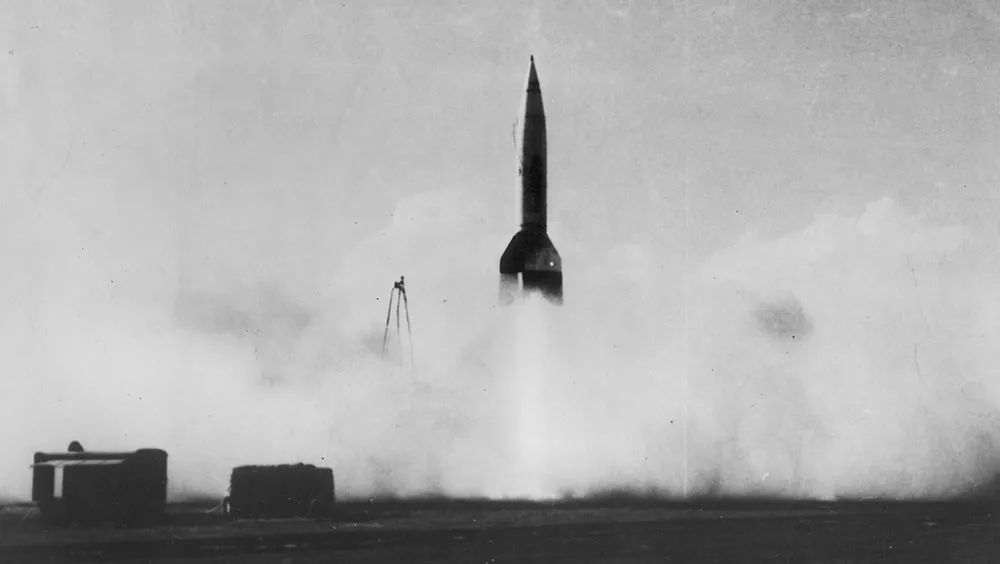
It was these super-missiles that formed the basis for the space programmes of both post-war superpowers. As it happened, Russia was the first to reach Earth orbit, when it launched the uncrewed Sputnik 1 in October 1957, followed a month later by Sputnik 2, carrying the dog Laika – the first live animal in space.
The USA sent its first uncrewed satellite, Explorer 1, into orbit soon after, in January 1958. A slew of robotic spaceflights followed, from both sides of the Atlantic, before Russian cosmonaut Yuri Gagarin piloted Vostok 1 into orbit on 12 April 1961, to become the first human being in space . And from there the space race proper began, culminating in Neil Armstrong and Buzz Aldrin becoming the first people to walk on the Moon as part of NASA's Apollo programme .
Why is space travel important?
Space exploration is the future. It satisfies the human urge to explore and to travel, and in the years and decades to come it could even provide our species with new places to call home – especially relevant now, as Earth becomes increasingly crowded .
Extending our reach into space is also necessary for the advancement of science. Space telescopes like the Hubble Space Telescope and probes to the distant worlds of the Solar System are continually updating, and occasionally revolutionising, our understanding of astronomy and physics.
- Subscribe to the Science Focus Podcast on these services: Acast , iTunes , Stitcher , RSS , Overcast
But there are also some very practical reasons, such as mining asteroids for materials that are extremely rare here on Earth.
One example is the huge reserve of the chemical isotope helium-3 thought to be locked away in the soil on the surface of the Moon . This isotope is a potential fuel for future nuclear fusion reactors – power stations that tap into the same source of energy as the Sun. Unlike other fusion fuels, helium-3 gives off no hard-to-contain and deadly neutron radiation.
However, for this to happen the first challenge to overcome is how to build a base on the Moon. In 2019, China's Chang’e 4 mission marked the beginning of a new space race to conquer the Moon, signalling their intent to build a permanent lunar base , while the NASA Artemis mission plans to build a space station, called Lunar Orbital Platform-Gateway , providing a platform to ferry astronauts to the Moon's surface.
Could humans travel into interstellar space and how would we get there?
It’s entirely feasible that human explorers will visit the furthest reaches of our Solar System. The stars, however, are another matter. Interstellar space is so vast that it takes light – the fastest thing we know of in the Universe – years, centuries and millennia to traverse it. Faster-than-light travel may be possible one day, but is unlikely to become a reality in our lifetimes.
It’s not impossible that humans might one day cross this cosmic gulf, though it won’t be easy. The combustion-powered rocket engines of today certainly aren’t up to the job – they just don’t use fuel efficiently enough. Instead, interstellar spacecraft may create a rocket-like propulsion jet using electric and magnetic fields. This so-called ‘ ion drive ’ technology has already been tested aboard uncrewed Solar System probes.
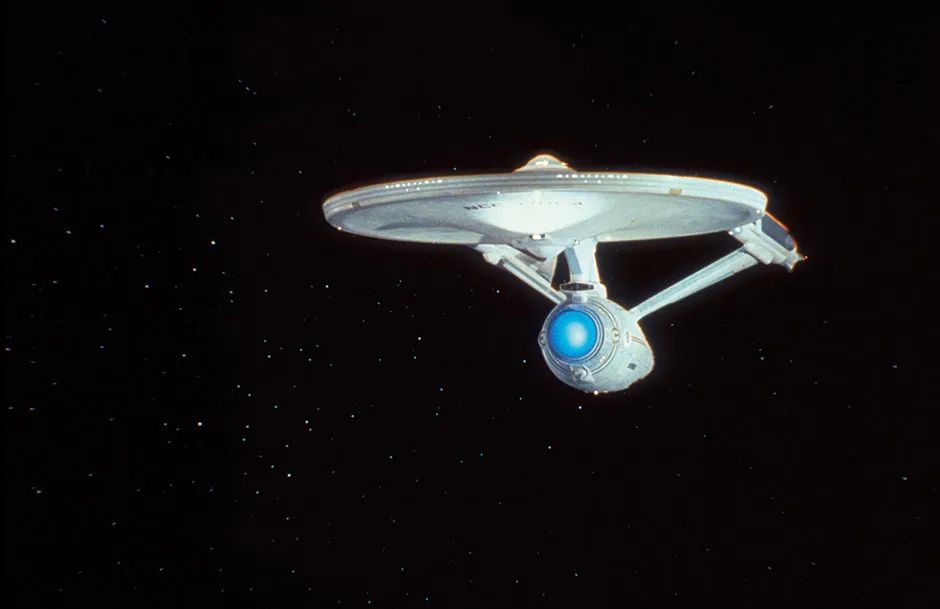
Another possibility is to push spacecraft off towards the stars using the light from a high-powered laser . A consortium of scientists calling themselves Breakthrough Starshot is already planning to send a flotilla of tiny robotic probes to our nearest star, Proxima Centauri, using just this method.
Though whether human astronauts could survive such punishing acceleration, or the decades-long journey through deep space, remains to be seen.
How do we benefit from space exploration?
Pushing forward the frontiers of science is the stated goal of many space missions . But even the development of space travel technology itself can lead to unintended yet beneficial ‘spin-off’ technologies with some very down-to-earth applications.
Notable spin-offs from the US space programme, NASA, include memory foam mattresses, artificial hearts, and the lubricant spray WD-40. Doubtless, there are many more to come.
Read more about space exploration:
- The next giant leaps: The UK missions getting us to the Moon
- Move over, Mars: why we should look further afield for future human colonies
- Everything you need to know about the Voyager mission
- 6 out-of-this-world experiments recreating space on Earth
Space exploration also instils a sense of wonder, it reminds us that there are issues beyond our humdrum planet and its petty squabbles, and without doubt it helps to inspire each new generation of young scientists. It’s also an insurance policy. We’re now all too aware that global calamities can and do happen – for instance, climate change and the giant asteroid that smashed into the Earth 65 million years ago, leading to the total extinction of the dinosaurs .
The lesson for the human species is that we keep all our eggs in one basket at our peril. On the other hand, a healthy space programme, and the means to travel to other worlds, gives us an out.
Is space travel dangerous?
In short, yes – very. Reaching orbit means accelerating up to around 28,000kph (17,000mph, or 22 times the speed of sound ). If anything goes wrong at that speed, it’s seldom good news.
Then there’s the growing cloud of space junk to contend with in Earth's orbit – defunct satellites, discarded rocket stages and other detritus – all moving just as fast. A five-gram bolt hitting at orbital speed packs as much energy as a 200kg weight dropped from the top of an 18-storey building.
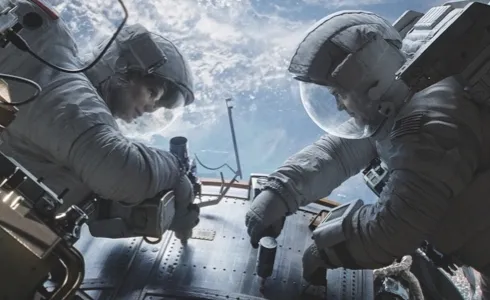
And getting to space is just the start of the danger. The principal hazard once there is cancer-producing radiation – the typical dose from one day in space is equivalent to what you’d receive over an entire year back on Earth, thanks to the planet’s atmosphere and protective magnetic field.
Add to that the icy cold airless vacuum , the need to bring all your own food and water, plus the effects of long-duration weightlessness on bone density, the brain and muscular condition – including that of the heart – and it soon becomes clear that venturing into space really isn’t for the faint-hearted.
When will space travel be available to everyone?
It’s already happening – that is, assuming your pockets are deep enough. The first self-funded ‘space tourist’ was US businessman Dennis Tito, who in 2001 spent a week aboard the International Space Station (ISS) for the cool sum of $20m (£15m).
Virgin Galactic has long been promising to take customers on short sub-orbital hops into space – where passengers get to experience rocket propulsion and several minutes of weightlessness, before gliding back to a runway landing on Earth, all for $250k (£190k). In late July 2020, the company unveiled the finished cabin in its SpaceShipTwo vehicle, suggesting that commercial spaceflights may begin shortly.
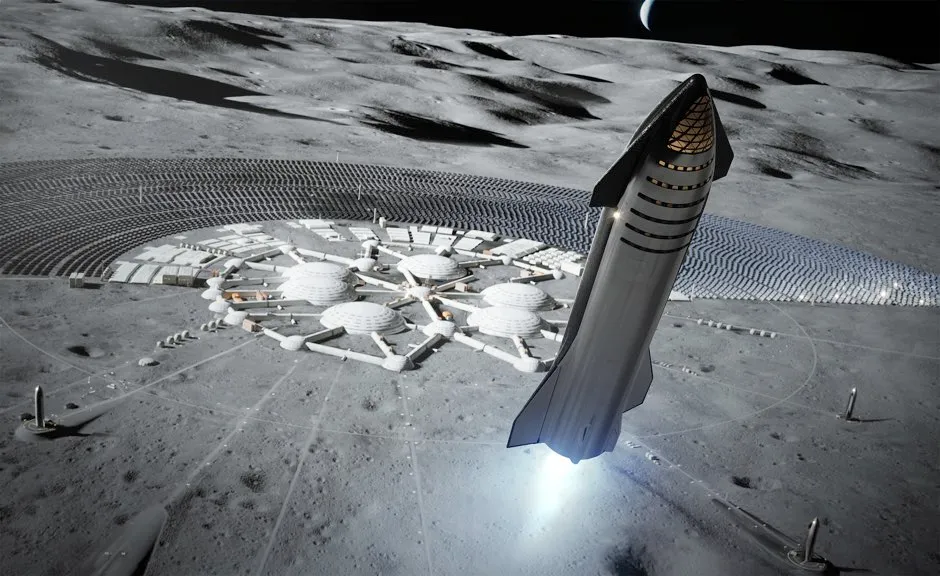
Meanwhile, Elon Musk’s SpaceX , which in May 2020 became the first private company to launch a human crew to Earth orbit aboard the Crew Dragon , plans to offer stays on the ISS for $35k (£27k) per night. SpaceX is now prototyping its huge Starship vehicle , which is designed to take 100 passengers from Earth to as far afield as Mars for around $20k (£15k) per head. Musk stated in January that he hoped to be operating 1,000 Starships by 2050.
10 Short Lessons in Space Travel by Paul Parsons is out now (£9.99, Michael O'Mara)
- Buy now from Amazon UK , Foyles , WH Smith and Wordery
Share this article

- Terms & Conditions
- Privacy policy
- Cookies policy
- Code of conduct
- Magazine subscriptions
- Manage preferences
- Share full article
Advertisement
Supported by
student opinion
Do You Want to Travel in Space?
A 29-year-old cancer survivor is set to become the youngest American to travel to orbit. Have you ever dreamed of taking such a journey?

By John Otis
Students in U.S. high schools can get free digital access to The New York Times until Sept. 1, 2021.
Have you ever dreamed of becoming an astronaut — or traveling to outer space? What’s so appealing about leaving Earth?
How realistic are such aspirations?
One “ordinary citizen” was recently chosen to be a passenger aboard the SpaceX Falcon 9 rocket. Kenneth Chang writes about Hayley Arceneaux, a 29-year-old cancer survivor who recently learned that she had been chosen to join a crewed mission to orbit the Earth, in “ She Beat Cancer at 10. Now She’s Set to Be the Youngest American in Space .” Here’s an excerpt:
Ms. Arceneaux, a physician assistant at St. Jude Children’s Research Hospital in Memphis, will be one of four people on a SpaceX Falcon 9 rocket lifting off from Florida. Scheduled to launch late this year, it is to be the first crewed mission to circle Earth in which no one on board is a professional astronaut. “I did ask, ‘Am I going to get a passport stamp for going to space?’” Ms. Arceneaux said. “But I don’t think I’m going to. So I’m just going to draw a star and the moon in one of my passports.” This adventure is spearheaded by Jared Isaacman, a 38-year-old billionaire who announced in January that he had bought the rocket launch from SpaceX, the space company started by Elon Musk. Mr. Isaacman said at the time that he wanted the mission to be more than a jaunt for the superwealthy, and that he had given two of the four available seats to St. Jude.
The article goes on to explain the significance of this space journey:
Ms. Arceneaux could become the youngest American ever to travel to orbit. She will also be the first person with a prosthetic body part to go to space. She was a patient at St. Jude nearly 20 years ago, and as part of her treatment for bone cancer, metal rods replaced parts of the bones in her left leg. In the past, that would have kept her firmly on the ground, unable to meet NASA’s stringent medical standards for astronauts. But the advent of privately financed space travel has opened the final frontier to some people who were previously excluded. Dr. Michael D. Neel, the orthopedic surgeon who installed Ms. Arceneaux’s prosthesis, says that although having artificial leg bones means that she can’t play contact sports on Earth, they should not limit her on this SpaceX trek. “It shows us that the sky is not the limit,” Dr. Neel said. “It’s the sky and beyond. I think that’s the real point of all this, that she has very little limitations as far as what you can do. Unless you’re going to play football up there.”
Students, read the entire article , then tell us:
Have you ever dreamed of becoming an astronaut or working for NASA? Are you fascinated by outer space or space travel? Why do you think so many of us are captivated by space and its mysteries?
If you had an opportunity to go anywhere in space, where would you visit? The moon? Mars? Another planet? Would you want to venture beyond our solar system? Why?
If you could be part of the SpaceX Falcon 9 flight, what would thrill you the most about the ride? Making history? Experiencing weightlessness? Viewing Earth from orbit? Something else?
In the article, Ms. Arceneaux said that she wanted to give hope to those battling serious illness: “They’ll be able to see a cancer survivor in space, especially one that has gone through the same thing that they have. It’s going to help them visualize their future.” Are you inspired by Ms. Arceneaux? Have you been through hardships that have inspired others?
If you don’t want to journey to outer space, where would you prefer to go instead?
About Student Opinion
• Find all of our Student Opinion questions in this column . • Have an idea for a Student Opinion question? Tell us about it . • Learn more about how to use our free daily writing prompts for remote learning .
Students 13 and older in the United States and the United Kingdom, and 16 and older elsewhere, are invited to comment. All comments are moderated by the Learning Network staff, but please keep in mind that once your comment is accepted, it will be made public.

Suggested Searches
- Climate Change
- Expedition 64
- Mars perseverance
- SpaceX Crew-2
- International Space Station
- View All Topics A-Z
Humans in Space
Earth & climate, the solar system, the universe, aeronautics, learning resources, news & events.

Hubble Zooms into the Rosy Tendrils of Andromeda
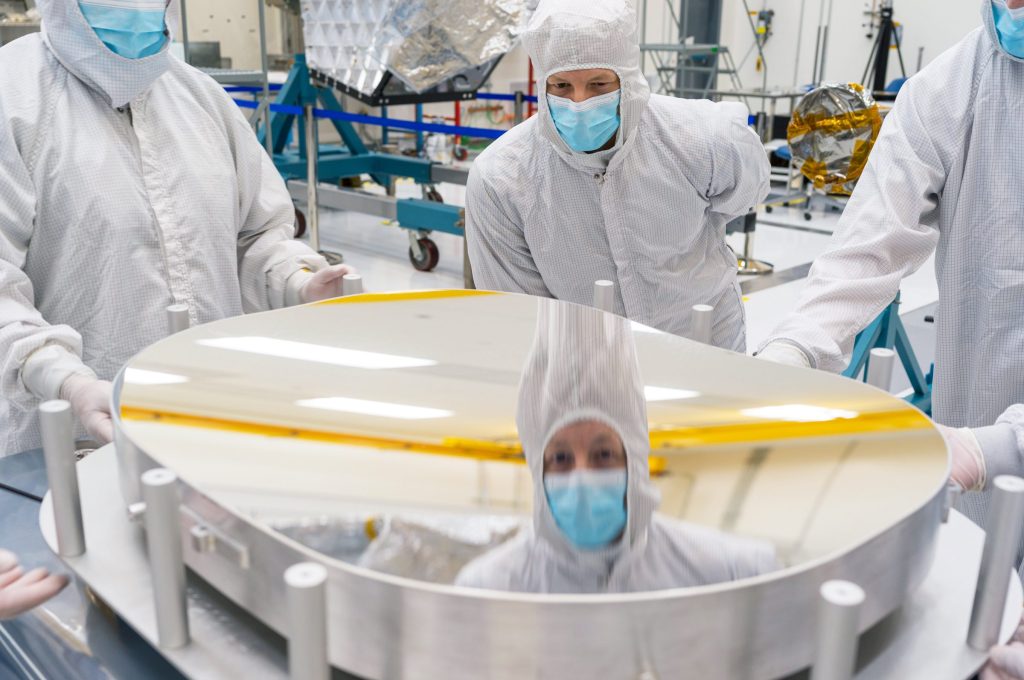
Work Is Under Way on NASA’s Next-Generation Asteroid Hunter

NASA’s Roman Space Telescope to Investigate Galactic Fossils
- Search All NASA Missions
- A to Z List of Missions
- Upcoming Launches and Landings
- Spaceships and Rockets
- Communicating with Missions
- James Webb Space Telescope
- Hubble Space Telescope
- Why Go to Space
- Commercial Space
Destinations
Living in Space
- Explore Earth Science
- Earth, Our Planet
- Earth Science in Action
- Earth Multimedia
- Earth Science Researchers
- Pluto & Dwarf Planets
- Asteroids, Comets & Meteors
- The Kuiper Belt
- The Oort Cloud
- Skywatching
- The Search for Life in the Universe
- Black Holes
- The Big Bang
- Dark Energy & Dark Matter
- Earth Science
- Planetary Science
- Astrophysics & Space Science
- The Sun & Heliophysics
- Biological & Physical Sciences
- Lunar Science
- Citizen Science
- Astromaterials
- Aeronautics Research
- Human Space Travel Research
- Science in the Air
- NASA Aircraft
- Flight Innovation
- Supersonic Flight
- Air Traffic Solutions
- Green Aviation Tech
- Drones & You
- Technology Transfer & Spinoffs
- Space Travel Technology
- Technology Living in Space
- Manufacturing and Materials
- Science Instruments
- For Kids and Students
- For Educators
- For Colleges and Universities
- For Professionals
- Science for Everyone
- Requests for Exhibits, Artifacts, or Speakers
- STEM Engagement at NASA
- NASA's Impacts
- Centers and Facilities
- Directorates
- Organizations
- People of NASA
- Internships
- Our History
- Doing Business with NASA
- Get Involved
NASA en Español
- Aeronáutica
- Ciencias Terrestres
- Sistema Solar
- All NASA News
- Video Series on NASA+
- Newsletters
- Social Media
- Media Resources
- Upcoming Launches & Landings
- Virtual Guest Program
- Image of the Day
- Sounds and Ringtones
- Interactives
- STEM Multimedia
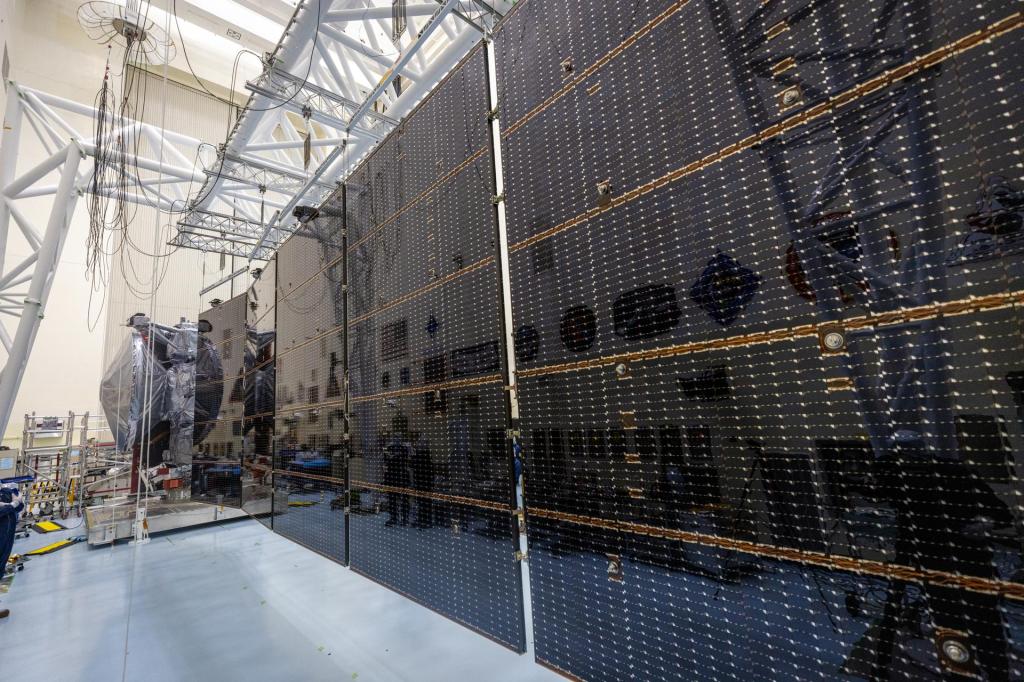
NASA’s Europa Clipper Gets Set of Super-Size Solar Arrays
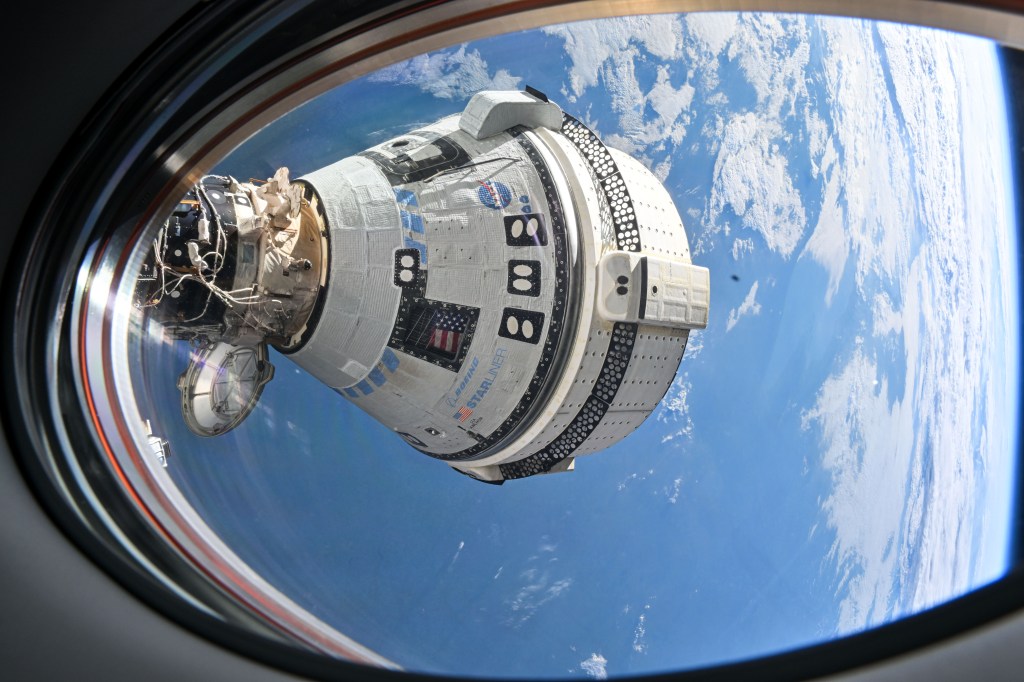
FAQ: NASA’s Boeing Crew Flight Test Return Status

NASA, Boeing Optimizing Vehicle Assembly Building High Bay for Future SLS Stage Production
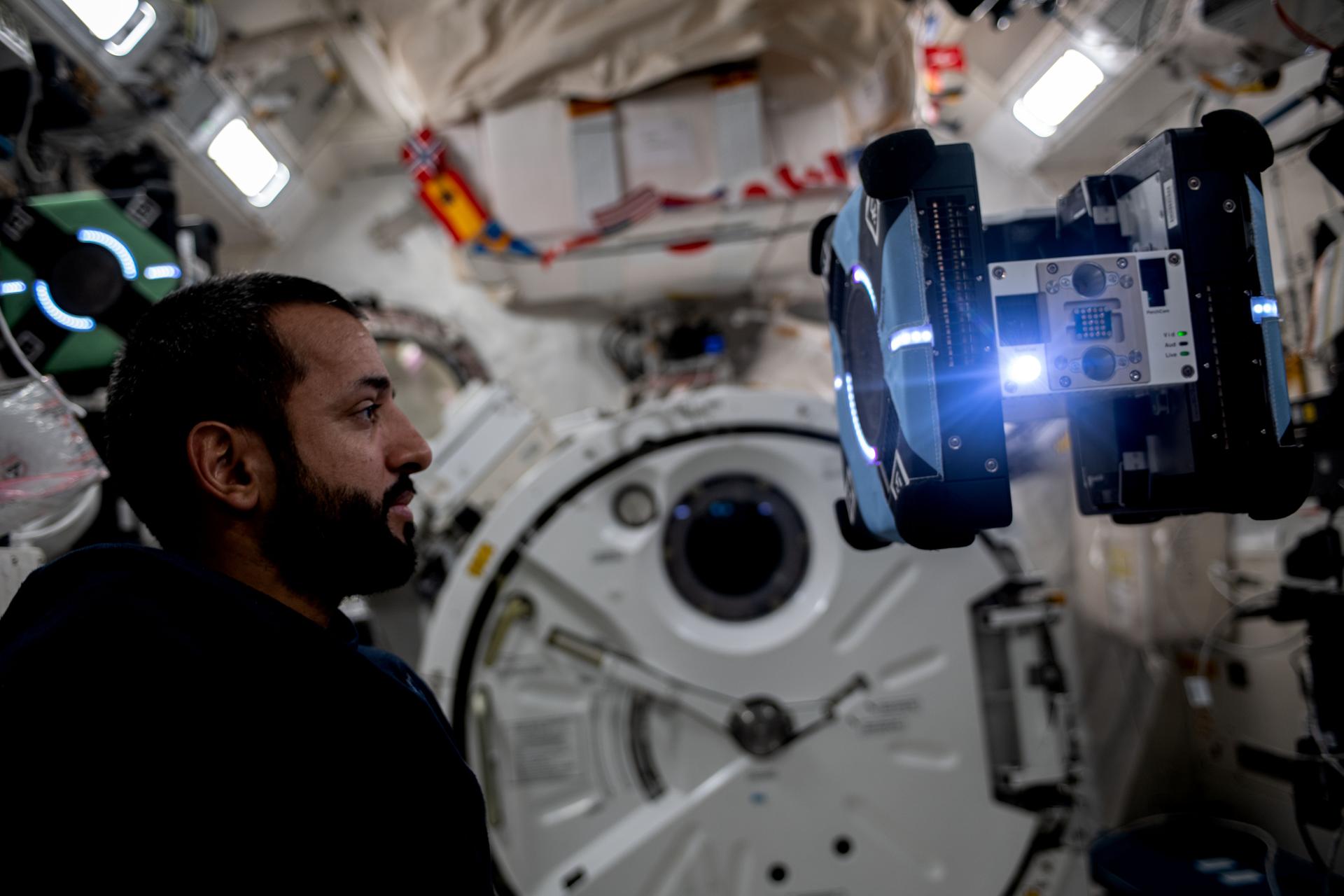
NASA Seeks Input for Astrobee Free-flying Space Robots
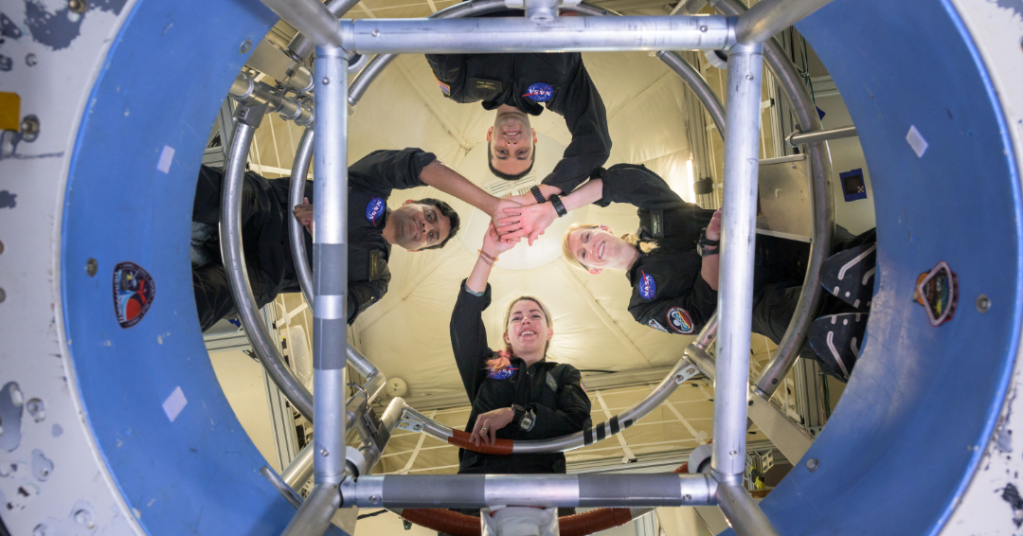
NASA Funds Studies to Support Crew Performance on Long-Duration Missions
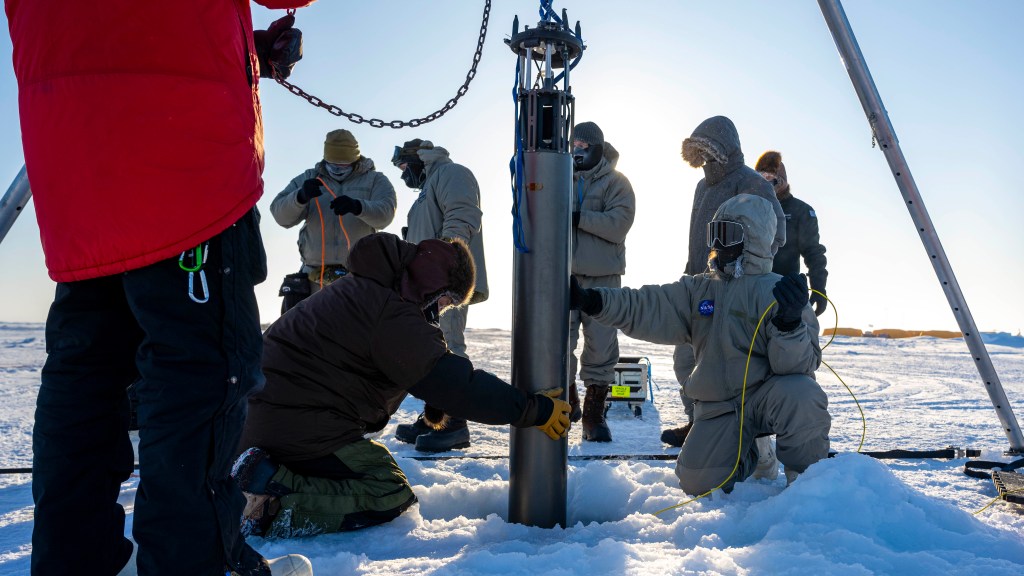
NASA JPL Developing Underwater Robots to Venture Deep Below Polar Ice
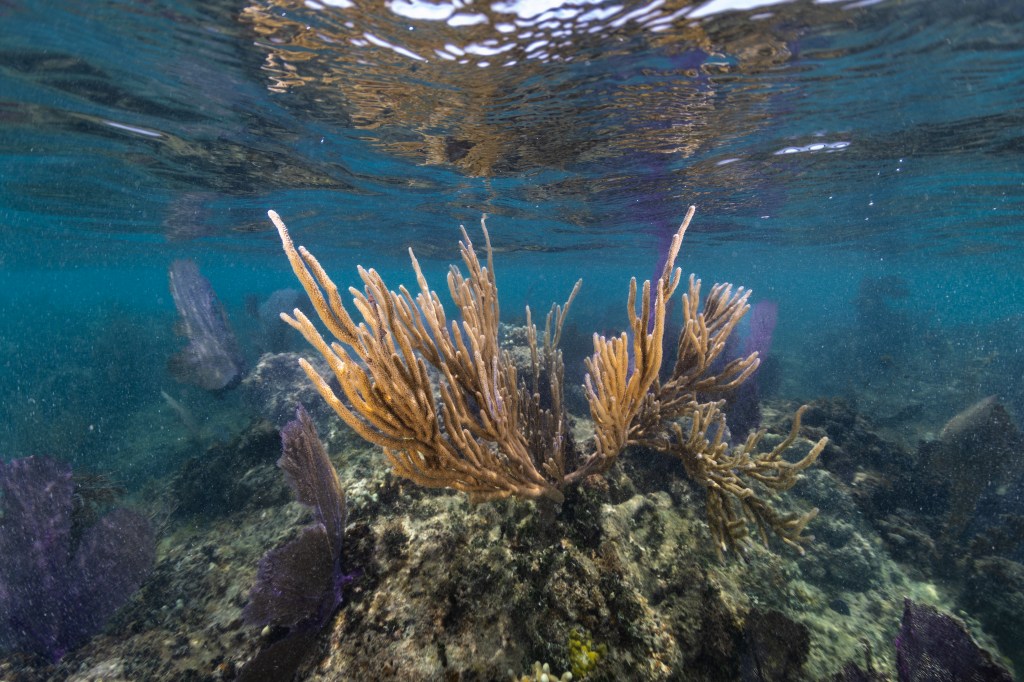
NASA Project in Puerto Rico Trains Students in Marine Biology
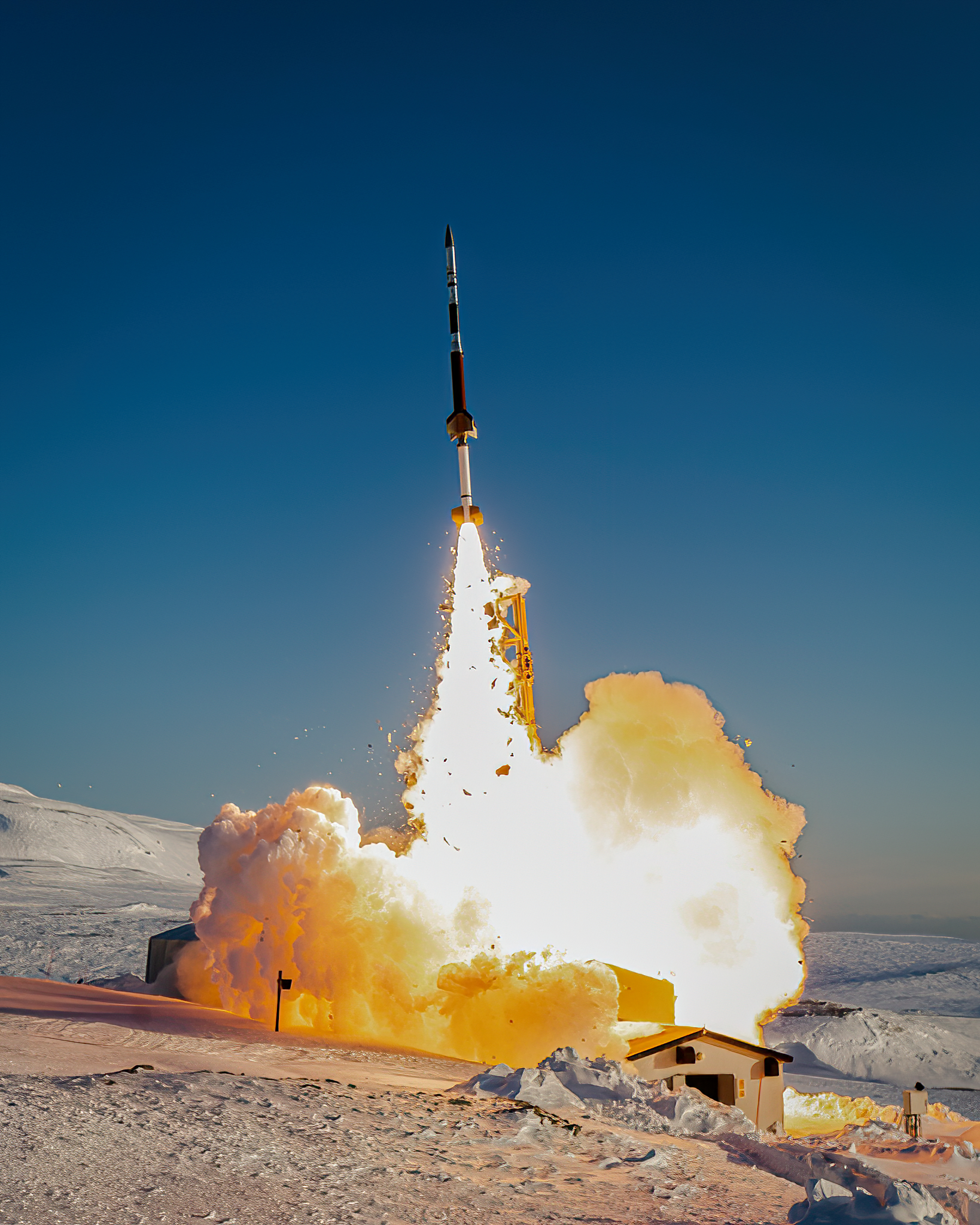
NASA Discovers a Long-Sought Global Electric Field on Earth
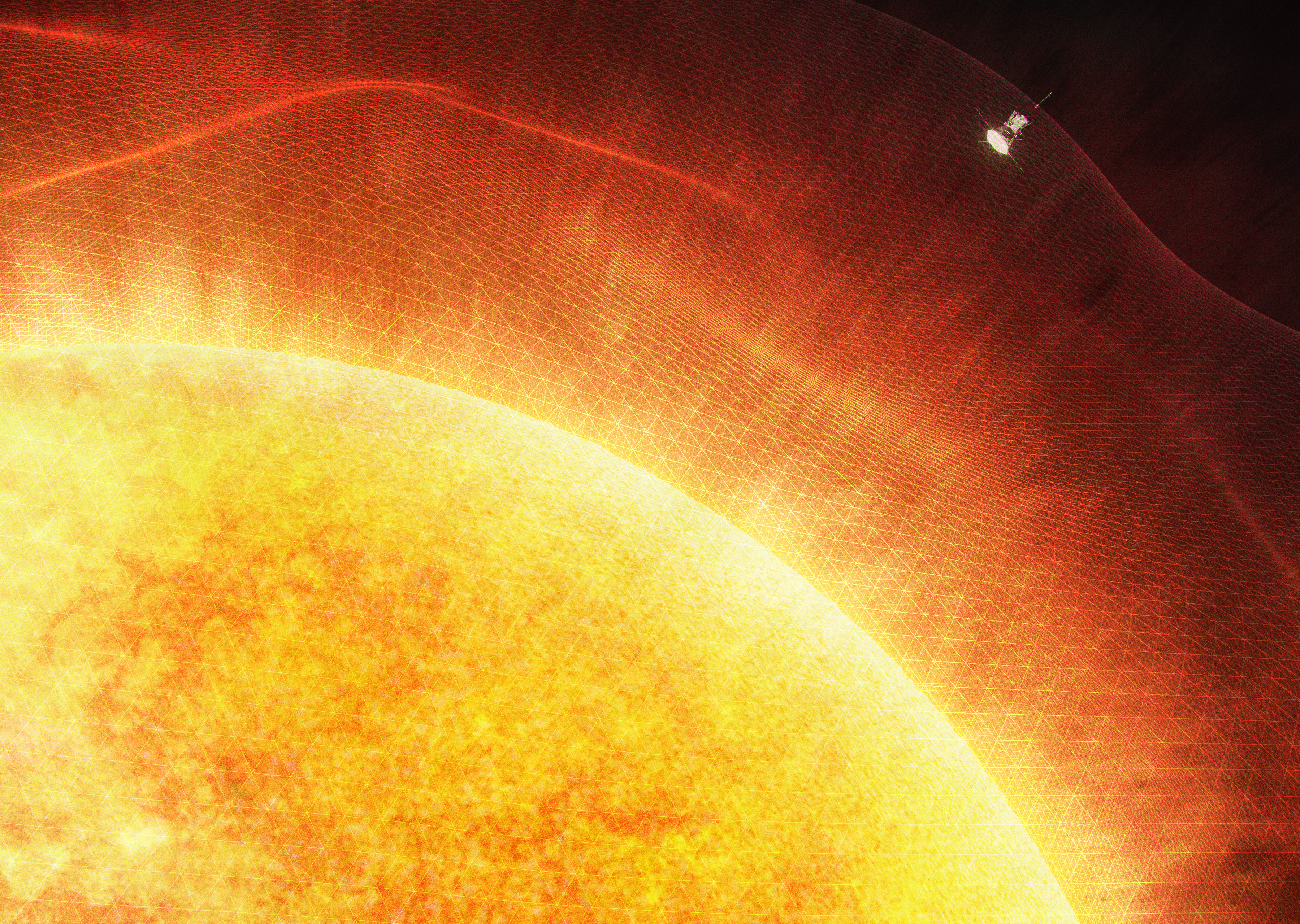
NASA, ESA Missions Help Scientists Uncover How Solar Wind Gets Energy

September’s Night Sky Notes: Marvelous Moons

Amendment 45: New Opportunity: A.60 Ecological Conservation
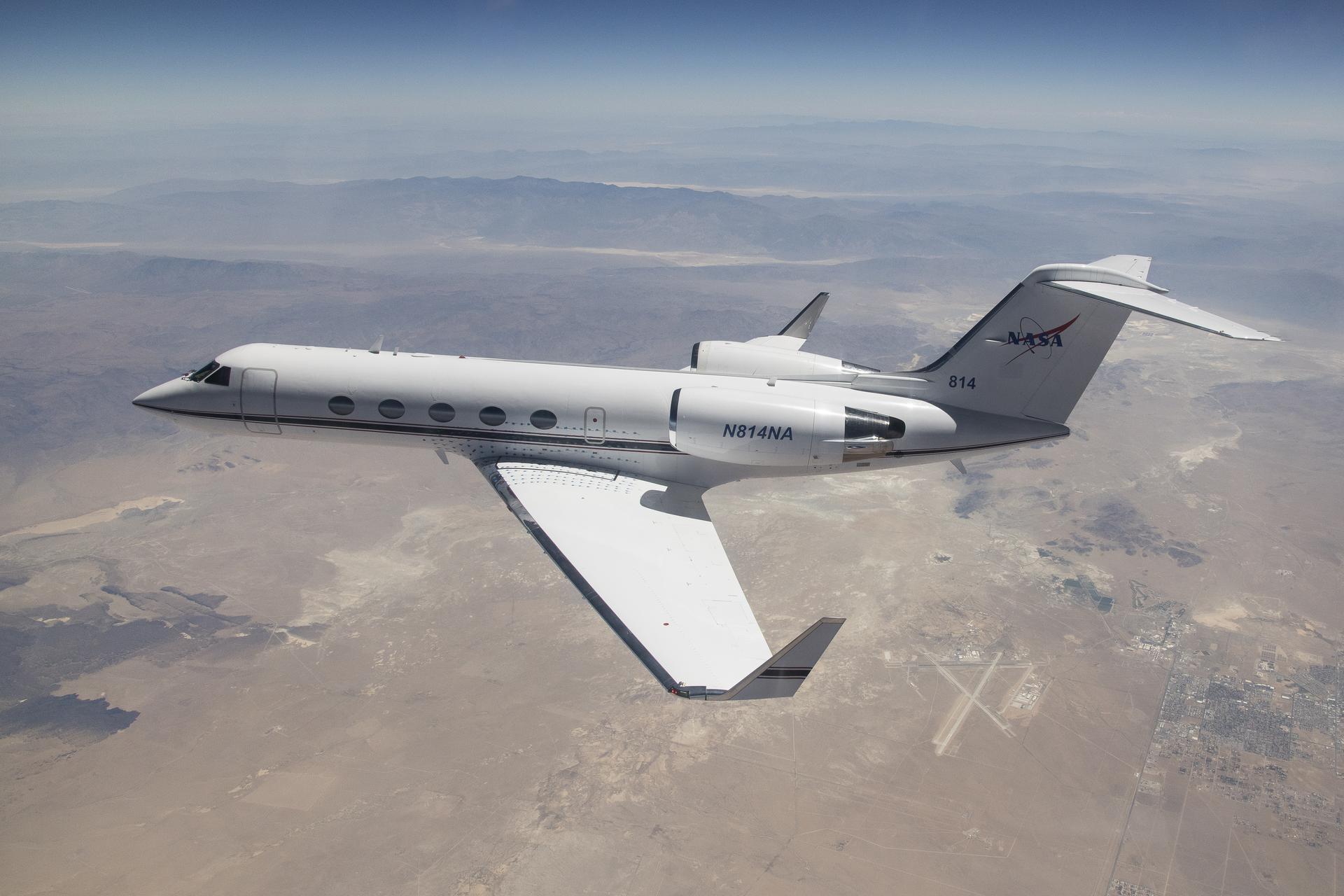
NASA G-IV Plane Will Carry Next-Generation Science Instrument
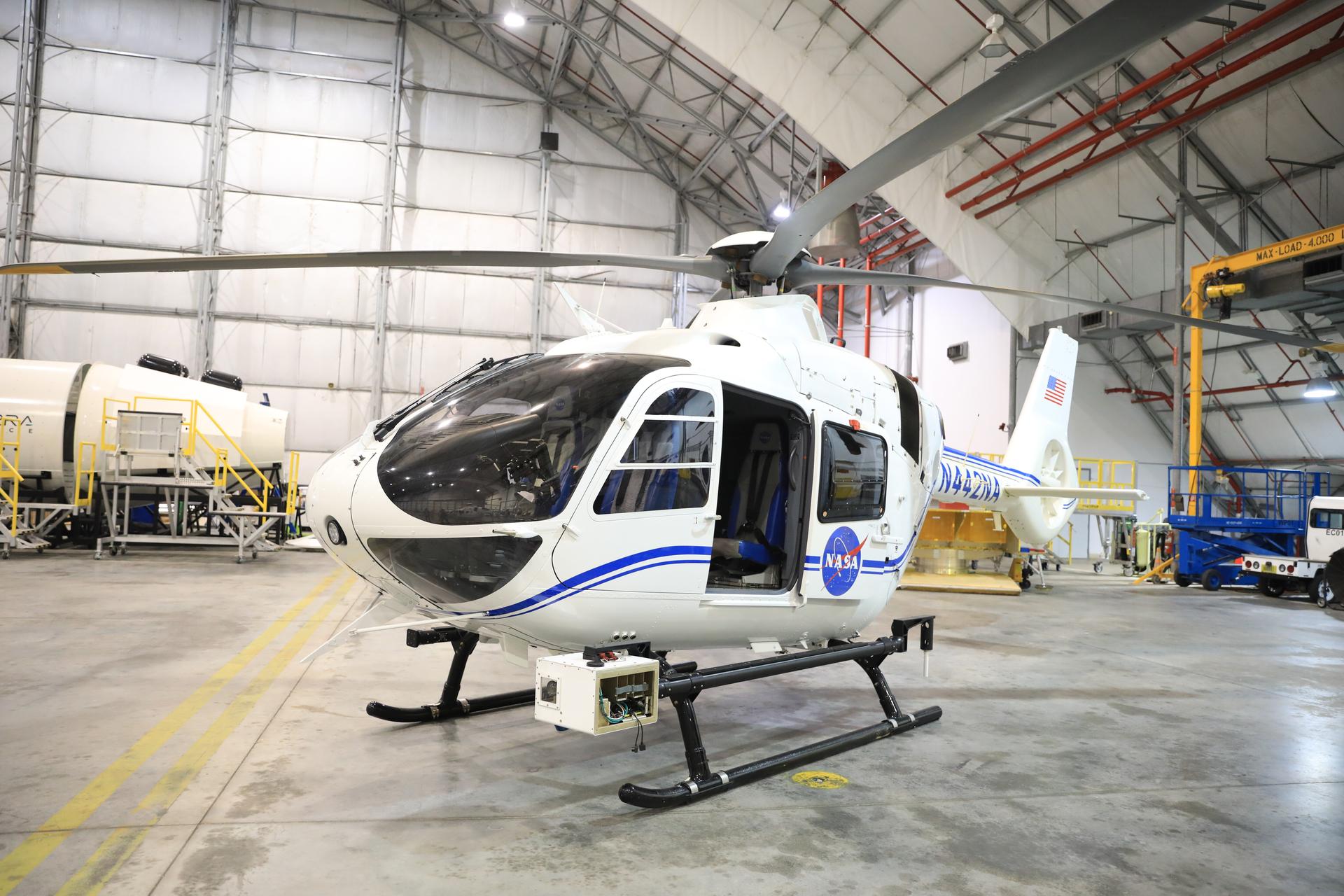
NASA Develops Pod to Help Autonomous Aircraft Operators
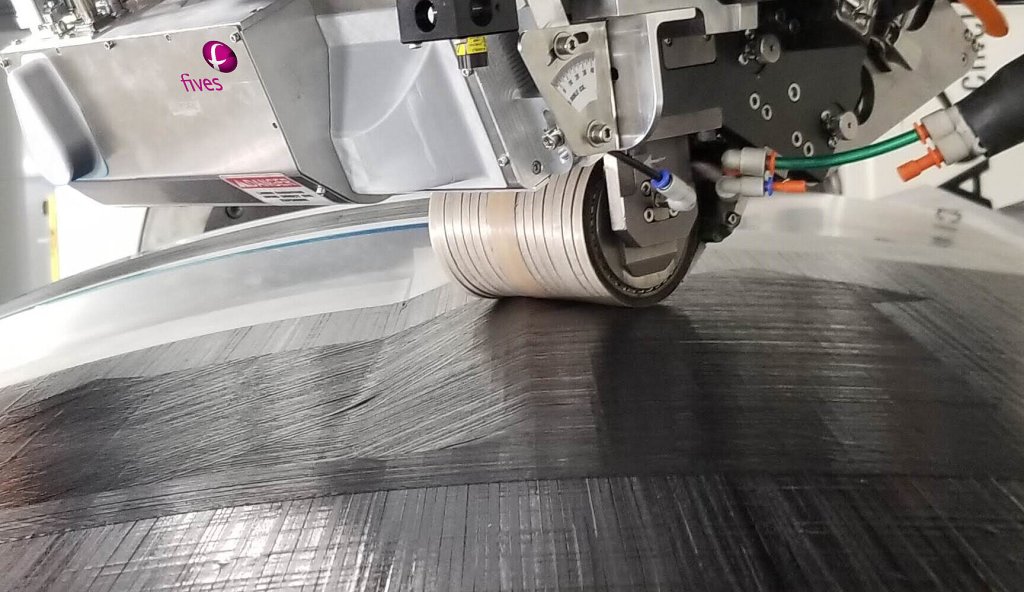
NASA Composite Manufacturing Initiative Gains Two New Members
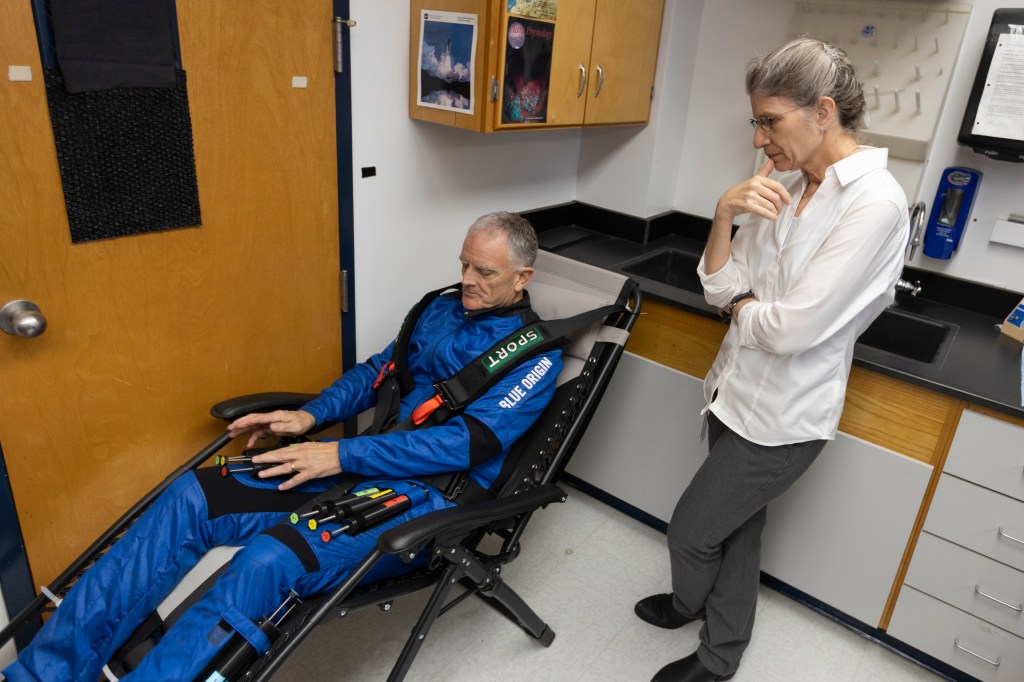
First NASA-Supported Researcher to Fly on Suborbital Rocket
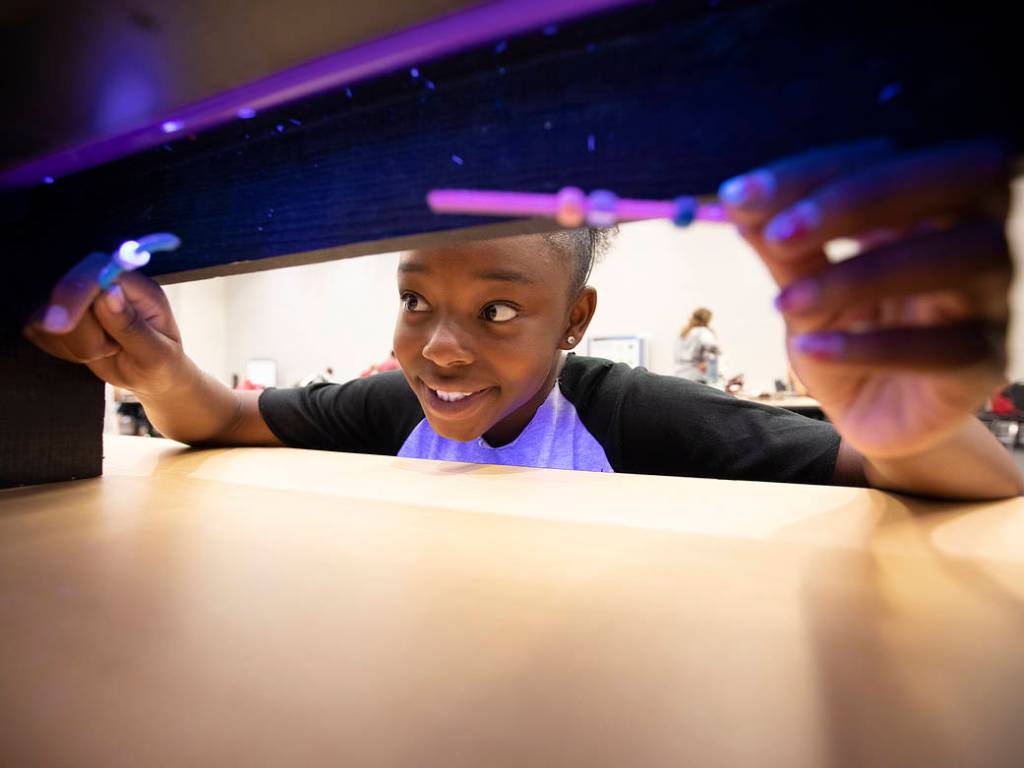
How Do I Navigate NASA Learning Resources and Opportunities?
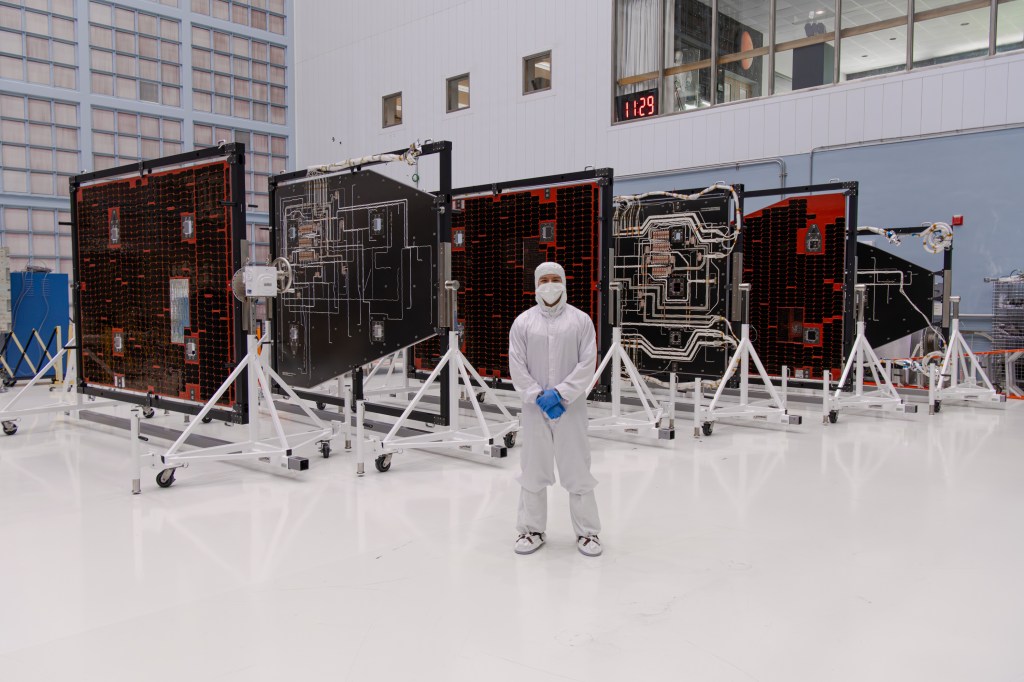
Aaron Vigil Helps Give SASS to Roman Space Telescope

235 Years Ago: Herschel Discovers Saturn’s Moon Enceladus
Preguntas frecuentes: estado del retorno de la prueba de vuelo tripulado boeing de la nasa.
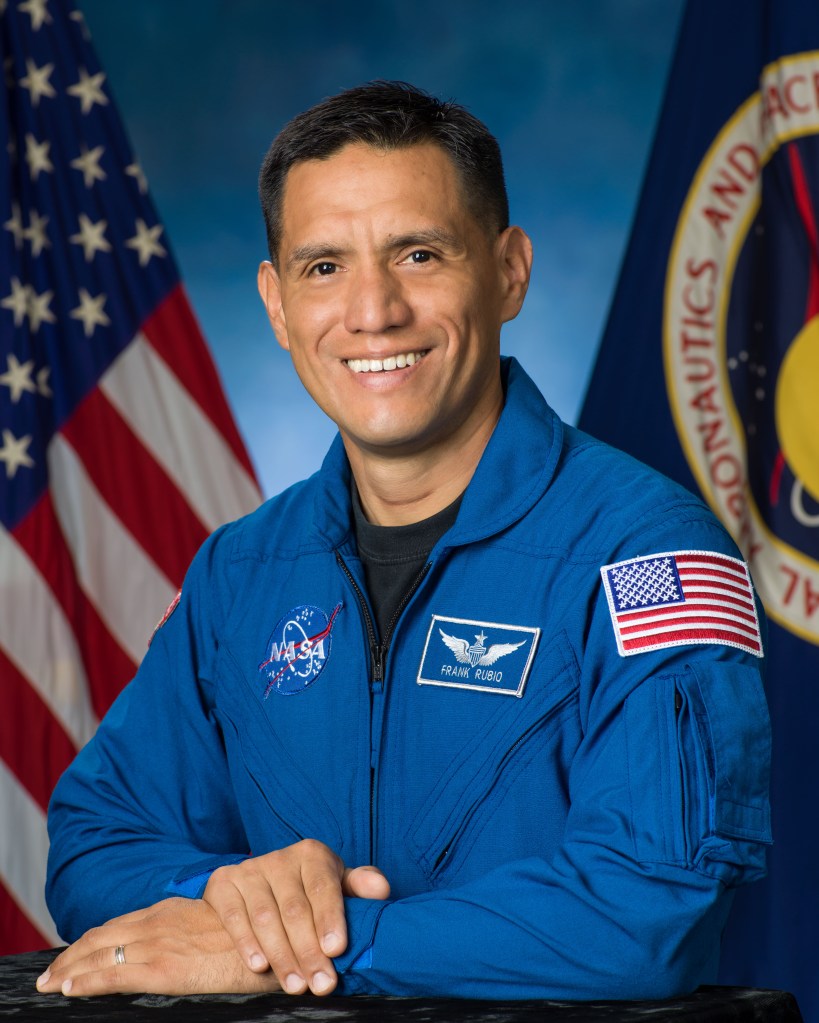
Astronauta de la NASA Frank Rubio
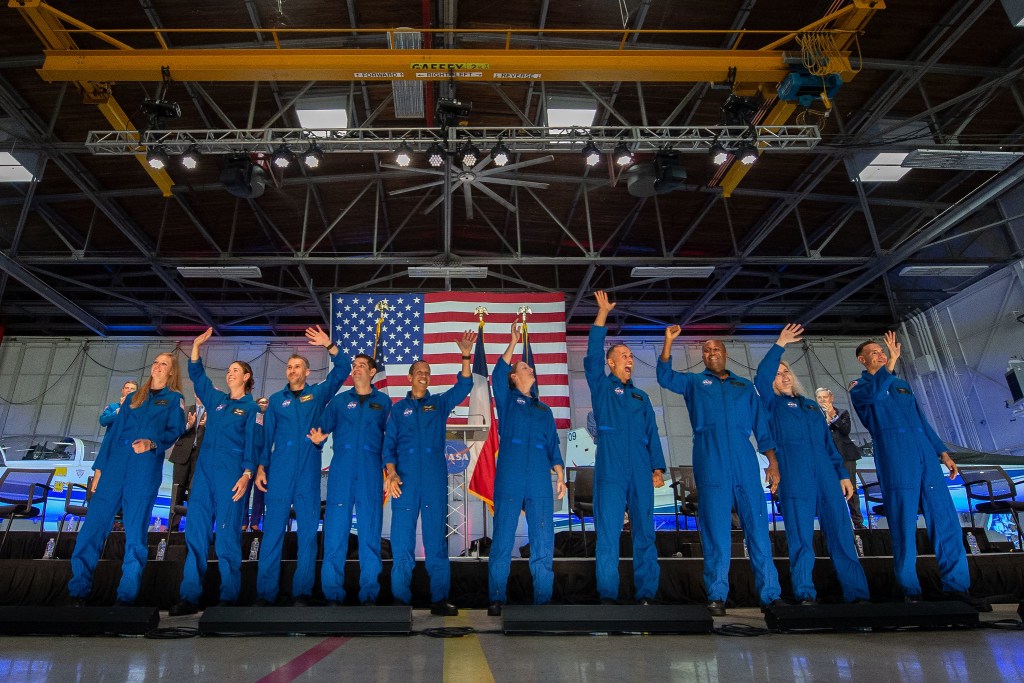
Diez maneras en que los estudiantes pueden prepararse para ser astronautas
Why go to space.
The reasons to explore the universe are as vast and varied as the reasons to explore the forests, the mountains, or the sea. Since the dawn of humanity, people have explored to learn about the world around them, find new resources, and improve their existence.
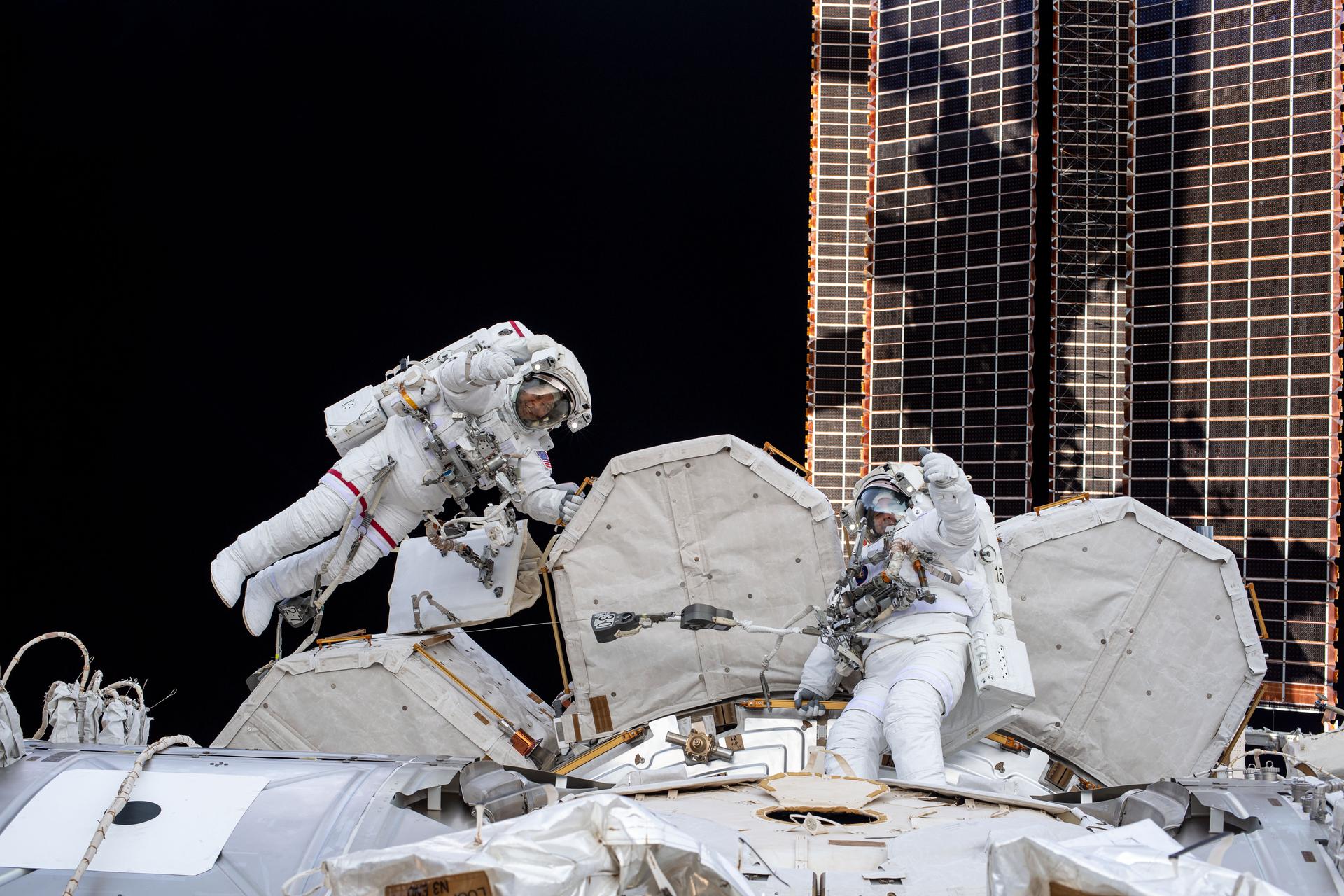
Why We Go to Space
At NASA, we explore the secrets of the universe for the benefit of all, creating new opportunities and inspiring the world through discovery.
NASA’s exploration vision is anchored in providing value for humanity by answering some of the most fundamental questions: Why are we here? How did it all begin? Are we all alone? What comes next? And, as an addendum to that: How can we make our lives better?
NASA was created more than half a century ago to begin answering some of these questions. Since then, space exploration has been one of the most unifying, borderless human endeavors to date. An international partnership of five space agencies from 15 countries operates the International Space Station, and two dozen countries have signed the Artemis Accords, signaling their commitment to shared values for long-term human exploration and research at the Moon. Through space exploration, we gain a new perspective to study Earth and the solar system. We advance new technologies that improve our daily lives, and we inspire a new generation of artists, thinkers, tinkerers, engineers, and scientists.
Benefits to Humanity
Space exploration unites the world to inspire the next generation, make ground-breaking discoveries, and create new opportunities.
Technologies and missions we develop for human spaceflight have thousands of applications on Earth, boosting the economy, creating new career paths, and advancing everyday technologies all around us.
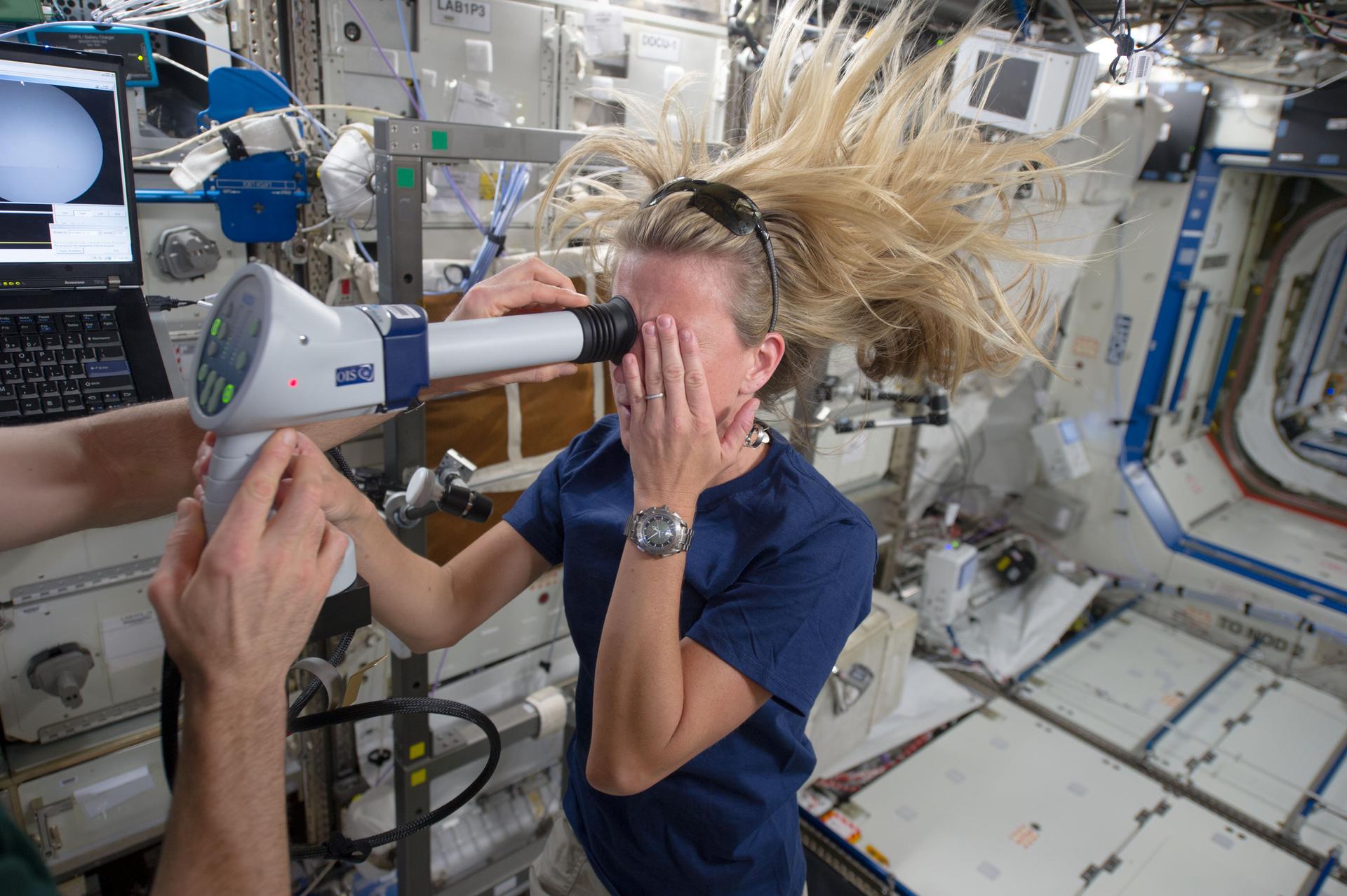
To view this video please enable JavaScript, and consider upgrading to a web browser that supports HTML5 video
Benefits to Science
The pursuit of discovery drives NASA to develop missions that teach us about Earth, the solar system, and the universe around us.
Science at NASA answers questions as practical as hurricane formation, as enticing as the prospect of lunar resources, as surprising as behavior in weightlessness, and as profound as the origin of the Universe.

Unite with us on our journey to explore.
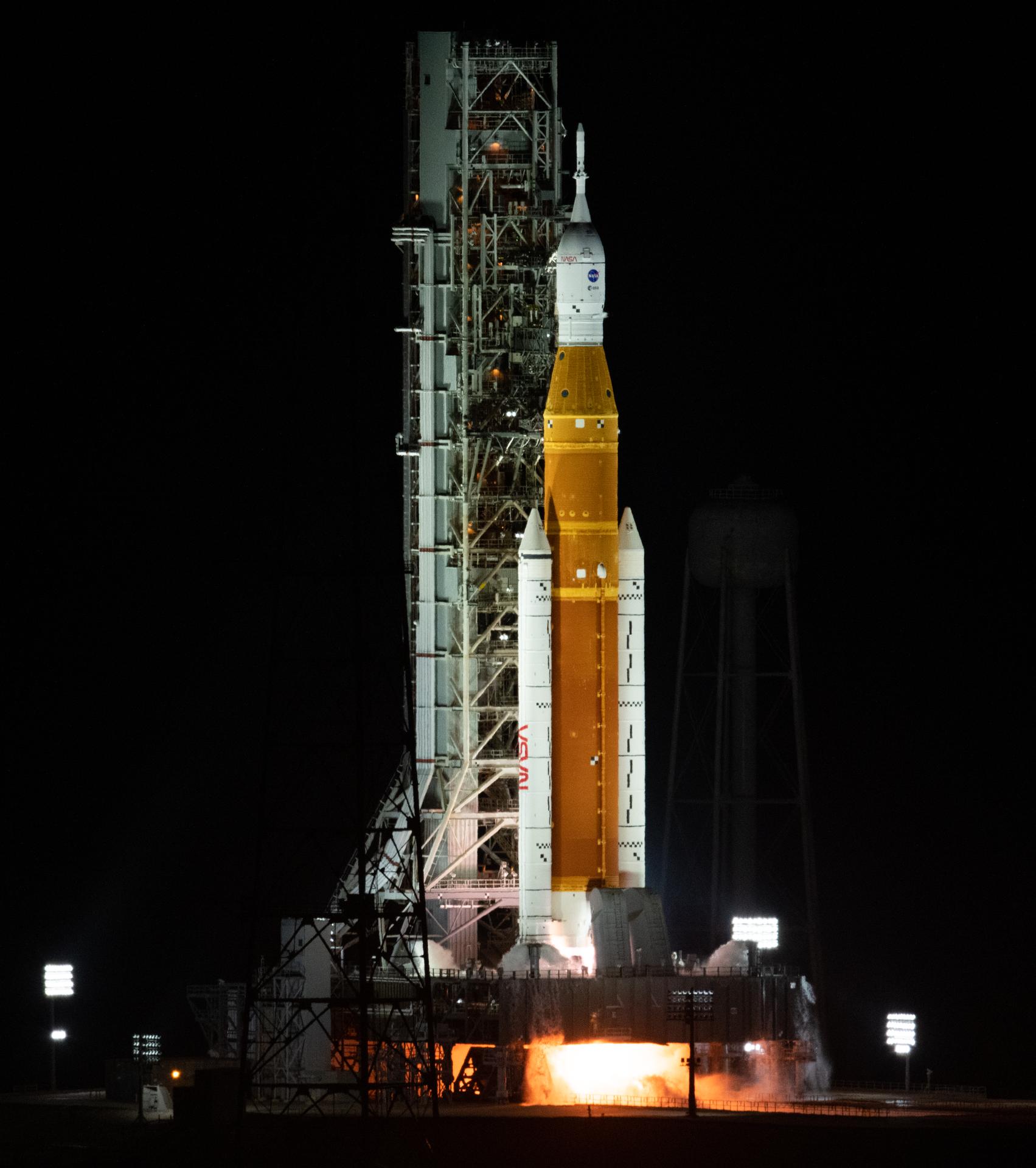
Discover More Topics From NASA
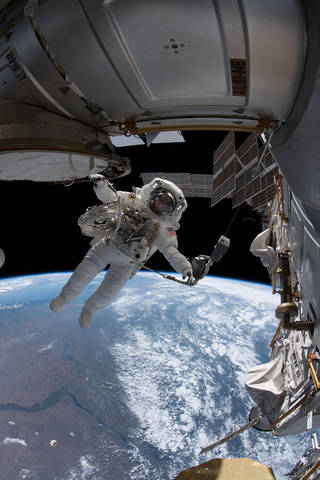
Finding the Universe
Travel tales, photography and a dash of humor
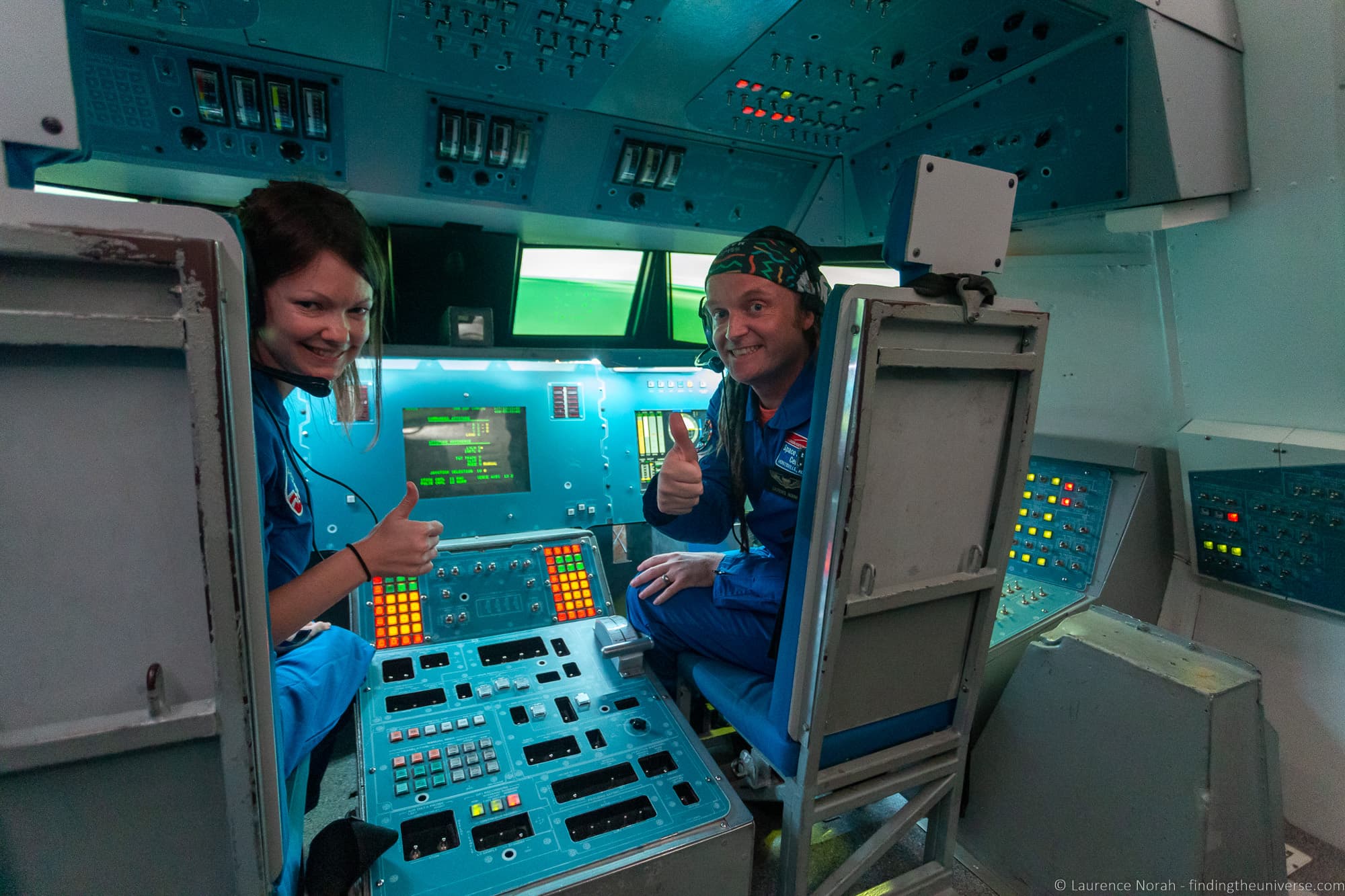
Space Tourism: How to Visit Space as a Tourist
Last updated: August 28, 2023 . Written by Laurence Norah - 4 Comments
Despite the name of this blog, I have been distressingly earth bound for all of my years thus far. Given recent developments in space exploration technology though, hope is not yet lost for the dream of going into space as a tourist – without having to shell out the millions of dollars that past tourists have paid!
In today’s post, I’m going to talk about a few things. I’m going to cover where space travel & exploration is today.
I’m going to talk about what options we have now, and may have in the future, for getting into space as a tourist. And I’m also going to cover a few ways those of us stuck on Earth without access to a giant pile of cash can still get our space fix around the world!
Table of Contents:
The State of Space Travel as a Tourist in 2023
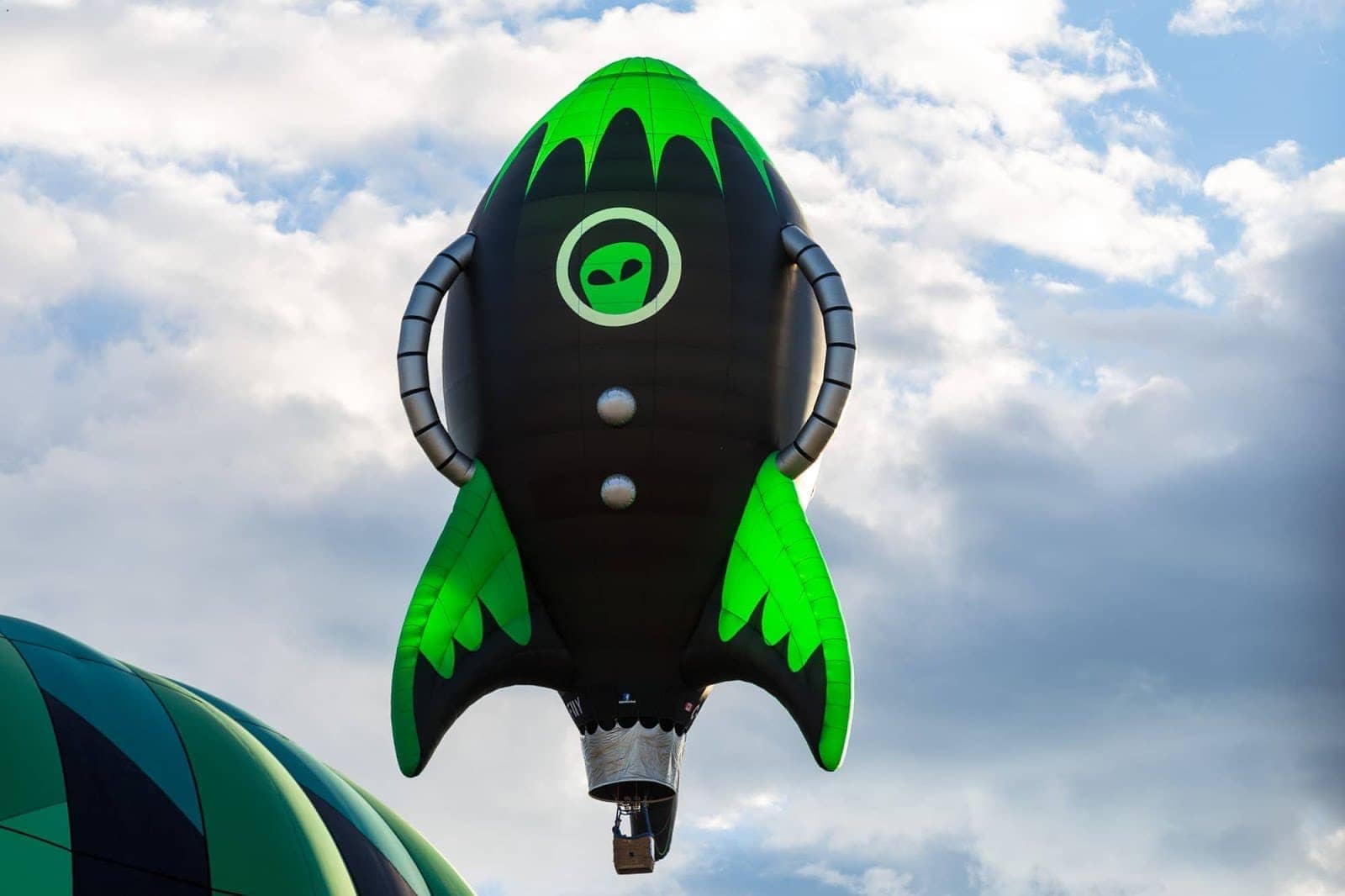
Huge strides are happening right now in space exploration, particularly with private companies looking at opening up space to your average person. Admittedly, right now, space tourism isn’t exactly accessible.
Up to 2009, only 7 people made it into space as tourists, all travelling with the Russian Space Agency, and all paying in excess of USD $20 million.
These weren’t exactly hop-on hop-off trips either, with the participants undergoing months of training, and many of them actively running their own experiments in space. So to call them space tourists is perhaps a bit of a misnomer.
However, things have now changed, and trips into space are becoming more affordable. Admittedly, they aren’t exactly “budget”, but they are less than $20 million a go.
So what’s changed?
Well, put simply, private investment. Whilst massive government organisations like NASA , the Russian Space Agency and the European Space Agency are always researching and expanding their space exploration efforts, their focus isn’t exactly on getting folks like you and me into space – at least not in the near term. Their focus is on long term scientifically focused exploration missions, with perhaps the most exciting being NASA’s Journey to Mars .
Other organisations though, see the potential for space based tourism as a way to generate funds and publicity for their projects. There are three main players in the space tourism business right now – Virgin Galactic , SpaceX and Blue Origin .
Let’s take a look at the main players with whom you have a real chance of getting into space within the next few years.
How to Go To Space As A Tourist
Other than flagging down a passing UFO Ford Prefect style, or signing up to be an astronaut with a government agency, getting into space is a bit tricky. But that’s all changing, and these are the companies with whom you are most likely to be able to travel into space.
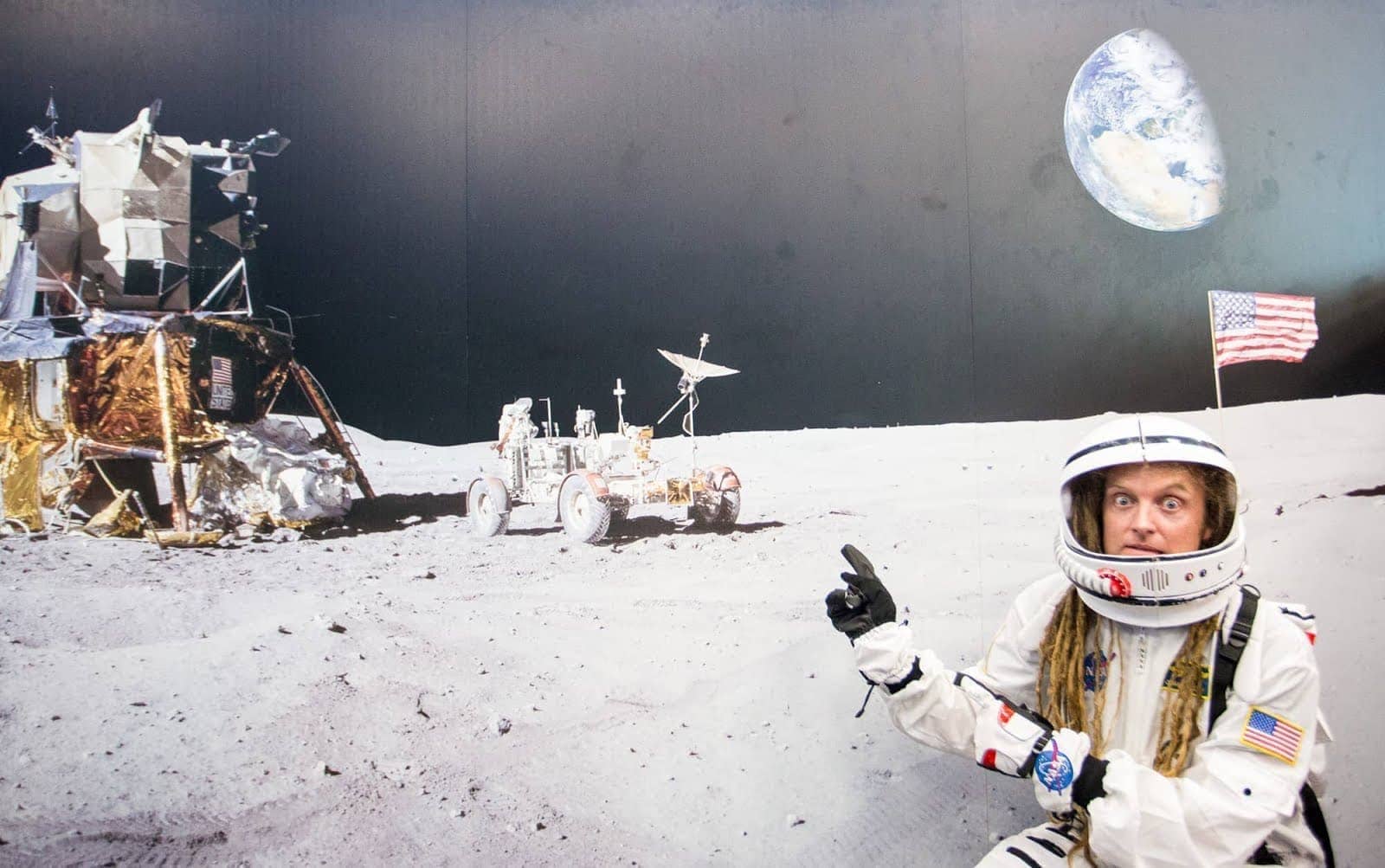
1. Virgin Galactic
Part of the Virgin Group headed up by Sir Richard Branson, Virgin Galactic currently offers sub-orbital flights to paying passengers aboard their SpaceShipTwo and SpaceShipThree craft.
Sub-orbital means that you’re not high enough to actually orbit the earth, but as the goal you do pass the 100km line that marks the edge of space, you will technically be in space, and also experience weightlessness. Hurrah!
The good news is that as of June 2023, commercial space flights have actually commenced. Trips are scheduled to go monthly, and you can now buy tickets for a voyage into space with Virgin Galactic. They are currently on sale for $450,000.
Admittedly, $450,000 USD isn’t exactly small change, but it’s a lot less expensive than the $20 million that previous space travellers have paid. For your money, you get three days of training at Spaceport America in New Mexico, a flight into space, a somewhat incredible view and a period of weightlessness. Not too bad.
2. Blue Origin
Owned by Amazon billionaire Jeff Bezos, Blue Origin is a private company which initially appeared to be focusing on sub-orbital flight, much like Virgin Galactic.
Unlike Virgin Galactic though, which uses a combination of a normal plane and a rocket plane to achieve the necessary space altitude, Blue Origin are using more conventional rocket technology, with a focus on re-usable components that cut the cost of launches.
Other than the spacecraft, the experience is largely the same – a sub-orbital flight that comprises a few days of training in Texas, a journey lasting around 11 minutes to up beyond the 100km line, weightlessness and some incredible views.
The technology to do this will look familiar to any fans of existing space flight technologies, including the capsule that returns to Earth by parachute, meaning that there are fewer technical hurdles to overcome.
As of 2021, flights have commenced on the New Shepherd, with Jeff Bezos being the first into space. The ticket for the first commercially available seat in the July 2021 launch was auctioned off for a cool $28 million.
Since that launch, there have been a number of flights with paying customers.
Regular pricing isn’t set, although it’s currently rumored to be around $1 million per seat. A timeframe for general availability of commercial flights isn’t yet known. You can sign up to be kept informed and updated however.
Perhaps even more excitingly than the New Shepherd program is its successor – the New Glenn program. This should offer longer duration, possibly even orbital flights, although details are currently sparse on the ground, with operations aimed to launch in late 2024. We do know however that priority on these trips will be given to New Shepherd customers.
Last in our trio of serious contenders for firms that will take your money and send you into space in the next few years is SpaceX .
SpaceX is owned by Elon Musk, who is particularly famous for being the CEO and co-founder of Tesla Inc, the electric car and battery manufacturer, amongst other things.
SpaceX largely focuses on commercial launch capabilities, with a particular focus on reusable rocket technologies that bring down the cost of putting payloads into orbit.
They’ve been hugely successful in this field, with multiple achievements, including being the first privately funded company to successfully launch, orbit and recover a spacecraft.
They were also the first private company to send a spacecraft to the International Space Station, and have since flown many missions to the ISS.
Whilst the majority of their work is on commercial and government contracts for putting things like satellites into orbit, some recent developments have put SpaceX firmly on the space tourism map.
First, in 2017 they announced that they had been contracted by two private individuals who want to go on a trip around the moon. This was originally due to launch in 2018, but has been postponed until at least 2024. It will be by far the most ambitious space tourism endeavor to date by any company, and you can read more about the project here .
SpaceX are also starting to sell tickets on their Crew Dragon capsule, which is the launch system NASA is using to shuttle astronauts to the ISS. These are not generally available, but a 3-day mission consisting entirely of tourists took place in 2021, with further missions expected. These are still priced in the tens of millions of dollars though, so don’t bank on these becoming affordable for a while to come.
Next, SpaceX is actively working on technology to colonise Mars, with a lofty goal of setting up a permanent colony on the red planet, home to over a million people, within the next 100 years.
Whilst the current estimate of cost for such a ride is in the region of $10 billion USD per person, SpaceX is aiming to bring that down to $100,000 through the development of their Interplanetary Transport System . This won’t happen in the near-term, but by the end of the century tourism to Mars might be a real possibility, with lunar and earth-orbital flights the norm by then.
4. Other Contenders
So those are the main players who, in my opinion, have the most realistic chances of taking you to space in the coming decade. But they aren’t the only players in the space tourism arena! Here are a few others to be aware of who might give you a chance of getting off Planet Earth.
Bigelow Aerospace: Bigelow Aerospace are actually a pretty major name when it comes to space technology, and if you ever happen to find yourself in a hotel on the moon or floating around the Earth, it’s likely going to be inside one of their inflatable habitats.
This isn’t theoretical either, they’ve got an inflatable capsule attached to the International Space Station already undergoing feasibility testing. Owner Robert Bigelow made his fortune in hotels, and he sees no reason why we can’t have them in space too.
Space Perspective: Space Perspective are taking a slightly different approach to everyone else, in that their route to space is to fly passengers 100,000ft above the ground in capsule carried aloft by a gigantic hydrogen filled balloon.
Ok, so 100,000ft isn’t exactly space, but it is high enough to see the curvature of the earth. It’s likely to be a more sedate and relaxed experience as well, compared to firing yourself into space on some sort of rocket at least. And whilst experiencing zero-gee isn’t going to be on the cards, you should be able to enjoy the views from the wraparound windows whilst enjoying a tipple from the on-board bar!
Tickets for 2024 flights have already sold out, but you can book for 2025 at a cost of $125,000 per person.
Boeing: Boeing are currently under contract with NASA to build a crew transport vehicle that would be compatible with a number of rocket systems, primarily for the purpose of shuttling astronauts to the ISS. It was originally due to start those flights in late 2018. However, testing did not start until late 2019, and the current timetable for crewed flights is now 2023.
As part of their contract, this CST-100 Starliner was specified to include one seat specifically for the purposes of space tourism , allowing one passenger to just tag along for the ride as it were. For a price, naturally. That price is currently unknown, although the original goal was to have it price competitive with the Russian Space Agency, so don’t expect it to come under the tens of millions mark!
Mars One: Mars One was an organisation with a goal of establishing a permanent human colony on Mars by the year 2035. Announced in 2012, it encouraged members of the public to sign up for the one-way mission, which resulted in over 200,000 applicants. That was whittled down to 100, and then a final 24 candidates.
Unfortunately, the project was dogged by criticism, particularly around the technical and financial feasibility of the plan. Finally, Mars One entered administration in 2019.
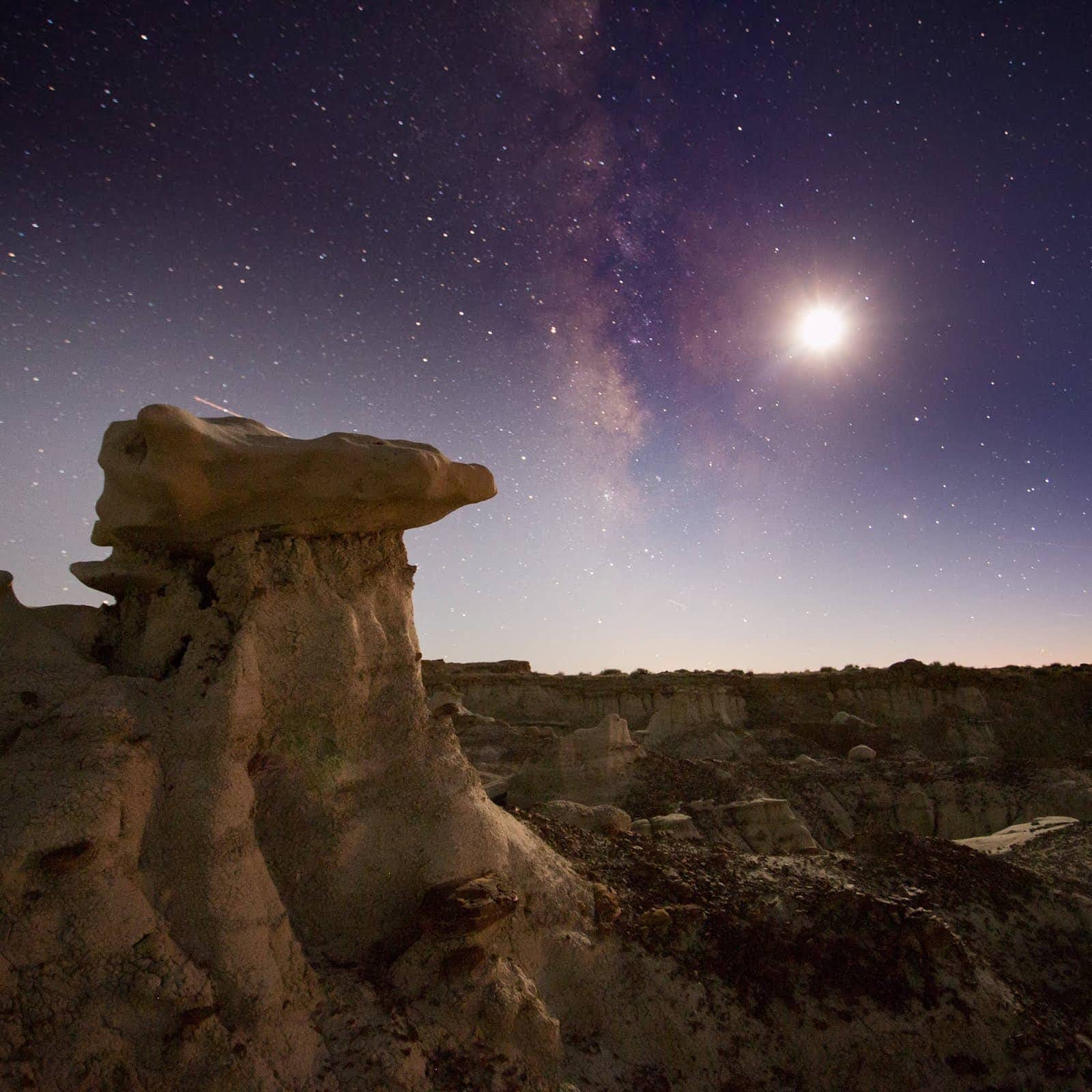
The Best Space Sights and Activities on Earth
Ok, so based on all the above, you’re probably realising that space is still a pretty tough place to get to right now, and even over the next few years it’s still going to be pretty darn expensive for a fairly brief jaunt.
Don’t fret though. Planet Earth is a pretty cool place, and there are a lot of space-related activities you can take part in without re-mortgaging your house and strapping yourself to a rocket.
Here are a few places you can learn about space and space travel in the meantime! Let’s look at these.
1. Active Spaceports
Whilst you might not get into space right now, you can still visit a spaceport and dream of the future! I’ve picked three spaceports for you to think about visiting.
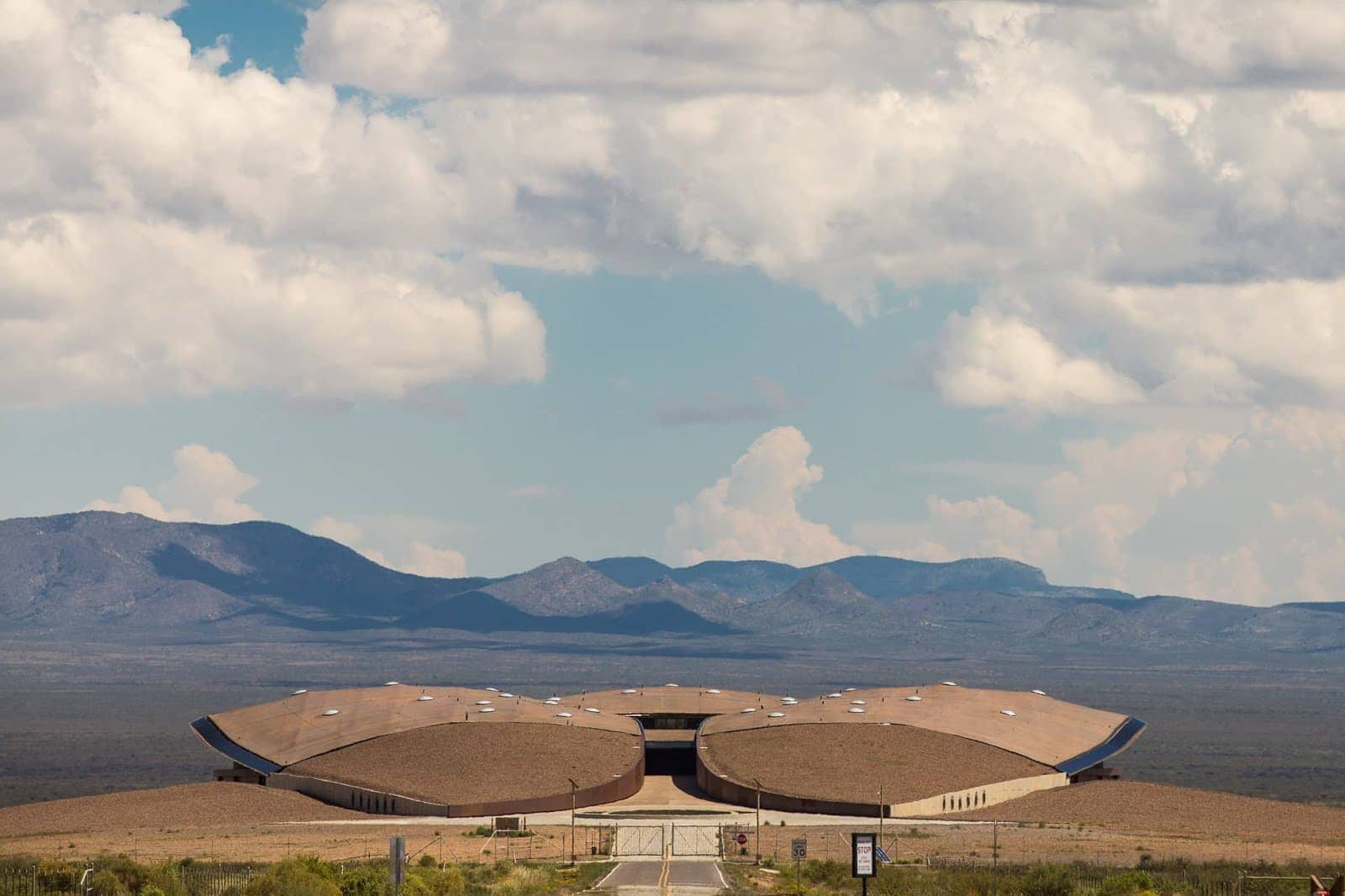
Spaceport America, USA. Set in the high New Mexican desert, Spaceport America is the world’s first purpose-built commercial spaceport, meaning it’s designed for commercial users. Yes, people like you and me. It’s the home base of Virgin Galactic, and is where that company will be operating from when they finally launch their space tourism flights. SpaceX also conduct some of their testing here. Unfortunately, you still can’t board a space trip here, but it’s a worthwhile place to visit, if only to get a tantalising glimpse of a possible future.
Kennedy Space Center, USA. Found in Florida, Kennedy Space Center is the main launch pad for NASA’s operations, and is where Apollo and Space shuttle launches took place. It’s a massive facility, spanning 144,000 acres. There’s a visitor centre on site, where you can learn all about NASA and it’s space operations, see an actual space shuttle and even experience a simulated space shuttle launch. Kennedy Space Center is still very much an active launch site, and you can also come here to watch rockets blast off into space – see their website for the launch schedule .
Baikonur Cosmodrome, Kazakhstan. One of the world’s most famous spaceports, and certainly the oldest and largest, Baikonur Cosmodrome is where the majority of Russia’s space program has operated from, including the first man into space, Yuri Gagarin. It’s still very active, and you can in theory visit, however prices are steep for a one day tour ($700+), and can only be arranged via a specialist tour operator in a complex process that needs to be booked weeks in advance.
2. Space Museums
As well as active space ports, there are a lot of museums around the world dedicated to sharing man’s activities in space. Here are a few of the best.
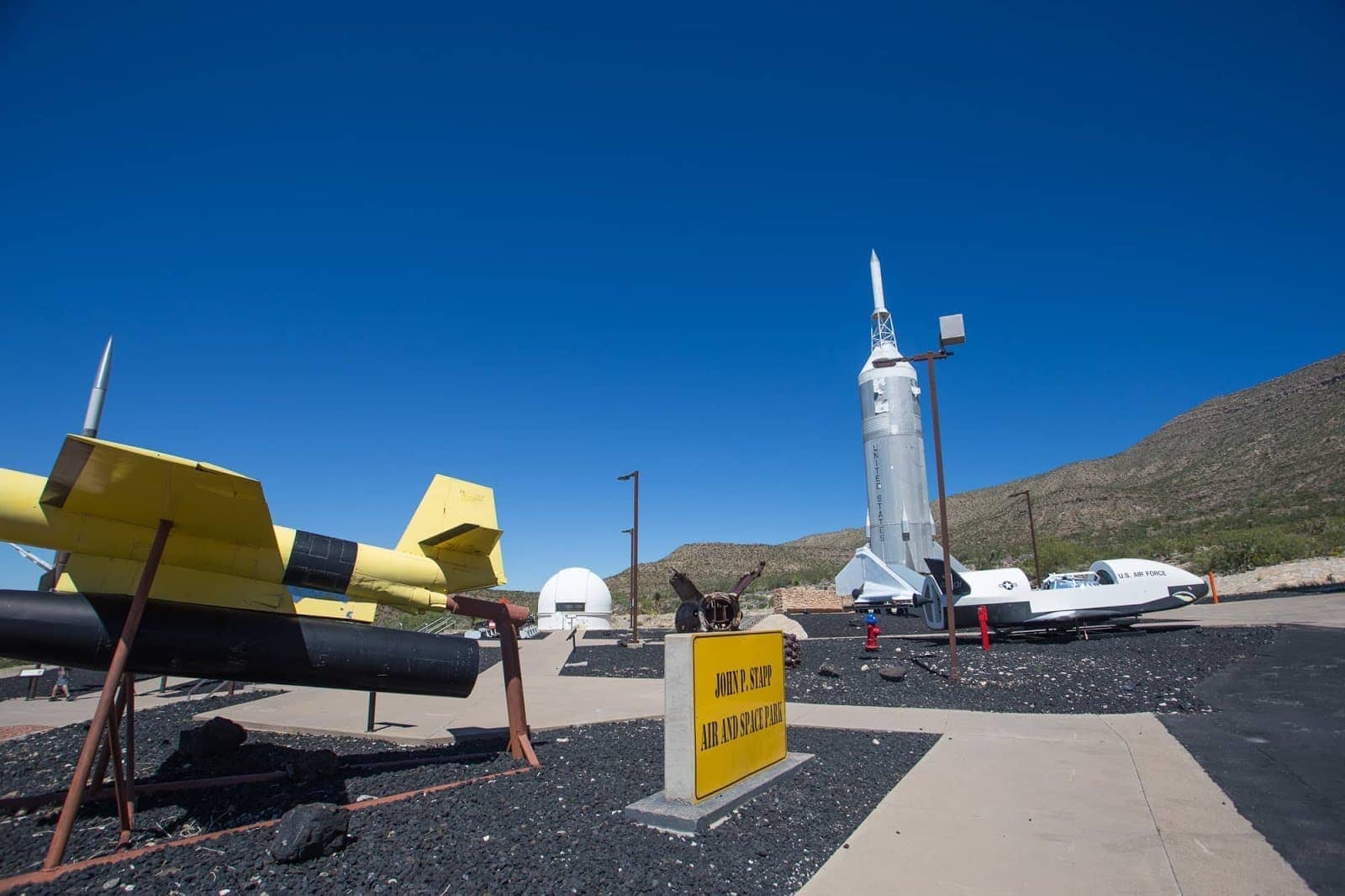
Space Center Houston, USA. The official visitor centre for NASA’s center for human spaceflight activities, Space Center Houston is an excellent place to come and learn all about NASA’s efforts around getting people into space. It has a number of artifacts from our explorations to date, including a lunar module replica and various actual capsules that have been into space. Tip – if you’re visiting a few sights in Houston, you can save money by investing in a CityPASS card which will get you into the Space Center as well as a number of other attractions in the city.
New Mexico Museum of Space History, USA. Found in Alamogordo in southern New Mexico, the five storey New Mexico Museum of Space History is full of information about man’s efforts to get into space, with everything from information on early rocket technology through to more modern day exhibits including a space shuttle landing simulator. It’s also home to the International Hall of Space Fame, a planetarium, and offers fantastic views across the White Sands National Monument.
Smithsonian National Air and Space Museum , USA . Found in Washington, D.C., this enormous museum is home to the world’s largest collection of historic aircraft and spacecraft in the world, including the Apollo 11 module and clothing worn by astronauts. With over 60,000 objects on display, you won’t run out of things to look at!
The National Space Centre, UK. Both a museum and an educational resource, the National Space Center in Leicester, UK, is home to six interactive galleries and the UK’s largest planetarium. A highlight though is the 42 metre high Rocket Tower , which houses a number of upright rockets, really giving you a feel for the enormity of these machines.
The U.S. Space and Rocket Center. Found in Huntsville, Alabama, right next door to NASA Marshall. The U.S. Space and Rocket Center has loads of information on the history of space flight, including two full size Saturn V rockets! This is also where you can attend Space Camp , a hands-on multi day training program for all ages, which will take you through a range of training similar to that which real astronauts do!
3. Space Themed Sights
We may be currently fairly stuck on the planet, but that doesn’t mean we’re not still hurtling through space, a small rock in a vast galaxy. Here are a few ways to help remind ourselves that there’s more out there than our horizon.
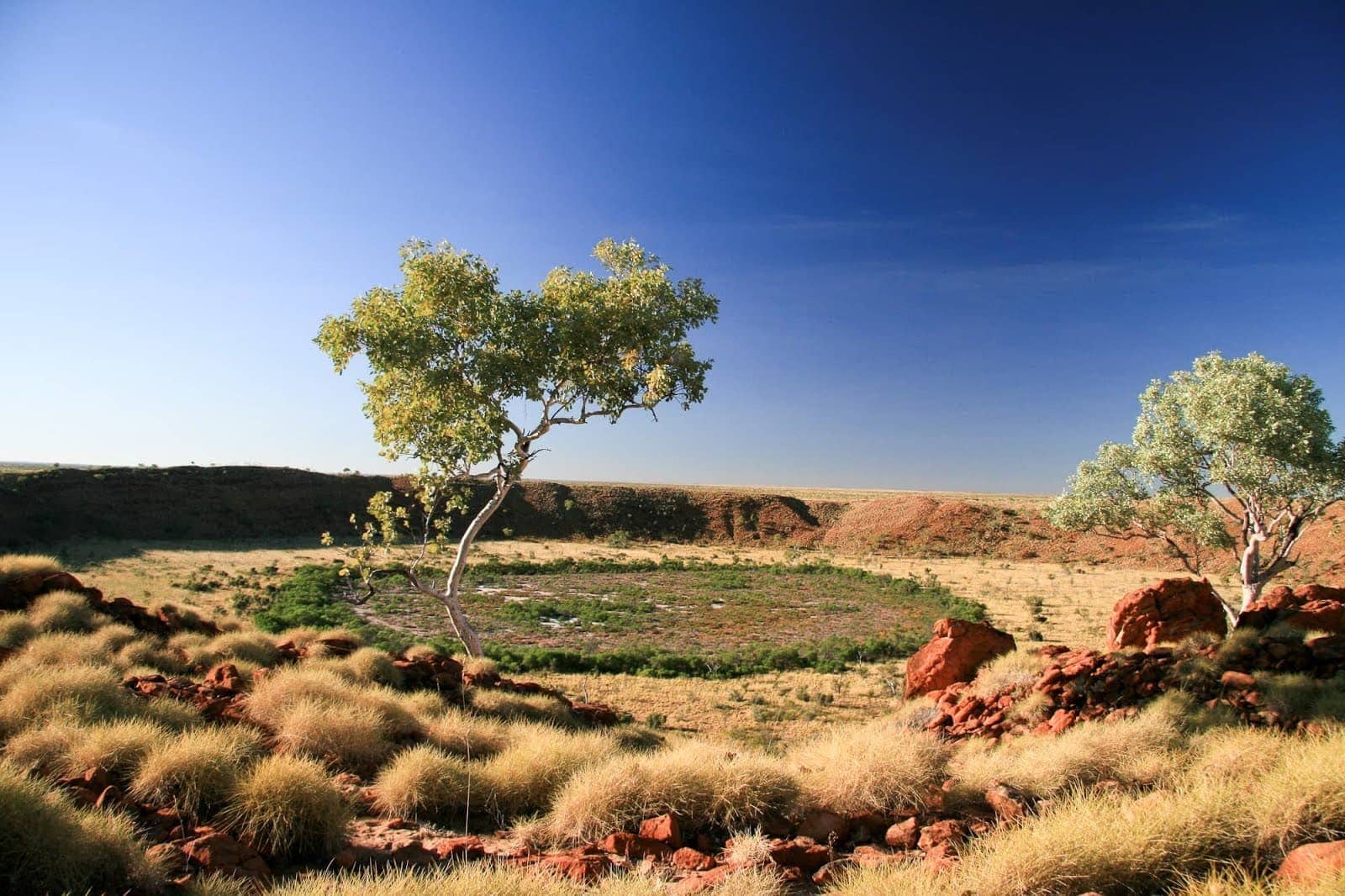
Meteor Craters. On our journey through space we regularly bump into errant lumps of space debris – around 100 tons a day in fact. Most often these lumps are so small (dust-specks really) that they just burn up in our atmosphere, creating beautiful shooting stars. However, anything larger than a marble has a chance of making to earth, although there are a lot of factors at work.
According to NASA , it’s the lumps that are around the size of a football field and up that make the most impact, and one of these hits us every couple of thousand of years. They can cause significant damage and leave a lasting impact. Two worth mentioning that you can visit are the aptly named “ Meteor Crater ” in Arizona, USA, and the Wolfe Creek Meteorite Crater in Western Australia. Both of these are around a kilometre in diameter, meaning you can see the whole structure with the naked eye and really get a feel for the force required to create such a hole. Of course you can also find smaller ones all over the world.
Star Gazing. You might not be able to get to the stars, but that doesn’t mean you can’t appreciate them. I always find that just lying back and staring into the vastness of space from a really dark location is a very powerful experience. You need to be somewhere far away from light pollution to get the best views of the night sky – there are dark sky preserves (and even festivals !) where you can get a great view, otherwise, head as far away from the lights as you can and just look up.
4. Giant Telescopes
How about if you can’t get into space, you try just looking at it through a really big magnifying glass and pretend you’re there? It might be as close as you can currently get to space for free, whilst also being wowed by humanities technological accomplishments. Below are four locations around the world where you can learn all about the art of looking into space. Of course, there are many more sites around the world and you can find a list of some of the major telescopes here although not all can be visited by the public.
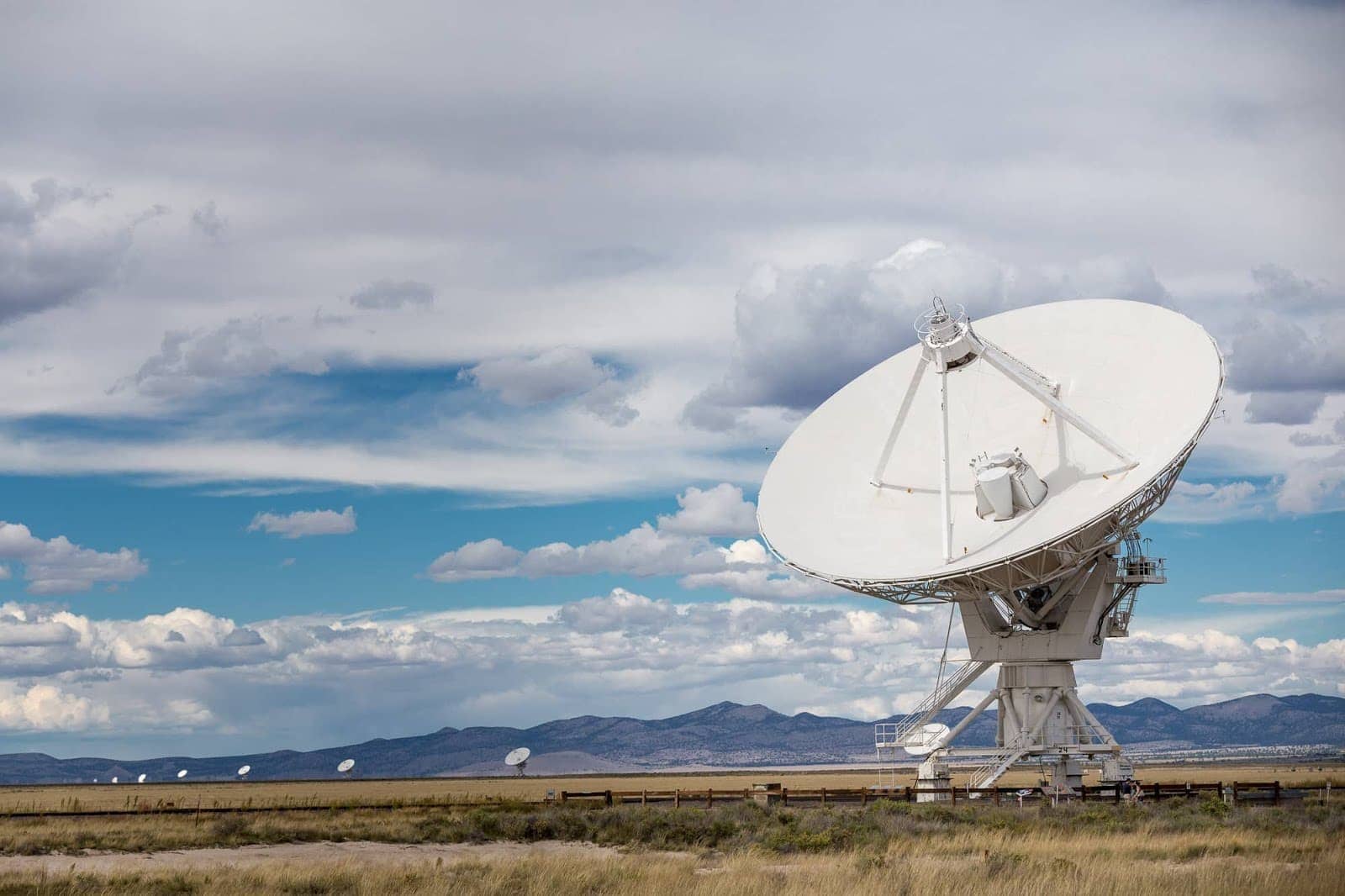
The Very Large Array, USA. Far out in the New Mexico wilderness, the Very Large Array is one of the world’s largest and most impressive radio telescopes. Unlike an optical telescope, which look at visible light waves, a radio telescope looks at radio waves, and from that we can learn all sorts of things from how black holes are formed through to the creation of the universe itself. These radio waves require a very large telescope, which is why the VLA is actually made up of 27 dishes, which work together to capture radio waves. There’s a small visitor centre and self-guided walking trail, and there are guided tours on the first Saturday of the month. See the official website for more details.
Jodrell Bank, UK. If you’re in the UK , then a trip to Jodrell Bank is a good option for viewing impressively large radio telescopes. In fact, Jodrell Bank is home to the world’s third largest steerable radio telescope, as well as a number of other active telescopes. There’s a visitor centre where you can learn all about the telescopes, and all sorts of other space-related things.
The Very Large Telescope, Chile. Way up high in the mountains of Chile is the world’s most advanced visible-light astronomical observatory – the aptly named “ Very Large Telescope ”. Operated by the European Southern Observatory, this is the most impressive optical instrument in the world to date, consisting of four main mirrors that are over eight meters in diameter, as well as four 1.8m diameter mirrors. These work together to create a final image, and the telescope is powerful enough that it would be able to make out a cars headlights on the moon. It’s fairly remote, what with it being on a mountain top in Chile, but you can visit – check here for more information on tours.
Green Bank Observatory, USA – At time of writing, Green Bank Observatory is home to the worlds largest steerable radio telescope, the Green Bank Telescope. Constructed in 2001, it’s one of the newest US telescopes, and with a total collecting area of 2.3 acres, is certainly impressive to behold. You can take a tour of the observatory, and there are also weekly and monthly events at the site.
5. Extra-terrestrial spots
If you’re really desperate to get off planet, you might want to frequent a location which has a history of extra-terrestrial activity such as UFO sightings. Whilst E.T. is yet to make formal contact, who knows, you might get lucky and have the chance to hop on a passing spaceship!
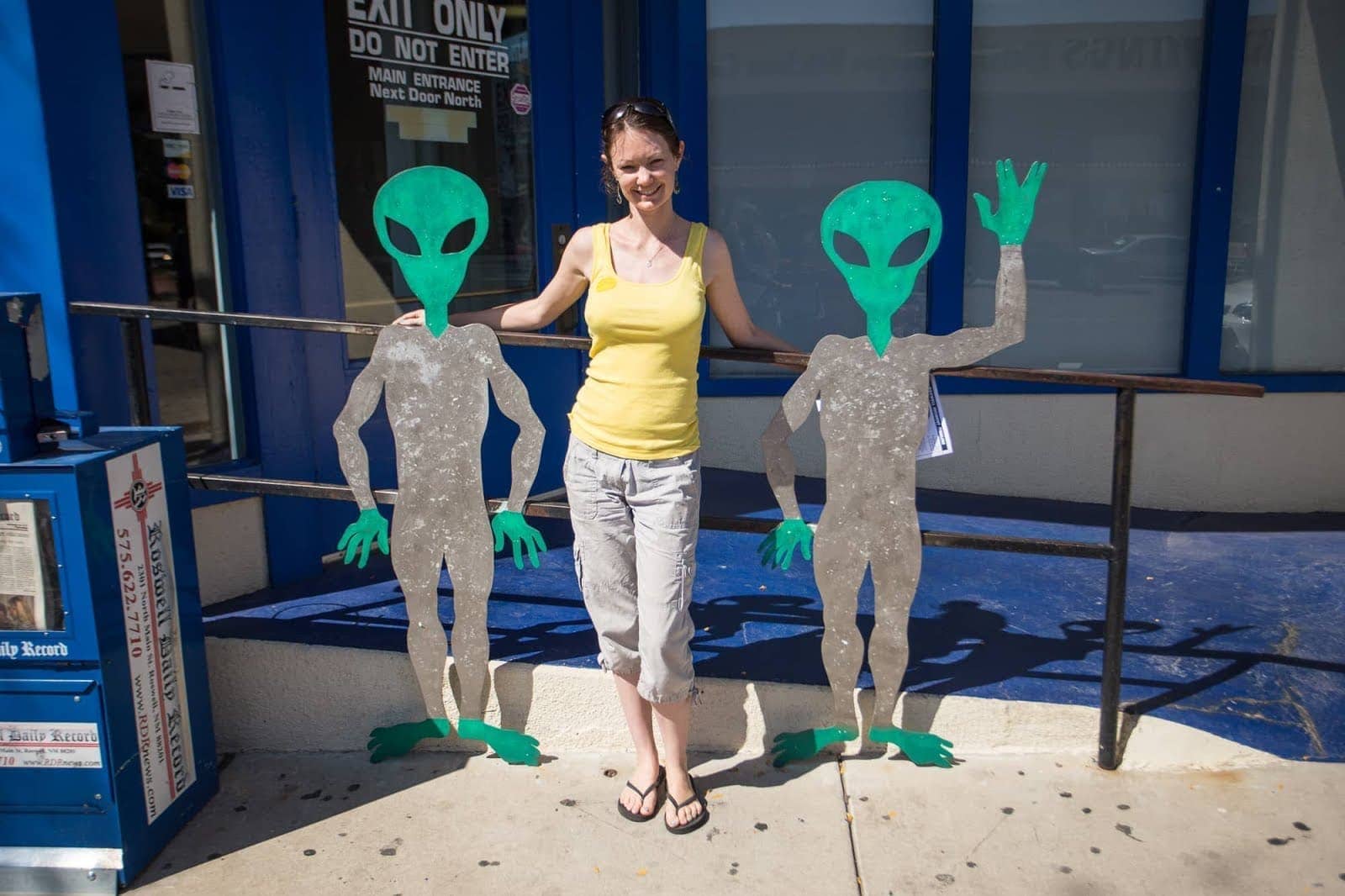
Roswell, USA. If you want to learn about aliens, then the town of Roswell in New Mexico has definitely got to be on your list. It became famous as the alleged site of a huge government cover-up of a supposed alien spaceship crash at a nearby ranch property, and the town has since embraced it’s position as the world’s most famous UFO hotspot. There are a number of alien themed attractions here – we’d recommend visiting the Roswell UFO museum as a good starting point.
El Enladrillado, Chile. Central Chile is well known as a UFO spotting hotzone. So much so in fact, that the country’s national tourism board established a UFO trail, a 30km long designated trail in the Andes mountains that centres around the town of San Clemente. This is definitely a good place to come to spot UFO’s, although the national tourism authority is keen to stress that a sighting isn’t guaranteed.
Nullabor Plain, Australia. When I was travelling in Australia, I had a memorable evening out in the outback on the vast Nullabor Plain with a chap who was convinced he was regularly visited by aliens. He might have been on to something of course, with this region of Australia being particularly famous for UFO sightings. And if you don’t see a UFO, fear not, the star gazing here is pretty epic too!
HR Giger Museum, Switzerland. If you prefer your aliens of the fantastical science fiction type, then a visit to the HR Giger museum in Gruyères, Switzerland, should definitely be on your list. It’s home a large collection of works by Swiss artists HR Giger, who famously created the monsters from the sci-fi classic horror movie Alien (and its sequels). Definitely one for the sci-fi fans.
Further Reading for your Space Trip
Well, that was a lot about space. Hopefully you’ve learnt a bit about your options for getting into space as a tourist, as well as some slightly more cost-effective ways to get your space fix on! Here are a few resources that you might find useful.
- Our favourite sights along the New Mexico Space Trail , USA. Plus a guide to attending the Albuquerque International Balloon Fiesta if you’re in New Mexico.
- Our guide to visiting Jasper National Park for their annual Dark Sky Festival
- A guide to attending Space Camp USA , as well as visiting the U.S Space and Rocket Center
- Official websites for Virgin Galactic , Blue Origin and SpaceX , for when you’ve saved up enough for that ticket to space
- The NASA Instagram feed , for mind blowing space images
- John Glenn’s memoir, to give you an insight into what it was like to be the first American to orbit the earth.
- Chris Hadfield’s book “ An Astronaut’s Guide to Life on Earth ”, helping you understand how to make the impossible a reality, which seems like a good place to end this post!
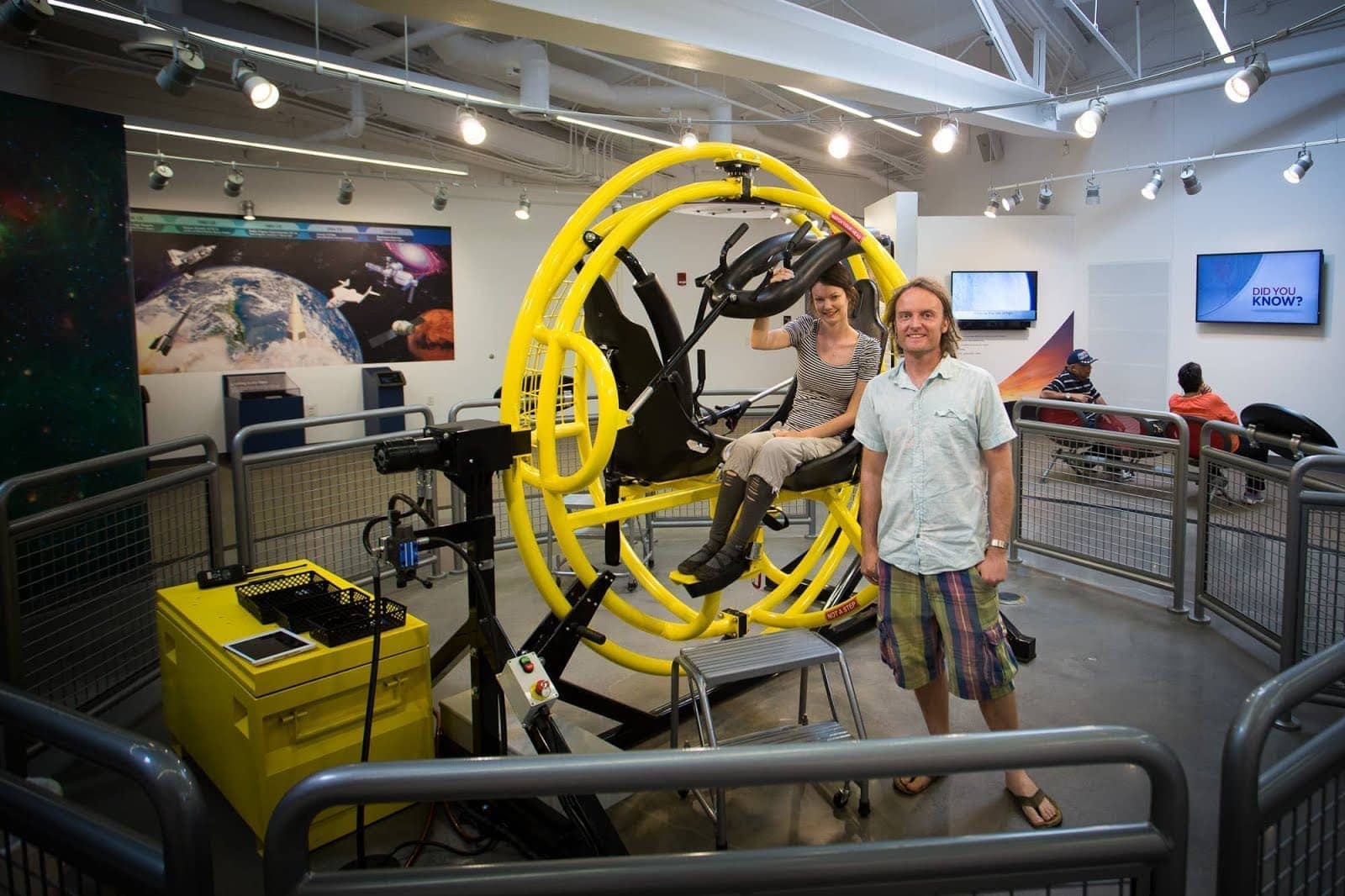
Well, that was a lot to write about space travel and space tourism! We’re not quite there yet, but with the pace of developments I see no reason why, in the coming years and decades, that I won’t finally be able to realise my dream of heading up into space for real. Let me know in the comments if heading into space is a dream of yours!
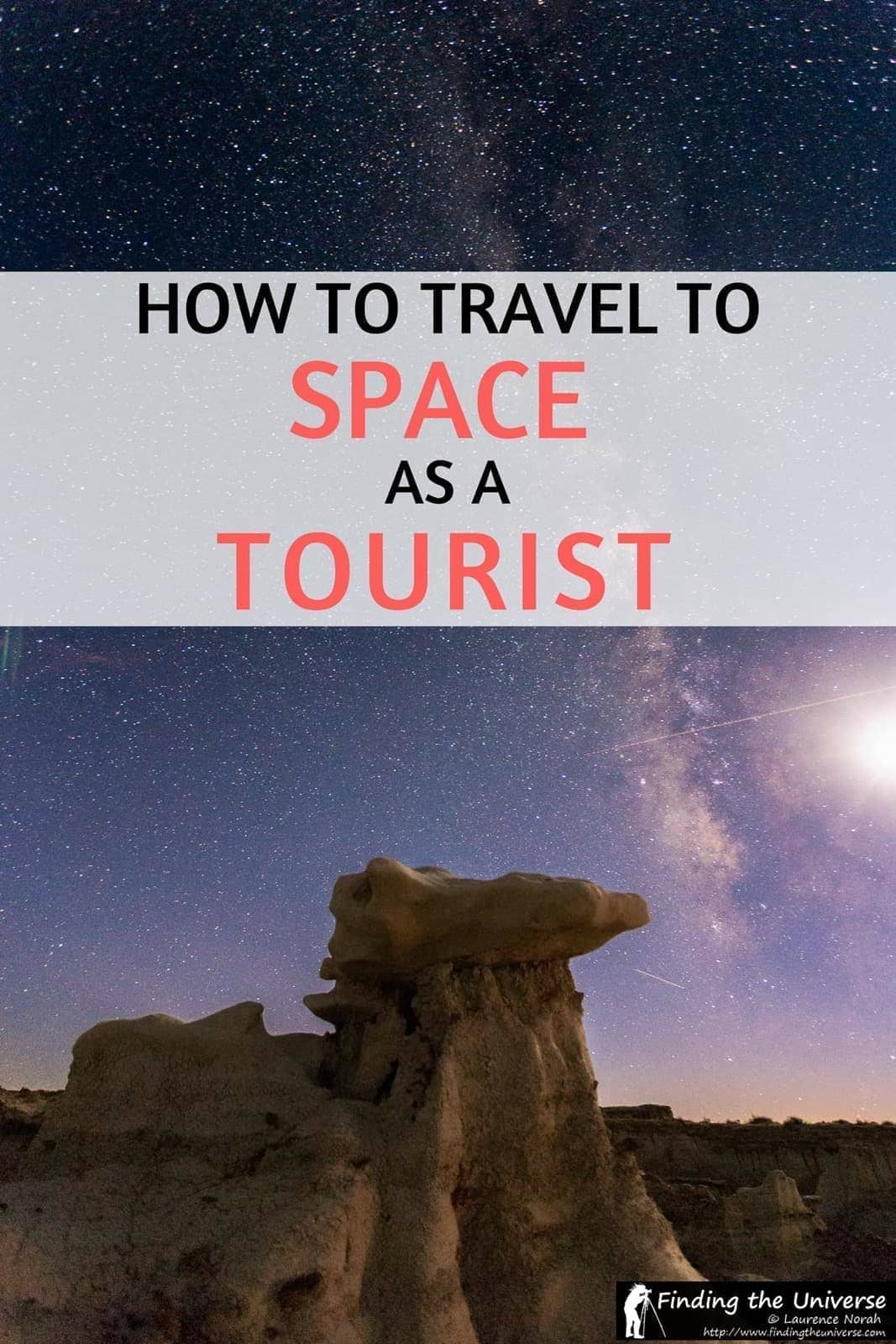
Enjoyed this post? Why not share it!
There are 4 comments on this post
Please scroll to the end to leave a comment
Lynn Magnuson says
17th February 2024 at 8:16 am
Traveling into space is something I’ve wanted to do ever since I was a child. I remember sitting in class and I think it was the third grade and watching Alan Shepard blast off. I knew at that point that someday I wanted to do the same thing. It hasn’t happened yet, but as time goes by the chance to do so, becomes more and more a possibility. I hope someday I do get the chance.
I love your article. Very well written and very informative. Keep up the great writing. That’s another thing I share a passion for. Writing
Laurence Norah says
20th February 2024 at 1:45 am
I’m right there with you! I really hope you get the chance to get into space some day soon. It’s definitely getting closer as a possibility 🙂
Safe travels, be they earthbound or not!
roshmand says
2nd July 2023 at 6:57 pm
amazing poat. thanks
4th July 2023 at 9:39 am
thank you very much 🙂
Leave a Reply Cancel reply
Your email address will not be published. Required fields are marked *
Let me know when there's a reply to my comment (just replies to your comment, no other e-mails, we promise!)
Subscribe to our monthly Newsletter where we share our latest travel news and tips. This also makes you eligible to enter our monthly giveaways!
We only ask for your e-mail so we can verify you are human and if requested notify you of a reply. To do this, we store your data as outlined in our privacy policy . Your e-mail will not be published or used for any other reason other than those outlined above.
- BBC Astronomy
- How we review
- Telescope mounts
- Finderscopes
- Astronomy accessories
- Top astro kit
- Astronomy for beginners
- Astronomy DIY
- Buyers' guides
- Online Planetarium
- Astronomy news
- Astrophoto guides
- Send us your images
Want to go to space? Here's how you can
Have you ever wanted to travel into space? It's theoretically possible. Here are the various options, and how much it will cost you.
Ezzy Pearson
Have you ever wanted to go to space? Is it your dream to leave Earth behind and travel the cosmos? These days getting to space is becoming more of a reality for non-astronauts, even if the cost of doing so remains astronomical.
Go back 60 years and the idea of anyone going into space was little more than a dream. Today, more than 550 people have achieved this ambition, journeying beyond our planet and into low Earth orbit.
For decades it’s been governments footing the bill for training and flying astronauts, but that could all be about to change as space tourism becomes more of a reality over the coming years.
Private spaceflight is on the verge of being able to regularly carry private passengers into space, allowing anyone who wants to travel to the stars to do so – provided they have the money, that is.
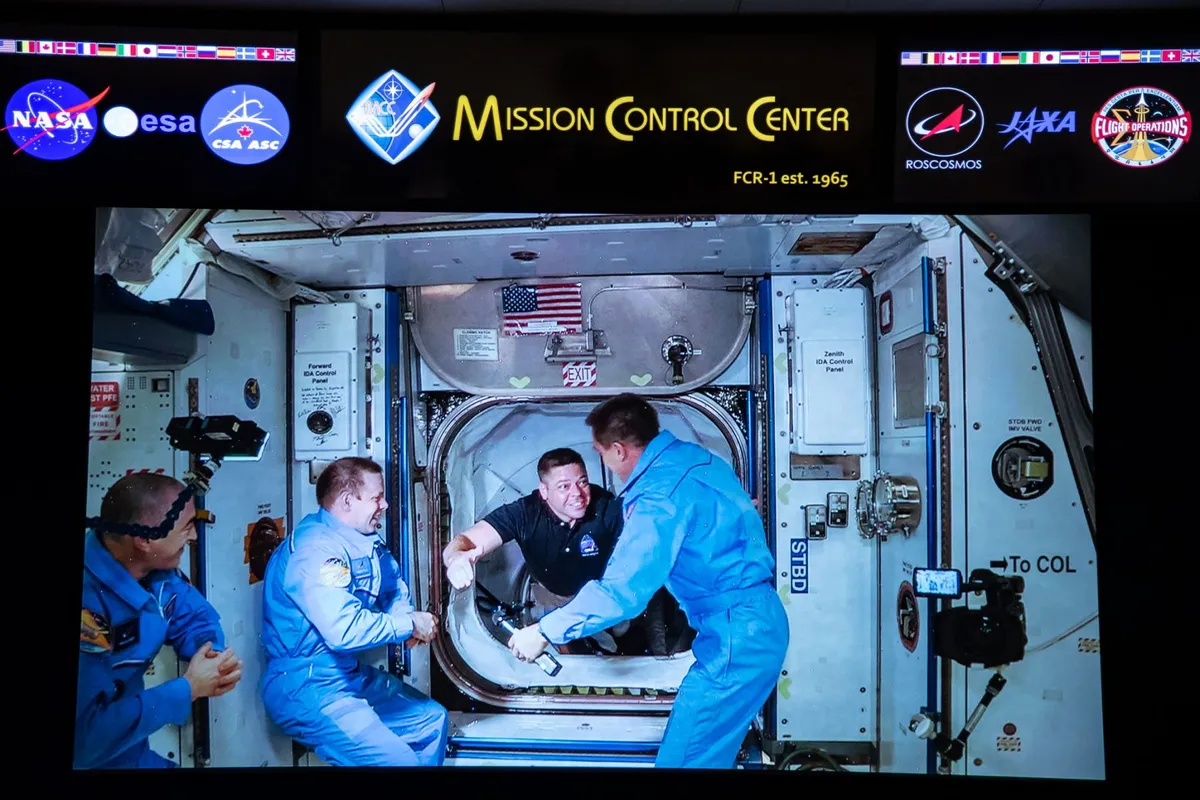
What companies are sending tourists to space?
The private company closest to sending people into space is SpaceX. In fact, it has already done so, having completed the first successful crewed flight of the Crew Dragon modules in August.
Rival Boeing isn’t far behind and hopes to have its own Starliner spacecraft certified for human spaceflight by the end of 2021.
Both companies are remaining tight-lipped about their fees, but a 2015 NASA estimate put the cost of a round trip ticket to the International Space Station (ISS) on a Crew Dragon or Starliner module at around $58 million.
Though both companies built the spacecraft to ferry astronauts to and from the ISS, they also plan on selling flights to whoever can afford it, be they academic institutions hoping to conduct research in orbit or deep-pocketed individuals wanting to take the ultimate trip.
Getting into space: your options
Visit the international space station.
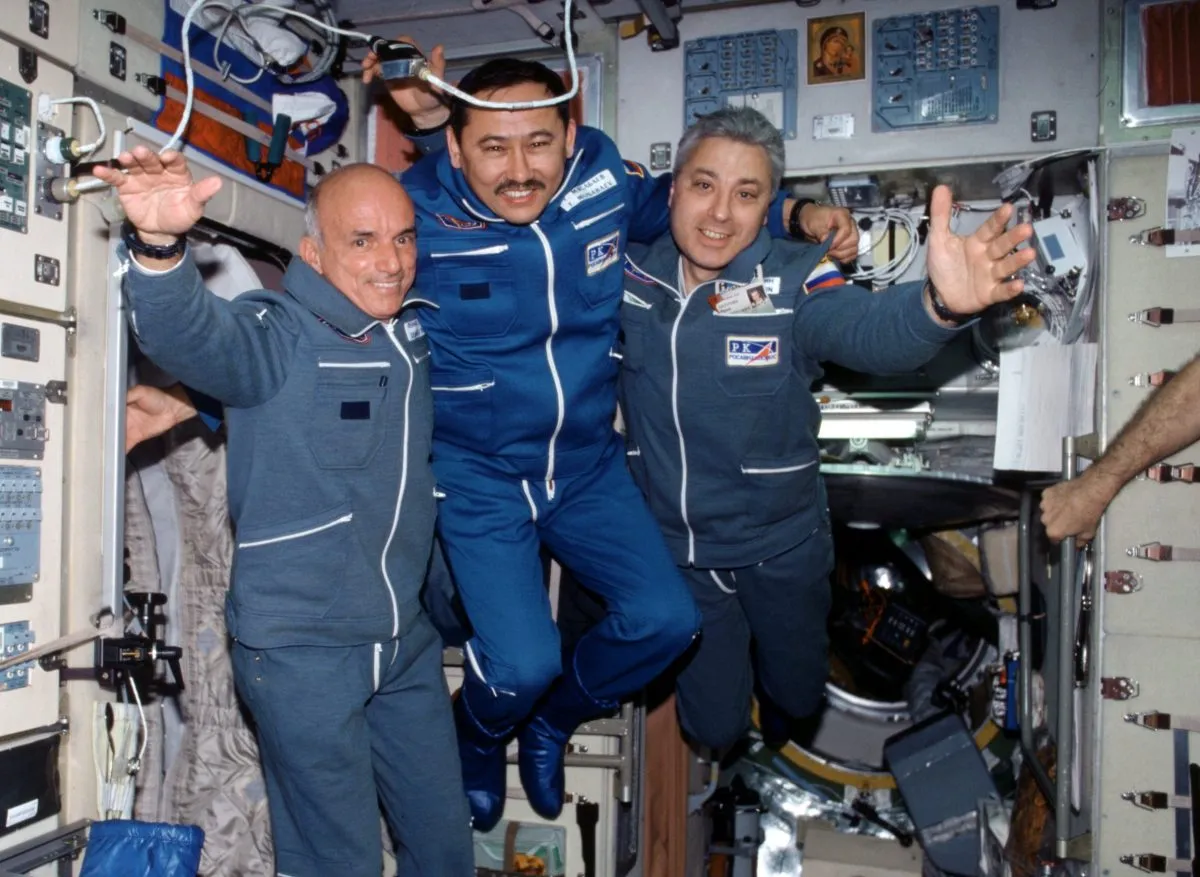
NASA is already anticipating the coming boom of private passengers, announcing back in March that the American space manufacturer Axiom would be building an ISS module to accommodate them.
Axiom is also helping to facilitate flights to the station. Their first, which will take 3 private astronauts to the International Space Station , is planned for mid 2021. There’s still a seat going spare but you’ll have to pay the $55 million price tag on the ticket.
If your budget can stretch to the billions rather than the millions, however, you can always approach private space exploration companies direct for something a little more bespoke than an off-the-shelf flight.
Take a trip around the Moon
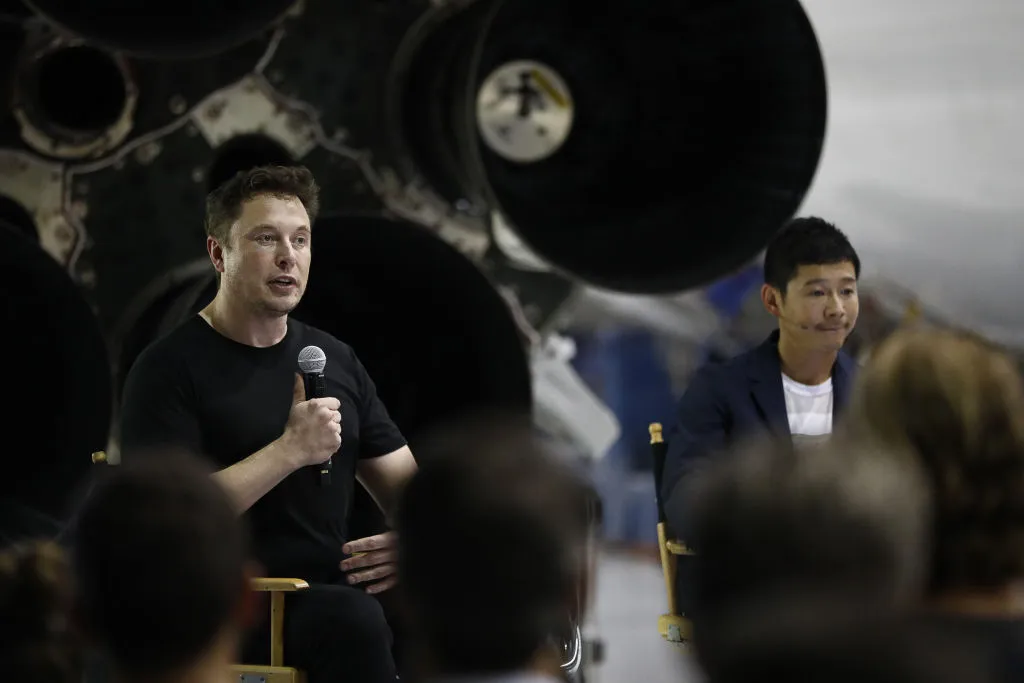
Space X is currently working with Japanese billionaire Yusaku Maezawa on such a mission, called #dearmoon , which will send 6 to 8 passengers on a flight around the Moon.
Maezawa is even giving away his seats, but you’ll have to be a world-class artist to stand a chance of getting one; his plan is for all the passengers to create works of art attempting to convey the experience of being in space to the world.
Reach 'outer space' with Virgin Galactic
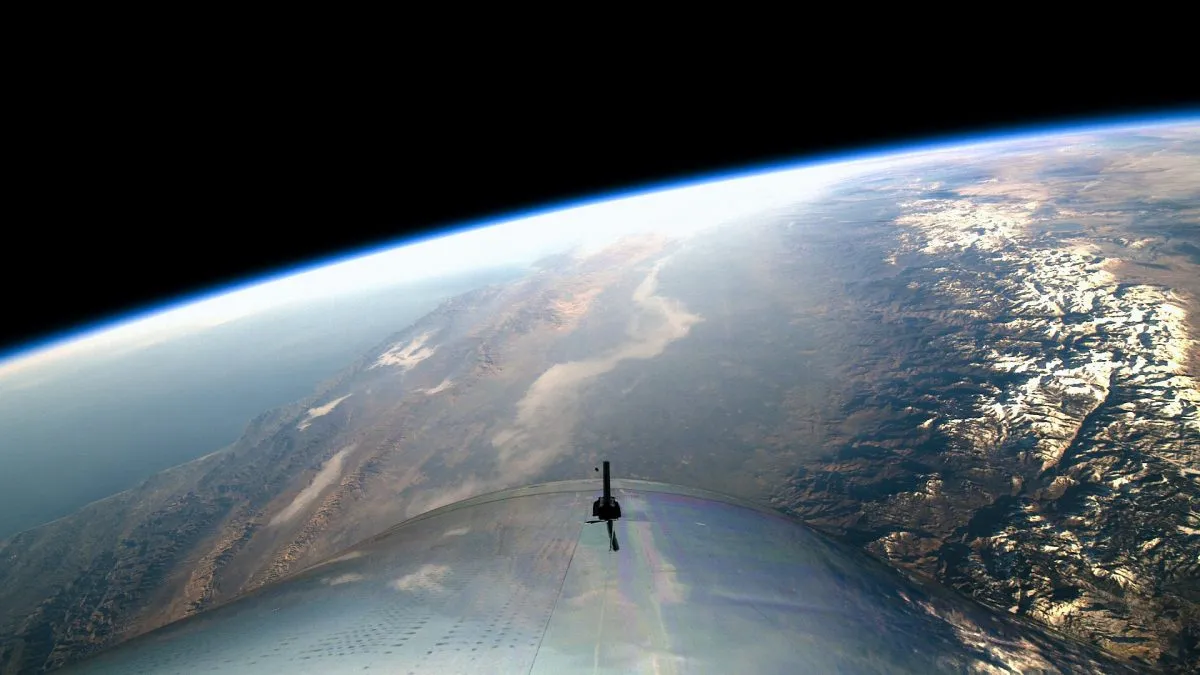
At the other end of the fee scale, relatively speaking, is the option of taking a sub-orbital flight with Virgin Galactic .
The company promises passengers three things: to cross the boundary into outer space 100km above Earth’s surface; to let them see the curvature of Earth; and at least 5 minutes of free-floating weightlessness.
After years of postponements, founder Richard Branson has announced that he hopes to take his own first flight in early 2021, before working down the list of 600 people who have purchased a ticket at the early-bird price of $250,000.
Become an astronaut
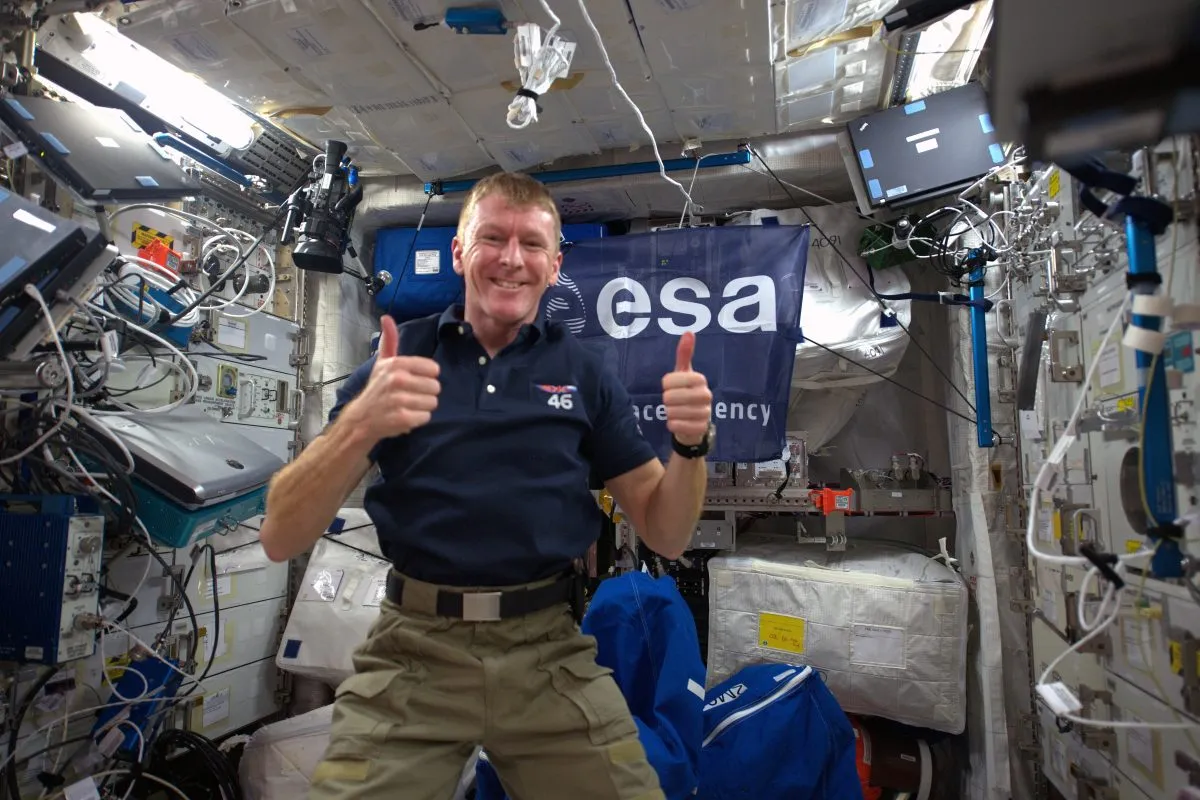
While it’s nice to daydream, the reality is that most of us could never afford even the 6-figure option. There is one more possibility, however: become a professional astronaut.
All you need is excellent physical health; a masters in a physical science, engineering or medicine; several years of work experience; a decorated military history; or over 1,000 hours of flight experience. Easy, eh?
If you’re applying to NASA, who select around a dozen candidates every few years, then you’ll need to have US citizenship. For more on this, read the guide to becoming a NASA astronaut .
For Europeans there might be a bit more of a fight, as the European Space Agency (ESA) hasn’t selected a new class of astronauts since 2008, when 8,414 people applied for just 6 places.
Rumour has it that the agency will be sending out a call for new astronauts in 2021, so it might be time to start working on the CV.For more on this, read the ESA guide to becoming an astronaut .
Which non-astronauts have been to space?
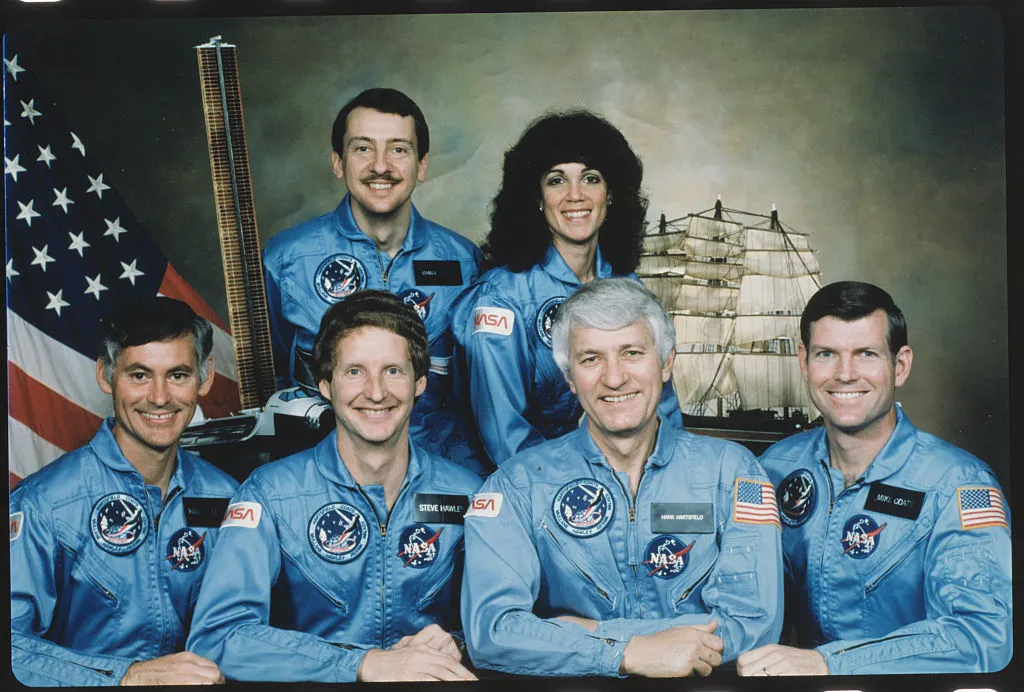
In 1984, American citizen Charles D Walker became the first non-government sponsored person to reach space.His employer, aerospace company McDonnell Douglas, paid for him to fly on three Shuttle missions.
NASA charged just $40,000 per flight, though the company spent around $20 million of its own money training him.
Most private spaceflights, however, were not flown on NASA's Space Shuttle but on the Russian Soyuz .
In the 1990s, the Soviet Union’s wider financial problems left its space agency with a shortfall in its ledger, making it more than willing to accommodate paying customers.
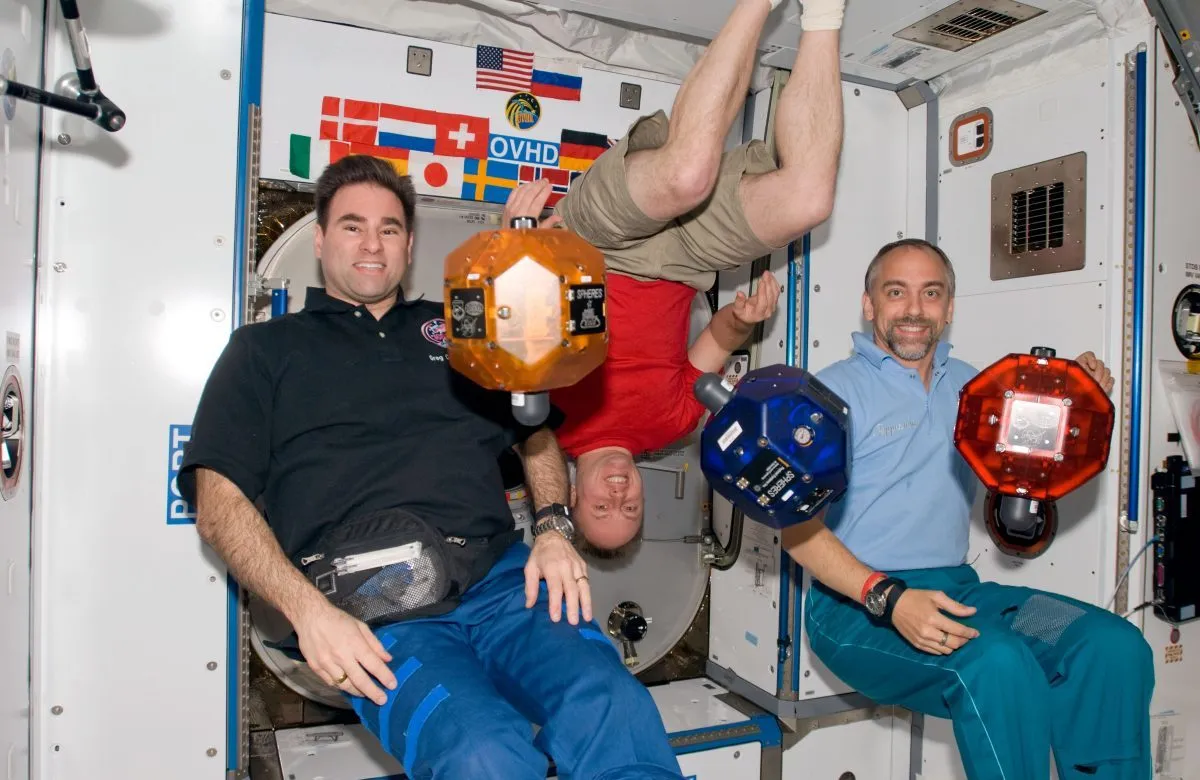
In 1990, a Japanese broadcasting company paid for reporter Toyohiro Akiyama to fly to the Mir space station, and a few years later Helen Sharman had her flight paid for by various sponsors, becoming the UK’s first astronaut.
In 1998, Space Adventures began working with the Russian space agency to broker future flights to the International Space Station (ISS).
Since then, the company has trained and flown seven individuals, including the second person to wear the British flag in space, gaming entrepreneur Richard Garriott.
In all these flights, the individuals did more than just float around, looking at the view.Instead, they helped to conduct research and experiments, or put on outreach events to educate those back on Earth.
Ezzy Pearson is BBC Sky at Night Magazine's News Editor. This guide originally appeared in the November 2020 issue of BBC Sky at Night Magazine .
Share this article

Science journalist

- Terms and conditions
- Manage preferences
We sent you SMS, for complete subscription please reply.
You are using an outdated browser. Please upgrade your browser or activate Google Chrome Frame to improve your experience.

Wonder of the Day #19
What Would You Pack for a Trip to Outer Space?
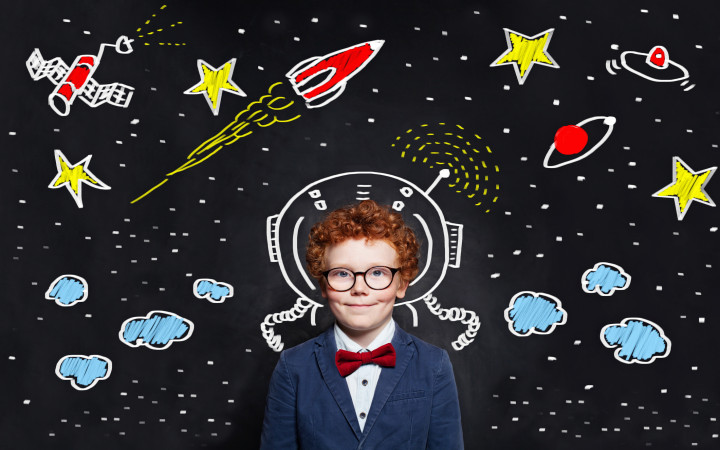
SCIENCE — Earth and Space
Have You Ever Wondered...
- What would you pack for a trip to outer space?
- What do you need to survive in outer space?
- Why is recycling important?
- astronaut ,
- ecosystem ,
- International ,
- life-support system ,
- recycling ,
- spaceship ,
- Astronaut ,
- Ecosystem ,
- Life-Support System ,
- Recycling ,
- Spaceship ,
Today’s Wonder of the Day was inspired by Kylie. Kylie Wonders , “ What is it like to live on the International Space Station? ” Thanks for WONDERing with us, Kylie!
Have you ever dreamed of traveling in space ? For many kids, gazing at the stars leads to daydreams about what it would be like to be an astronaut . Would you like to travel on a spaceship? Just think about how awesome it would be to set foot on the moon or another planet!
Of course, becoming an astronaut isn't easy. There aren't many astronauts in the world , so you have to be very skilled in a number of different areas. Astronauts have special combinations of skills that make them suitable to be traveling scientists beyond Earth.
Although it sounds like it would be great fun to travel to outer space, it would be a lot of work, too. Traveling to outer space takes lots and lots of preparation. Everything has to be planned carefully in advance. Why? Because once you leave Earth's surface, you're on your own with what you have in your spaceship. There's no store to go to in space!
Once you are in space, nothing can come on board the ship and practically nothing can go out. You must take everything you need to survive into outer space with you. Let's call these items “inputs." Inputs might include necessities such as food , water and oxygen .
Now let's talk about “outputs." Every input creates an output . Let's say you open a box of Coco Comets cereal for breakfast. What will you do with the box when it is empty? You only have so much room to store outputs on your spaceship. Every piece of garbage you create while on tour will stay on the ship with you. Where will you store the garbage? Can you think of a way to reduce the amount of waste output you create during your time in space?
In order to survive, you must eat and drink . This means your body will also process those food and water inputs and output them in the form of solid and liquid waste . Since nothing can leave the spaceship, you will need to think of a way to handle these bodily wastes. On Earth, we simply flush a toilet, but what happens after our bodily output leaves our homes and enters the sewer systems? Where does it go? It might seem icky, but this is an important question.
Even breathing creates an output — carbon dioxide! Can you think of a way to filter the carbon dioxide from your spaceship? And how will you replace it with the oxygen your crew needs to breathe? Hint: Plants love carbon dioxide and depend on it in the same way humans depend on oxygen to breathe.
Conveniently, plants output oxygen ! However, plants also have other input needs, such as water and fertilizer. If you bring a banana tree on board your ship, you will need to bring enough water to sustain it for a year. You must also consider another type of output the bananas will leave behind after you have snacked on the fruit — the peel! The banana peel will become another output to add to your garbage output pile. Can you think of other plants or trees that may provide a tasty treat without leaving a rind or peel behind for your garbage output pile?
See how carefully you have to plan for a trip to outer space? Not only do you have to think about all the things you'll need, you have to consider the consequences of those things in terms of the wastes they create.
Packing for a trip to outer space isn't as simple as packing your bag for a week at camp. Considering the impact of all your actions takes time and energy. And you can start right now! All of your actions here on Earth have impacts just like they would in space. How can you plan your actions on Earth to have the least impact on the environment and your future ?
Common Core , Next Generation Science Standards , and National Council for the Social Studies ."> Standards : CCRA.L.3, CCRA.L.6, CCRA.R.1, CCRA.R.2, CCRA.R.4, CCRA.R.10, CCRA.SL.1, CCRA.W.4
Wonder What's Next?
Can’t wait for tomorrow's Wonder of the Day? Are you counting down the seconds? It’ll be here in t-minus 3… 2… 1…
Ready for a tour of outer space? Find a friend or family member to help you check out one or more of the following activities:
- Curious about what actual astronauts take with them into space? Do some research on the International Space Station , where astronauts stay for weeks and months at a time. You can learn more about the space station and even see a video that will take you on a tour. Do you think you'd want to spend months at the International Space Station? Why or why not? What would be fun? What would you miss about Earth?
- Fasten your seat belt and prepare for lift off! Close your eyes for a moment and imagine that your car is a spaceship and you and your family are preparing to blast off and tour a far, faraway galaxy. Once in space, your crew will not be able to communicate with planet Earth, nor will you be able to receive any extra supplies from home. Whatever you pack in your spaceship is all you will have for one year. Thinking carefully about what you learned in today's Wonder of the Day about inputs and outputs, what items would you pack with you? Make a list and discuss it with your friends and family members. What do they think of your list? What would they add? Is there anything they'd leave behind? Make sure you evaluate your list carefully to make sure you have a plan to satisfy all of your inputs and to deal successfully with the outputs that will be created!
- Welcome home! We hope you enjoyed your trip! Now that you have returned from your galaxy tour, discuss with your friends and family members how inputs and outputs affect Earth. Much like your spaceship, Earth must carry everything it needs to sustain itself and its many ecosystems and life forms. Nothing can come in and nothing can go out. There is no way to communicate with another planet to ask for help or supplies. If Earth doesn't have enough water or oxygen, what will we do? We can't order it from Neptune! If our landfills begin to overflow, we can't send our garbage into a black hole. The survival of “Spaceship Earth" depends on the choices, actions and behaviors of the crew who inhabit it. That's me and you! Discuss simple changes your family can make to help conserve the resources on “Spaceship Earth" and reduce the amount of output you contribute to Earth's garbage output pile. These can be as basic as turning off the faucet while brushing your teeth or carrying water in a reusable thermos instead of drinking from disposable plastic bottles. When you're done, ask for an adult’s help sharing the ways your family is improving life on our spaceship via social media. Be sure to tag us @wonderopolis. We'd love to hear your ideas!
Wonder Sources
- http://www.windows2universe.org/kids_space/astronaut.html (accessed 03 Feb. 2020)
- https://www.nasa.gov/mission_pages/shuttle/behindscenes/troy_mann.html (accessed 03 Feb. 2020)
- https://www.businessinsider.com/what-astronauts-pack-when-they-go-to-space-2013-9 (accessed 03 Feb. 2020)
Did you get it?
Wonder contributors.
We’d like to thank:
killian and Emma for contributing questions about today’s Wonder topic!
Keep WONDERing with us!
Wonder Words
- consequences
Would that trash can have a heavy lid, too, Space Geek? Or, maybe a vacuum system to draw in the trash so it doesn't float around the space ship.
Hmmmmm......? I will think about that.
Caroline Huey
Thanks for sharing, Caroline!
Hey, there!
You can check out Wonders about UFOs and Area 51 that might help with your question about aliens.
As far as when NASA is going to Mars, you can check out NASA's website about missions to Mars .
Fortnite_GOD_Girl_
Henry stricker
Tyler Hayden
If I was to bring anything I would bring a snack and my family and maybe my candy. the most important thing I would bring is my bible.
Thanks for sharing, Tyler!
Hi, Harper! Great list of your favorite foods! Did you know that astronauts have to eat foods prepared a certain way in space? To learn more, check out Wonder 208: What Do Astronauts Eat In Space?
Thanks for sharing, Xavier! Have you ever WONDERed about What It's Like to Live on the International Space Station? Let us know what you find out!
CodeBreaker416
Oh, no! We're sorry to hear that, CodeBreaker416! What are some of the topics you are most interested in? You can explore other Wonders here!
Welcome to Wonderopolis, Ms. Green! We are excited to hear about what your students would pack, as well!
that was rude code breaker 416.
Hi, Ashlynd! Great question! We encourage you to take a Wonder Journey to see what you can discover!
We hope that the wifi hotspot would work in space, Idkimbored!
Great question, km!! It sounds like there may be a few different answers for this question, though. This Wonder can help give some examples of things you may want to consider packing, and ideas that you would need to consider before taking a trip to outer space!
Thanks for sharing, breanna!
Brice______kbl
I would bring oxygen water and my phone so I can listen to music. BTW LOOOVVVVeEE the article.
Thanks for sharing and for WONDERing with us!!
Thanks for sharing, Spencer_K! Do you think your dog would like outer space?
Great question, tani_madii! We did some digging and think that this link: https://www.nasa.gov/vision/space/livinginspace/Now_Thats_A_Long-Distance_Call.html should help you out!
Tani_Meowww#####
Thanks for sharing, Tani_Meowwww####! Would you be excited for a trip to outer space?
Tani_Meowww#######
That's a good list! But now we are ?...how is there electricity in outer space?
Curious kid
Oooo good question! We've got to think about that one...what would YOU pack?
Great question, Karter! Yes, it is true muscles can easily weaken in space. Without gravity there is much less resistance so the muscles aren't challenged very much. This is why astronauts have to spend some significant time each exercising so they can counteract that. Cool, huh??
Kenzy Ossama
Thank you for commenting, Kenzy! We're glad you visited Wonderopolis today!
Aidan Davidson
That's a great list, Aidan! Sounds like you have thought this through pretty well!
Damian Ortega
Tbh athena, would there be plugs for all tht n would u clean up ur dogs poop whn he/she uses the restroom and where would u put all those electronics
Thanks for joining the discussion, Damian. It's fun to pretend we're going on a space trip! ?
That seems like a good list, athena! Don't forget the power cords and chargers for your electronics (and dog food)! ;-)
would that work in space?
Thank you for joining the discussion, sarah! What would you bring?
Thanks for sharing your list with us, Leo! Tell your brother we said Hello! :D
It sounds like you've given this a lot of thought, Athena! Thanks for WONDERing and sharing with us! :)
You need air.
VERY good point.
Those are things you'd definitely need, Lucas! Thank you for commenting! :)
Hi, Fazaima! We hope you liked this Wonder! Thanks for your comment! :)
We think this sounds like an interesting writing topic, Fazaima! We hope you learned lots of cool new facts! :)
Great question, verona! We hope this Wonder was helpful! We also encourage you to embark on your own Wonder Journey. We're sure you can find lots of info at your library and online! :)
How ever it works just do it
Thanks for WONDERing with us, Taylor and Nevaya! Sounds like you will be ready for a space mission! :)
Sounds like you'll be prepared, Tyresse! Thanks for sharing your ideas with us! :)
Hi, Gregory! We're glad you're having fun exploring Wonderopolis! Thanks for sharing your list of items for space travel! :)
Wonderpolis do you have a second website?
Great question, Gregory! Check out Camp Wonderopolis where you can earn Wonder Cards and explore Maker activities! :)
Flying rosegold zebra!
Thanks for sharing! Those would all be important items to bring! Thanks for WONDERing with us! :)
Hi, Joseph! We're THRILLED to hear you would bring books! Sounds like a GREAT list of important items! :)
We're sorry it didn't help you, Quinn. We have many other Wonders of the Day related to outer space -- perhaps those will help! Just click here to view them. :)
Yu-An Huang
Welcome, Yu-An! All important items for a space mission! Thanks for visiting Wonderopolis! :)
WONDERful, Nancy! Thanks for stopping by Wonderopolis! We're glad this Wonder was helpful and you learned something new! :)
Parth Kotwal
Welcome, Parth! We hope this Wonder was helpful. Thanks for visiting Wonderopolis! We're THRILLED you're WONDERing with us! :)
Cole Richards
Wonderopolis
Great, Cole Richards! We love when we are learning and having fun at the same time! Thanks for visiting WONDERopolis, today! :)

MorgPorgGorp
I hate it too
We're sorry to hear that, Fazaima! There are more than 1,700 Wonders of the Day. We're sure you can find one you like better! :)
We're sorry you didn't like this Wonder! We'd LOVE to have you stop by and read a few other Wonders. :)
SpaminCanadian
You don't have satellite connection in outer space..... So the screen will be blank.
We're glad you joined the conversation, SpaminCanadian! Thank you for visiting Wonderopolis! :)
CarlyRae107
LOL minecraft
Hi, Carly! Many WONDER Friends would agree that Minecraft is a "must pack" item. Do you like playing Minecraft, too? :)
We think you'd have LOTS of things to do to keep you busy in outer space, Daivionne! We're WONDERing what kinds of foods you would want to take to eat? Happy WONDERing! :)
No no that we need real food and not no phone
Thanks for joining the discussion, kaylan! We appreciate you sharing your opinion. The GREAT part is we can all bring different items! :)
Those are some interesting choices, Bryce. Who would you call from outer space? We hope you join us to WONDER again tomorrow! :)
Wow, sian pi! We are impressed with all of your WONDERful thinking! You ROCK! :)
Way to go, Lyrik! Those are some WONDERful things to take with you to outer space. Do you have anything special that you would want to take? Thanks for stopping by Wonderopolis today! :)
Hi, Wonder Friend Hemanta! We are so HAPPY you shared some of the things you think you would need in outer space with us today! We hope you WONDER with us again soon! :)
We're SO GLAD you're spending time with us WONDERing today, Lawrence! We think a pillow and cover would be a GREAT idea to take to outer space! :)
Hello, Amaria. Thanks for visiting us today! Outer space doesn't have electricity, so there isn't a need for outlets. You need food and water to survive, so you would need food and water in outer space. We think bringing a space suite and helmet is a MUST if you were to visit outer space! :)
WONDERful, Orianna! Books make it possible to travel anywhere! Keep Reading and WONDERing with us! :-)
Mrs. Foster's Class
Alright, we're so excited that you're WONDERing with us today, Pinkninja! Thanks for sharing your comment AND telling us all about your interest in NASA! We hope you follow your dreams! Check out all these Wonders about space: https://www.wonderopolis.org/wonders?q=space :)
We are undergoing some spring clearing site maintenance and need to temporarily disable the commenting feature. Thanks for your patience.
Related Wonders for You to Explore

Do All Sharks Live In Saltwater?

What Type of Shark Is the Slowest?

Why Do Sharks Have Nostrils?

Who Was Kalpana Chawla?

How Do You Clean Up an Oil Spill?
Drag a word to its definition
Select a Wonder Word:
Match its definition:
Congratulations!
You’ve matched all of the definitions correctly.
Share results
Question 1 of 3
Which of the following is an example of an “input” you would need to survive in space?
- a television Not Quite!
- b oxygen Correct!
- c maps Not Quite!
- d both (B) and (C) Not Quite!
Question 2 of 3
Breathing creates what “output”?
- a oxygen Not Quite!
- b carbon dioxide Correct!
- c nitrogen Not Quite!
- d trash Not Quite!
Question 3 of 3
Which of the following is an example of an output that an astronaut would need to plan for on a trip to outer space?
- a carbon dioxide Not Quite!
- b trash Not Quite!
- c human waste Not Quite!
- d all of the above Correct!
Quiz Results
Share Results
Spread the joy of wonder, get your wonder daily.
Subscribe to Wonderopolis and receive the Wonder of the Day® via email or SMS
Join the Buzz
Don’t miss our special deals, gifts and promotions. Be the first to know!
Share with the World
Tell everybody about Wonderopolis and its wonders.
Share Wonderopolis
Wonderopolis widget.
Interested in sharing Wonderopolis® every day? Want to add a little wonder to your website? Help spread the wonder of families learning together.
You Got It!

http://www.wonderopolis.org/wonder/What-Would-You-Pack-For-a-Trip-To-Outer-Space
© National Center for Families Learning (NCFL)
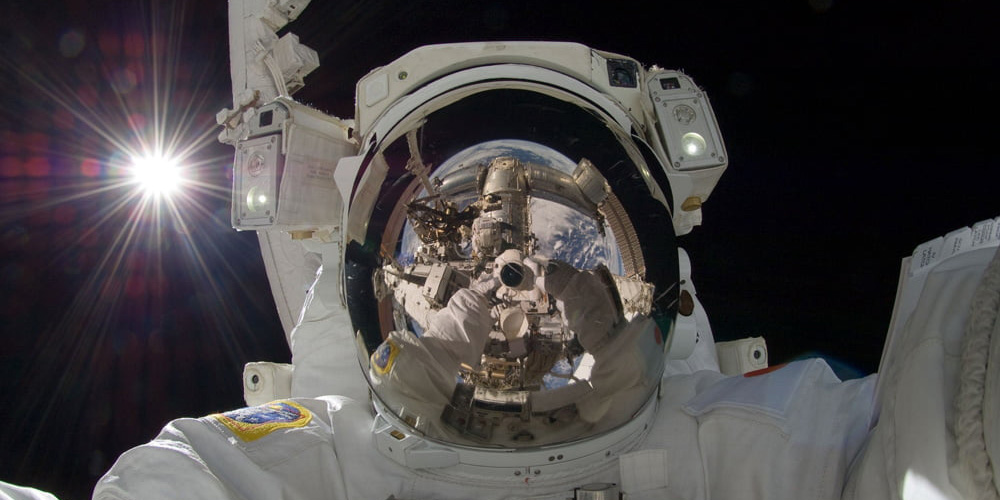
IELTS Speaking topic: Space travel
Do you want to travel in the outer space? What would you do if you had that opportunity? Do you think it’s necessary to see other planets? When was the latest time you went travelling? Do you like to travel by air?
Yes, I bet it would be very funny to travel around the outer space. Considering the current technology development and expensive cost, space travel would be memorable experience in my life.
I would like to do something that can be don on earth. I will try to fly in the air like birds, or jump long distance like a grasshopper, or even I could be the first one that set foot on the Mars.
Well, I don’t think it is very necessary to discover the other planets but humans are so curious and we are hungry for knowledge. So I believe humans will not stop seeing the other space until they find what the universe really is.
Last time, I travelled to Brisbane with my family for a 5-day winter holiday. It was very comfortable compared with other places in winter. Besides, we went hiking in the nearby forest park. It was a wonderful place full of memories and happy moments.
Not really. Travelling by air usually means long distance trip. So sitting in the limited room for hours and doing nothing but sleeping is really boring and tiring. I sometimes prefer to travel by train or drive by myself.
No Comments
This post has 0 comments, leave a reply cancel reply.
Your email address will not be published. Required fields are marked *
Email me when someone replies to my comment.

IELTS Speaking topic: A dream you have had
IELTS Speaking topic: Social network

IELTS Speaking topic: Rainy days
- Skip to primary navigation
- Skip to main content
- Skip to primary sidebar
IELTS Training with Jonathan
Helping Busy People Succeed in IELTS.
How to answer – Space Travel – The Perfect Speaking Part 1 Response
By ielts-jonathan.com on 5 February 2021 0
The Perfect Speaking Part 1 Response
Space travel, did you know that the first part of the ielts speaking test can be the most difficult for candidates..
Share Pin Share Tweet 0 Shares
Not only is the candidate in a test situation, but the candidate is has to deal with listening to an examiner who may speak with an unfamiliar accent or at some speed.
But don’t despair it can also be the easiest part, and the most enjoyable.
There is a valid reason for this part of the IELTS test, and I will explain this below.
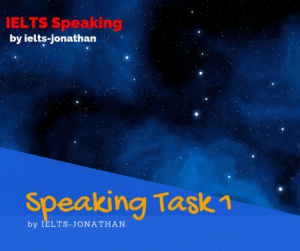
One reason for Part 1 is to ease the candidate into the test, and allow the candidate to tune into the voice of the examiner.
The three sets of questions are not particularly challenging, but are varied in topic and allow the candidate to ‘ warm up ‘ and ‘ gain confidence ‘ and additionally give the examiner ‘ a feel ‘ to immediate level.
One way to do well in this section is to relax.
A relaxed candidate always listens better and responds well.
Other tips are
- Don’t give the examiner an opportunity to ask ‘why’ you think something.
- Connect your sentences.
- Attempt to use complex sentences rather than short, simply ones.
- Don’t hesitate too much, you can make some mistakes
- Don’t be afraid to correct yourself
If you don’t understand something, always ask the examiner to repeat the question.
Think about these questions, what answer can you give,
- Do you want to travel in the outer space?
- What would you do if you had that opportunity?
- Do you think it’s necessary to see other planets?
- When was the latest time you went travelling?
- Do you like to travel by air?
TIP- IELTS Part 1 features ‘three’ random topics chosen by the examiner.
There is a around a minute of speaking time allowed for each section of part 1, so if you can answer the question fully AND extend it, you will get asked fewer questions!
I would love to travel to outer space and would jump at the opportunity if it arose. With the speed of development in current technology, it means it might happen sooner than we think! I mean Eton Musk is planning space holidays, and Jeff Bezos just recently was the first privately financed individual to go into space.
- What would you do if you had the opportunity to go into space?
In a few years it will be possible for anyone to do this. It would be great fun to experience space travel. Just to experience the feeling of being in space and weightlessness would probably be amazing.
At the moment, I think that it’s enough to experience something which we already enjoy on our own planet, there are so many opportunities. Space tourism will become a reality I believe, once the technology is in place. I think this will come from space exploration of planets for minerals and valuable materials.
At the moment, I am lucky to have had made several long haul trips to other countries. The last trip was to Beijing in the winter, it was very cold when we got off the plane.
I think travelling can be quite boring especially if you have to do a number of long-haul flights. Of course, it is quicker but I think it’s more interesting to travel by train or by bus, at least for shorter journeys. At least you can meet other people and observe the surroundings on the country you’re in.
For any of the IELTS test sections, it is important to be aware of general, current topics and developments. This can add depth to your written or spoken answers,
For more ideas about space travel there’s a recent article here on The Conversation, Will astronauts return to the moon in five years?
So, to recap, remember to relax, give full answers and connect ideas, try not to hesitate with your answer and correct yourself if you make errors or mistakes.
I’m Jonathan
I’ve taught IELTS and University English in more than a dozen universities and schools around the world.
I’m a parent, traveller and passionate about language teaching and helping students achieve their dreams.
Whilst living in Austria or working in Asia, I run IELTS courses to help students get to where they want to be.
If you are serious about IELTS, connect with me to see how I can help you.

Share this:
- Click to share on Twitter (Opens in new window)
- Click to share on Facebook (Opens in new window)
- Click to share on Pinterest (Opens in new window)
- Click to share on WhatsApp (Opens in new window)
- Click to share on Telegram (Opens in new window)
- Click to share on Tumblr (Opens in new window)
- Click to share on LinkedIn (Opens in new window)
- Click to print (Opens in new window)
Reader Interactions
Was this helpful leave a comment :) cancel reply, let me help you get the ielts result you need.

JUST WRITING FEEDBACK

Speaking Feedback
IELTS TRAINING
IELTS FEEDBACK
YOUR PRIVACY
TERMS AND CONDITIONS
Want to Go to Space? Here Are Your Options
It won't be cheap, but it will be a once-in-a-lifetime experience..

Though we've been living in the Space Age for more than half a century, going into space remains an extreme rarity. Fewer than 600 people have gone above the Kármán line — the point, about 62 miles above Earth, that marks the beginning of space — and all were put there by the U.S. or another nation's government.
But the rise of private spaceflight companies like Virgin Galactic and Space X means that the final frontier may soon be within reach of a great many more of us. The firms have announced plans to put private astronauts, a.k.a. space tourists, on orbital or suborbital flights within the next few years.
Initially, the cost of a ride on one of these rockets will be hundreds of thousands of dollars at a minimum. That puts the experience within reach of only the wealthiest people. But advances in rocket and capsule design are expected to lower the price to the point that people of more modest fortunes are able to afford a ticket.
Some projections put the global space tourism market at more than $34 billion by 2021 .
What Space Tourists Can Expect
What exactly is in store for space tourists? The excitement of a rocket ride and a chance to experience weightlessness, for starters. And the bragging rights are hard to beat. But some say the biggest benefit of going into space is getting a dramatic new outlook on life on the fragile blue marble we call home. It’s a perspective shift that could have profound implications not just for individuals but also for society at large.
"I personally believe the planetary perspective is going to be crucial to solving humanity's biggest challenges over the next century," says Virgin Galactic CEO George Whitesides. "I'm inspired that we'll take people up so they can experience that view, which is said to change your world view in a fundamental way.”
Billionaire computer engineer Charles Simonyi flew to the International Space Station aboard a Russian spacecraft with the assistance of a Vienna, Virginia-based firm called Space Adventures, and he echoes that sentiment. "It's great to go to space just because it's there," he says. "But I think space is our destiny and we will discover great benefits from it."
Flying High
Virgin Galactic plans to offer suborbital jaunts into space, with customers being treated to six minutes of weightlessness along with that one-of-a-kind view. The Las Cruces, New Mexico-based company says more than 600 customers have signed up, including Leonardo DiCaprio, Katy Perry, Ashton Kutcher, and superstar physicist Stephen Hawking. The price of a ticket stands at $250,000, with registration open for anyone who has that kind of extra cash on hand.
On June 1, Virgin successfully tested SpaceShipTwo Unity . The six-passenger spacecraft glided more than nine minutes to the ground after being released from an airplane flying at 50,000 feet. The company plans to make several more unpowered tests before allowing Unity's rocket engine to fire up so that, following its release from the plane, it can soar into space.
The company has been promising flights since unveiling SpaceShipTwo in 2009. But a series of bruising setbacks, including a 2014 crash that claimed a test pilot's life, extended the craft's test phase.
Virgin CEO Richard Branson said on July 5 that he hopes to see space tourists flying on Virgin by the end of 2018 . But other executives at the firm seem reluctant to commit to that. As Whitesides put it to NBC News MACH, "Once when we're at a place where we're comfortable with powered flights, we'll be ready to begin commercial operations."
Downs and Ups
Midland, Texas-based XCOR Aerospace sought to offer suborbital flights similar to those envisioned by Virgin Galactic. But in 2016, the company halted development of its space-plane, Lynx. On July 5, it announced that all remaining employees had been laid off but stopped short of saying it was out of business .
Between 2001 and 2009, Space Adventures arranged for seven paying customers (including Charles Simonyi) to blast into space for a stint aboard the ISS. Each of these private astronauts got to the station aboard a Russian Soyuz capsule. Space Adventures has unspecified plans to send up more customers but can't now. Since the end of NASA's Space Shuttle program in 2011, all seats on Soyuz have been filled by American and Russian astronauts.
Amazon CEO Jeff Bezos has been eyeing the space tourist market with his private space company, Blue Origin. The company recently posted computer renderings of the opulent interior of its reusable New Shepard capsule configured with six plush leather chairs and six enormous windows.
Blue Origin has yet to say exactly when flights might begin or how much they would cost. Bezos said in March that he’d like to have his first customer flights next year. The company has a sign-up form for those interested in reserving a seat.
Of all companies offering, or expecting to offer, flights into space, SpaceX may have the most compelling story. Earlier this year, CEO Elon Musk announced that the company had accepted payment from two customers for a weeklong flight around the moon and back to Earth, largely retracing the path taken by Apollo 8 astronauts in 1968.
Musk has said that the mission could come as soon as 2018. Some are dubious, however, given SpaceX’s reputation for offering overly optimistic schedules. How much the customers paid for the flight is unknown, but estimates have ranged from $80 million to $175 million per seat .
SpaceX has also announced the even more ambitious goal of sending colonists to Mars starting in 2025. Musk has said that once the company is able to build its massive 100-person Mars Colonial Transporter spacecraft, a trip to the Red Planet will cost about $500,000 — roughly the price of a middle-class house in California — with the goal of eventually bringing the price down to $100,000.
Almost Space
Tucson, Arizona-based World View Enterprises has announced plans to send passengers to an altitude of 100,000 feet in a luxury gondola suspended from a gigantic helium balloon. It's not quite space, but at that altitude, it's possible to see the blackness of space and the curvature of the earth. Eight customers would spend two hours ascending, two hours in cruise, and another hour or two returning to the ground.
Though lacking the cachet of true spaceflight, the World View flights promise a more refined experience; customers would be able to clink champagne glasses while taking in the view from enormous picture-frame windows and posting their photos to social media using onboard Wi-Fi.
World View says it hopes to begin manned testing in 2018 but offers no specific dates for the tourist flights. A ticket is projected to cost $75,000. The company’s co-founder and chief technology officer, Taber MacCallum, says the target customer is "the Baby Boomer who's already bought their Ferrari and bought their third house and are looking for an experience to talk about and share."
Virgin Galactic customers, including Cheryl Howard (right), author and wife of director Ron Howard, take a trip on Zero-G flight in 2014. NBC News / Copyright (C) 2014 / NBC News Finally, there's Zero Gravity Corporation , an Arlington, Virginia-based company that already offers flights aboard a specially modified Boeing 727 that dives steeply to give paying passengers brief periods of weightlessness. As with the World View balloons flights, these parabolic flights aren't actually trips into space. But with a ticket for the experience running a relatively modest $5,000, it might be the cheapest way to get a sense of what it's like above the Kármán line.
Zero G flights take off weekly from airports across the U.S., including Orlando Sanford International near Orlando, Florida, McCarran International near Las Vegas, and Moffett Federal Airfield near San Francisco.
So You Want to Be a Space Tourist? Here Are Your Options was originally published by NBC Universal Media, LLC on July 21, 2017 by Adam Mann. Copyright 2017 NBC Universal Media, LLC. All rights reserved.
Share This Article
IELTS Quảng Bình
(2024) ielts speaking part 1 topic outer space and stars.
Table of Contents
IELTS Speaking Part 1 Topic Outer Space And Stars

Sample Answer 1
1. Have you ever learnt about outer space and stars?
Yeah, I have taken the intro courses of geography and there are some units in the textbook about outer space and stars. It’s interdisciplinary , and I have learnt something about the Galaxy , the beginning of universe and the solar system .
2. Do you like science fiction movies? Why?
Yeah, I love sci-fi movies to pieces coz they’ve never disappointed me. It’s like the directors create the fantasy world , making people escape from the mundane in life. What’s more, the special effects in the movies give people lots of visual impacts .
3. Do you want to know more about outer space?
yeah I do because I’m curious about everything of outer space. There are so many unresolved mysteries like, whether alien beings exist in the universe, so l’d like to watch documentaries in my spare time. Staying tuned on the topic is fun.
4. Do you want to go into outer space in the future?
Yeah, I’m definitely looking forward to that. Actually, I dreamed of being an astronaut when I was a kid. Although it’s just a dream, thinking of travelling in the outer space is super cool. Maybe it can be realized one day when I save enough money .
Sample Answer 2
Yes, I am. I have physics class in junior high school, in the physics class, learned a lot about space and stars knowledge. It made me more interested in the universe, and it made me more interested in physics.
Yes, my favorite movie is Star Wars. The movie has great special effects and can do a good job of showing the beauty and mystery of the universe. I’m passionate about movies set in space.
Yes, because I am a very curious person, so l often watch movies and books about space. I really want to know about the formation of stars so far away from us and its secrets.
Frankly, as curious as I am about the universe, the idea of going into space is crazy to me. I’m worried about the cold of the universe. If I don’t have oxygen, I’ll die. It’s too dangerous to go to space.
Sample Answer 3
Yes, I’ve always been fascinated by astronomy. I took a few courses in college and often spend time reading up on the latest space discoveries. The universe is vast and mysterious, and learning about different celestial bodies and phenomena really sparks my curiosity.
I absolutely love science fiction movies because they blend imaginative storytelling with elements of science that challenge our understanding of the universe. Films like “Interstellar” and “Blade Runner” not only entertain but also provoke thought about what might be possible beyond our current technologies and knowledge of physics.
Definitely! There’s so much about the universe that remains unexplored and unknown. Every new discovery or advancement in space technology adds a piece to the puzzle. I’m particularly interested in the research on black holes and the potential for life on other planets.
Exploring outer space first hand would be a dream come true!The idea of experiencing zero gravity and seeing Earth from a completely different perspective is thrilling. If commercial space travel becomes accessible and safe in my lifetime, I’d love to take that journey.
Some IELTS Speaking part 1 topics you may like:
- IELTS Speaking Part 1 From May to August 2024
- IELTS Speaking Part 2 From May to August 2024
- (2024) IELTS Speaking Part 1 Topic Staying Up
- (2024) IELTS Speaking Part 1 Topic Study and Work
- (2024) IELTS Speaking Part 1 Topic Accommodation
- (2024) IELTS Speaking Part 1 Topic Hometown
- (2024) IELTS Speaking Part 1 Topic The area you live in
Image : Photo by Jeremy Thomas on Unsplash
Vocabulary: Cambridge Dictionary
Related Posts

(2024) IELTS Speaking Part 1 Topic Pen & Pencil

(2024) IELTS Speaking Part 1 Topic Relax

(Update 2024) IELTS Speaking Part 1 Topic Technology
About the author.
- IELTS Online Test: https://online.ieltsquangbinh.com - Website: https://www.ieltsquangbinh.com - Facebook: https://www.facebook.com/IELTSQuangBinh - Twitter: https://twitter.com/IELTSQuangBinh - Youtube: https://www.youtube.com/c/IELTSQuangBinh - Instagram: https://www.instagram.com/ieltsquangbinh
One Response
Very helpful questions and answers, thanks so much for what you are doing.
Leave a Reply Cancel Reply
Save my name, email, and website in this browser for the next time I comment.

Do you want to travel in outer space?
Well, outer space is fascinating to me. I enjoy reading stories about it and observing it through binoculars. However, when it comes to actually traveling to outer space or another planet, I think it's very dangerous. I'm honestly afraid of the challenges involved and wouldn't be willing to take that risk. Read More Band 6+
Plans & Pricing
- AGREE OR DISAGREE ESSAY
- DISCUSS BOTH VIEWS & GIVE YOUR OPINION
- POSITIVE OR NEGATIVE DEVELOPMENT
- IELTS SUCCESS STORIES
- CUE CARDS & PART 3 DISCUSSIONS (𝐌𝐀𝐘-𝐀𝐔𝐆 𝟐𝟎𝟐𝟒)
- PRIVACY POLICY
IELTS SPEAKING PART 1: OUTER SPACE [ANSWERS]
Outer space and.
Have you ever learned about outer space and stars?
(Answer 1)
Yes, I learned about those things when I was a grader in our science class. That’s when I first learned about the solar system, and you know what, this question reminds me of the time when we were so fascinated (interested) by the appearance of the universe when we watched a science movie in our class. It’s a lovely memory of our innocence.
(Answer 2)
Definitely! I remember I needed to learn the different planets and their characteristics by heart (learn by heart – memorize) because I wanted to get a perfect score in our science exam. Besides, I learned about how the sun and the moon affect the lives of people. That was when I was an elementary school student and I can say that that was a great subject.
Is it important to study stars?
I think it is so we can understand how the universe works. All of us spent time learning about stars, outer space, planets, and more when we were elementary students, and those broadened (widened) our understanding of the universe and our existence. All those things remind us of how amazing the universe is and how insignificant (unimportant) we are.
Personally, it isn’t, unless one wants to become a scientist. I mean, what can studying stars do with those people who are working in the service industry? For sure, it doesn’t mean anything to them as they need practical knowledge in servicing their clients, not knowledge about stars. So, for me, that is only important if one wants to get a job that gives value to outer space.
Do you like science fiction movies?
Well, I’m not a fan of that movie genre. I find it boring. In all fairness (considering everything that has an effect on a situation, so that a fair judgment can be made) , I tried watching one of the most notable science fiction movies titled, War of the Worlds, when I was a high school student, however, it didn’t capture my interest. I dunno no matter how I convinced myself that it’s one of the best science fiction movies, it just didn’t grow on me (if something or someone grows on you, you start to like them more) .
I love science fiction movies. I find them entertaining and they make me think how brilliant (exceptionally clever or talented) the minds of the writer, the movie director, and the creative director are in creating such a film. It must take so much creativity and talent to create a science fiction film. Actually, I watched a lot of sci-fis but it’s the movie, The Matrix that I consider the best.
What would you do if you had the opportunity to travel to space?
Oh wow! I have never thought about it. I dunno, I guess I’d document my breathtaking and one-of-a-kind experience by taking photos and videos. I’d probably touch the surface of the moon or the planet Mars and feel its texture. And I’d raise the flag of my country like what the American astronauts did many years ago.
That sounds pretty interesting. I would definitely roll on the surface of the moon or the planet Mars. I think it’d be fun. But I dunno if it’s possible since humans only float on the moon due to weightlessness. I dunno what I could do then, I can’t think of anything, except for that.
Get ideas on how to answer the
recent IELTS Speaking Part 1 topic
GET THE LATEST
REVIEWERS FOR PART 2 &
PART 3 Here!
Meaning of Words and Phrases Sources: Collins, Macmillan, Cambridge , Oxford
Do you have any questions or comments? Please leave them below.
If you want to support my work, you can buy me A CUP OF COFFEE here:
https://www.buymeacoffee.com/ieltsdragon
Thank you so much!

Julius Malaza
Related posts.
- IELTS SPEAKING PART 1: PLANTS [ANSWERS]
PART 1 PLANTS (ANSWERS) Do you keep plants at home? (Answer 1) No, I don’t since I’m living in a studio apartment (an apartment with a single room)....
- IELTS SPEAKING PART 1: EXCITING THINGS [ANSWERS]
PART 1 EXCITING THINGS (ANSWERS) Have you ever tried any exciting activities? (Answer 1) Yes, of course! I’m always up for exciting activities as I want to make my...
- IELTS SPEAKING PART 1: BREAKFAST [ANSWERS]
PART 1 BREAKFAST (ANSWERS) What do you usually eat for breakfast? (Answer 1) I normally have a light breakfast as I don’t always have an appetite (hunger)...
- IELTS SPEAKING PART 1: THE NEWS [ANSWERS]
PART 1 THE NEWS (ANSWERS) Are you interested in the news? (Answer 1) Not at all. I stay away from reading or watching the news as they’re full of negativity....
𝐆𝐨𝐨𝐝𝐛𝐲𝐞, 𝟔.𝟓! 𝐂𝐥𝐢𝐜𝐤 𝐭𝐡𝐞 𝐏𝐈𝐂!
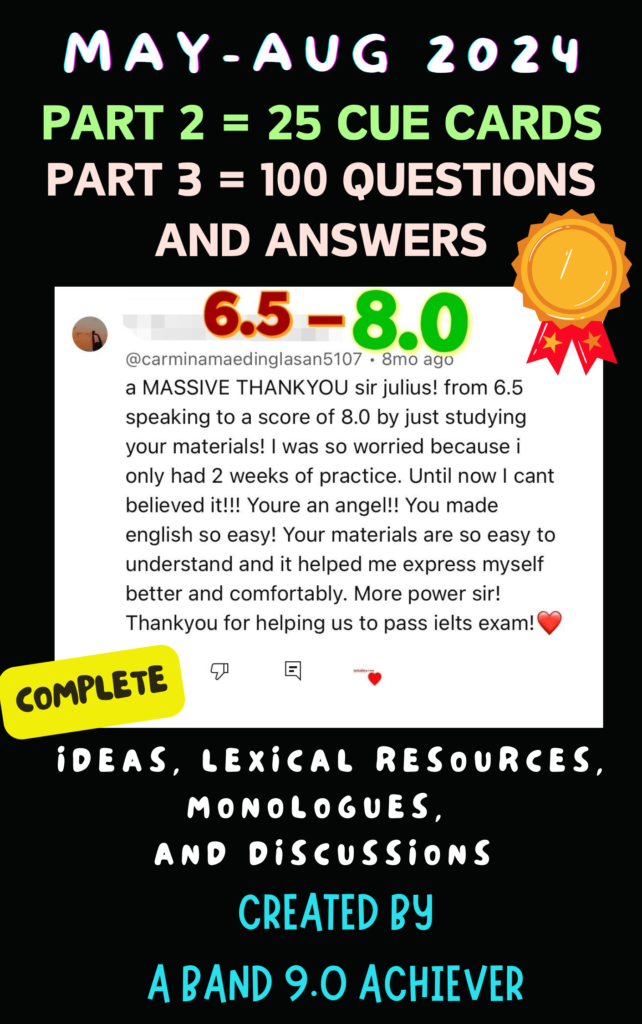
𝗥𝗘𝗖𝗘𝗡𝗧 𝗣𝗢𝗦𝗧𝗦: 𝐌𝐀𝐘-𝐀𝐔𝐆 𝟐𝟎𝟐𝟒
- IELTS SPEAKING PART 1: CHALLENGES [ANSWERS]
- IELTS SPEAKING PART 1: EBOOKS [ANSWERS]
- IELTS SPEAKING PART 1: STAYING AT HOME [ANSWERS]
- IELTS SPEAKING PART 1: CHILDHOOD MEMORY (ANSWERS)
- IELTS SPEAKING PART 1: ASKING FOR HELP (ANSWERS)
- IELTS SPEAKING PART 1: FLOWERS [ANSWERS]
- IELTS SPEAKING PART 1: BIRTHDAYS (ANSWERS)
- IELTS SPEAKING PART 1: DAILY OR MORNING ROUTINE
- IELTS SPEAKING PART 1: WEATHER [ANSWERS]
- IELTS SPEAKING PART 1: SHOPPING [ANSWERS]
- IELTS WRITING: It is not necessary for people to travel to other places
- IELTS CUE CARD: SOMEONE MADE A LOT OF NOISE
- IELTS SPEAKING PART 1: CROWDED PLACES [ANSWERS]
- IELTS SPEAKING PART 1: CELEBRITY [ANSWERS]
- IELTS SPEAKING PART 1: MONEY [ANSWERS]
- IELTS SPEAKING PART 1: VIDEO GAMES [ANSWERS]

Author, Band 9.0 Achiever (First Attempt - IELTS Speaking)
Hi students! My name is Julius. I am the author of this IELTS website. I am a non-native English speaker who achieved the highest band score (band 9.0) on the IELTS speaking test on my first attempt. I graduated with a degree in Communication Arts from Cebu Normal University, one of the prestigious state universities in the Philippines. I am a licensed teacher and TESOL-certified. I once worked at a UK-based company teaching business English to Japanese businessmen who primarily work at Nikkei, a popular media company in Japan. I created this website to help you all achieve your desired band scores so you will NOT waste so much money, time, and effort for retaking the exam numerous times. All of the sample answers I provided on this website are a product of my experience as a band 9.0 achiever and an experienced IELTS speaking coach. I've made sure that all of the sample answers are developed in a conversational and natural way because that is how I achieved a crisp band 9.0. Be one of the many students who achieved their target band scores by utilizing this website as one of the learning resources!
© Copyright 2018 – 2024
- +1 5414605418
- [email protected]
- Philippines
IELTS Speaking Part 1 – Outer Space and Stars
- IELTS Speaking

Have you ever learned about outer space and stars?
Do you like science fiction movies why, do you want to know more about outer space, do you want to go into outer space in the future.
In our school, most of the science-related topics revolved around natural science and physics. We did study outer space during our primary years, although it wasn’t very in-depth. However, there are many TV shows that discuss planets and our solar system.
Yes, I enjoy science fiction movies, especially classics like “2001: A Space Odyssey” and “Interstellar.” I find the concepts and ideas about space exploration to be very intriguing.
Actually, I prefer movies with simpler plots that don’t require much thinking, such as dramas and sometimes action movies.
Currently, I am focused on improving my knowledge in business, so I don’t have much time to study or learn more about outer space. Additionally, there isn’t a pressing need for me to delve deeper into the subject.
Yes, I have a desire to explore outer space. However, I believe that it may not be possible in our lifetime due to various challenges such as the need for oxygen and water. Additionally, I have heard that the cost of space travel is exorbitantly expensive. For now, I would rather focus on traveling on our planet first.
1. Have you ever learned about outer space and stars?
At school, we brushed up on outer space and stars, but I envy some of my friends whose teachers were very interested in the cosmos. In grade six, we didn’t do any art projects about outer space and stars, like drawing or making a model of the solar system, but other classes did. I’m not sure why that happened. Growing up, we had an encyclopedia focused on outer space and the cosmos, including constellations and how they are connected. TV was also a great source of learning about outer space, especially shows by Carl Sagan and the Discovery Channel when they produced quality content.
2. Do you like science fiction movies? Why?
When it comes to science fiction movies, especially those about outer space and stars, not really. They often feel too far-fetched. We enjoy them not for the stars but for the underlying themes. For example, Star Wars, Star Trek, and The Orville address social issues through the lens of space. Star Wars, which I started watching in my early 30s, focuses more on family dynamics than on space itself. So, I wouldn’t say I like science fiction movies because of the stars or planets; it’s more about the storytelling.
3. Do you want to know more about outer space?
Not really. There are many pressing issues we need to focus on. Recently, I’ve adopted the mindset that if I can’t control something, I don’t think about it. Outer space is something I can’t control. For example, hearing about an asteroid possibly hitting Earth in 2035 only causes anxiety. I like seeing occasional updates, like NASA’s latest pictures, but I just look at them for a few minutes and then move on. I’m more interested in gadgets, so space is just a passing interest.
Travel (Space Travel) & Plants Speaking Part 1 Questions With Answer
Travel (Space Travel) & Plants Speaking part 1 Questions With Answers. These are the IELTS Speaking part 1 Topics and Questions on general topics about your life. Your answers will be from your life and experience.
Travel (Space Travel) & Plants Speaking Part 1 Questions With Answer
Question 1. do you want to travel in outer space.
Answer – Frankly speaking till now, I never think about this, but I’m pretty sure that if I would get the opportunity shortly, then I would definitely like to visit any outer space since I saw in many movies that it is an adventurous task.
Question 2. What would you do if you had the opportunity?
Answer – If I would have this opportunity, then I would definitely encash this opportunity and love to visit outer space during this journey. I would click many photos as my memories, or I would take one of my best friends with me along at this.
Question 3. Do you think it’s necessary to see another planter
Answer – Well from the perspective of commoners I think it is not essential but from scientists point of view thinking about others other planets is vital since from that they come to know about many new things and many new discoveries for instance from evaluating the atmosphere at Mars scientists came to know that there is no gravity. There is the possibility of life over there so in this way we can learn many more things about other planets.

Question 4. When was the last time you went travelling?
Answer – I clearly remember last month me along with my cousins, had a trip to Manali where we saw many pilgrims and enjoys enjoyed ourselves a lot in the serene and tranquil valleys of Manali Anne. I believe definitely it is it was unforgettable is an unforgettable trip.
Question 5. Do you like to travel by air?
Well, I never had the opportunity to travel by plane however I’m inquisitive about this because one of my friend he is from Rich family and had many trips via plane most of the time he told me about his journeys. He made me more curious about travelling via air.
Question 6. Do you keep plants at home?
Answer – Yes, I do as at the home I have, I think, 25 posts in which I planted different kinds of plants such as colourful roses, some Lily flowers and some magnificent looking shrubs.
Question 7. What plant did you grow when you were young?
Answer – I vividly remember when I was young, I planted few roses in my garden that time, my Gran father really embraced this activity, Ann, every time he took me with them whenever WENT for gardening.
Question 8. Do you know anything about growing a plant?
Answer – Yes I do actually I learned this skill from my Gran father who was a great gardener, and he had great skills in gardening Anne most of the time I performed all these activities with them, and nowadays I think I’m capable of handling a garden efficiently will I could grow plants I believe of any species
Question 9. Do Indian people give plants as gifts?
Answer – As per my experience I don’t think people like to give plants as presents on the contrary people like to give material gifts such as watches, dresses, perfumes some usable things and so on but the plant is a scarce gift.
Follow Us on IELTSFever Instagram for more updates and the latest test tasks.
Also, Read Language & smile Speaking part 1 Questions With Answers .
- Click to share on WhatsApp (Opens in new window)
- Click to share on Pinterest (Opens in new window)
- Click to share on Facebook (Opens in new window)
- Click to share on Tumblr (Opens in new window)
- Click to email a link to a friend (Opens in new window)
- Click to share on LinkedIn (Opens in new window)
- Click to share on Twitter (Opens in new window)
- Click to share on Reddit (Opens in new window)
- Click to share on Telegram (Opens in new window)
- Click to share on Pocket (Opens in new window)
- Click to print (Opens in new window)
Pages Content
About The Author
IELTS FEVER
1 thought on “travel (space travel) & plants speaking part 1 questions with answer”.
Leave a Comment Cancel Reply
Your email address will not be published. Required fields are marked *
Notify me of follow-up comments by email.
Notify me of new posts by email.
- A Beginner’s Guide to IELTS
- Common Grammar Mistakes [for IELTS Writing Candidates]
Writing Correction Service
- Free IELTS Resources
- Practice Speaking Test
Select Page
IELTS Topics: Space
Posted by David S. Wills | Mar 16, 2020 | IELTS Tips | 1
In the past, I have talked often about the importance of learning IELTS in terms of topics . This is because you can learn material organically in a way that your brain can effectively process. It is useful to do this because you can practice reading and writing together, for example, with each skill informing the other. This sort of method will result in higher retention of information than other methods, such as memorising lists of vocabulary and sample answers.
In today’s lesson, I want to introduce you to another IELTS topic. This time, we are looking at the topic of space . You might be wondering why we are looking at this topic. It is not as common as some other ones, like family or technology. However, space is still an important topic that may arise in your test.
What do you mean by “space”?
First of all, let’s clarify what “space” is and what may occur in the IELTS test. By space, we mean basically anything not on this planet. For IELTS, you may be asked about space in a limited capacity because, honestly, it’s a really difficult topic and even native speakers would struggle to speak about it in depth.
Some things that occur in this topic are:
- The value of space travel
- The importance of studying space
- Life on other planets
There really isn’t much more than that, but you should be aware that they could ask you something else. It is impossible to predict IELTS questions.
IELTS Vocabulary: Space
It’s important to note that you don’t need to be an expert on space to answer any IELTS questions. Indeed, IELTS is a very general exam and so you only need a broad and general set of knowledge and vocabulary. As such, I have made the following PPT that contains some useful vocabulary for IELTS students on the topic of space.
Those words are some quite general ones about space, but in the next PPT I have a few words that relate more specifically to space travel :
Now let’s do a short test. Using the words from those PPT files, you should fill in the blanks in the sentences below.
Vocabulary Test
- Space travel has become more practical since the invention of the reusable _________.
- The sun is located at the centre of the ___________.
- Buzz Aldrin and Neil Armstrong were the first men to walk on the surface of the _________.
- At NASA, highly skilled people are trained intensively to become _____________.
- When a rocket or space shuttle leaves the ground and heads towards space, the process is referred to as a __________.
- Some people believe that _________ have visited earth and made contact with humans.
- There are teams of scientists around the world searching for life on other __________.
(You can find the answers at the bottom of the page.)
IELTS Speaking Questions: Space
The topic of space is not a common one for IELTS speaking because most ideas are too difficult to expect a candidate to answer fully and the vocabulary required for a discussion about space is beyond a reasonable level expected for most IELTS candidates. However, you could encounter questions like these for part one:
- Do you want to travel into space?
- Do you like movies about space?
- If space travel became affordable for everyone, would you want to visit another planet?
To be honest, questions that are more specific than these are unlikely. You can answer any of these without a vast knowledge of space terminology, and that’s what is required for IELTS. Being able to give a basic answer with just a few topic-specific words is fine.
For example, I would give the following sample answer:
Do you want to travel into space? Yes, I would definitely choose to visit space if I had the chance. I’ve always wanted to see what the Earth looks like from faraway, and very few people have ever actually been able to witness it. Although it might be a bit dangerous, it would truly be a once-in-a-lifetime experience.
As for part three, the questions would be a little more advanced. Due to the nature of the topic, then, it is unlikely that you would really encounter many space questions here. However, if you did, they would look like this:
- Do you think it’s worthwhile looking for life on other planets?
- Is too much money spent sending people into space?
- Do you think that space travel will become as common as air travel in future?
For each of these questions, you would need to offer a more detailed reply, giving a three-part answer:
- State your answer.
- Explain your answer.
- Give evidence, example, or recommendation.
For example, to the first question, I might reply:
No, I really don’t think that it’s worthwhile looking for life on other planets. Lots of time, energy, and money is spent on this pointless project, when there are clearly many issues on Earth that need resolved first. There may well be aliens in another galaxy, but we have nothing to gain from contacting them because we have no hope of ever reaching them. Even reaching the edge of our own solar system would take thousands of years. Instead, we ought to reverse climate change and end poverty, both of which are ultimately far more achievable goals than communicating with extra-terrestrials.
You can look at my answer in three distinct parts:
- No, I really don’t think that it’s worthwhile looking for life on other planets.
- Lots of time, energy, and money is spent on this pointless project, when there are clearly many issues on Earth that need resolved first. There may well be aliens in another galaxy, but we have nothing to gain from contacting them because we have no hope of ever reaching them. Even reaching the edge of our own solar system would take thousands of years.
- Instead, we ought to reverse climate change and end poverty, both of which are ultimately far more achievable goals than communicating with extra-terrestrials.
This basic structure has allowed me to present a fully-developed answer that is logical and appropriate. Note that I haven’t used much advanced vocabulary, although I did use the following space-related terms:
- extra-terrestrials
I could have replaced them with other words from this lesson – solar system and aliens. These are synonyms. Instead, I wanted to add some variety and avoid repetition.
IELTS Writing Questions: Space
It is more common to encounter the topic of space in IELTS writing, where the issues presented tend to be a little more complex and require answers of about 250+ word in order to really cover them sufficiently. The issue of spending money on space travel, for example, is a little too vast to sufficiently describe in just a short, spoken answer.
Here is how that same topic may be presented for IELTS writing task 2:
Some people think that space exploration is a waste of resources while others think that it is essential for mankind to continue to explore the universe in which we live. Discuss both sides and give your opinion.
Sample Answer
I have written a sample band 9 answer that includes some useful vocabulary. I have highlighted those phrases in bold:
Some governments and private companies spend vast amounts of money on space programmes , but this is often criticised as wasteful when there are clearly issues here on Earth that need to be solved. This essay will look at both viewpoints, and then decide that some limited space exploration should be undertaken. First of all, it is true that there are issues plaguing this planet that need our attention more than space travel . Around the world, millions of people are starving to death or dying from preventable diseases. It seems unjust that governments are devoting billions of dollars to send people into space when these fundamental problems still exist. There are also existential threats such as extinction due to climate change, and yet we are devoting the best minds to explore other planets rather than saving this one. If it is just a matter of exploration, then there are even parts of this world that are not yet explored, such as the bottom of the ocean. Despite those valid concerns, space exploration is still important. The astronauts who go up into orbit are not just “exploring space” in the sense that explorers used to travel the world, but rather they are scientists conducting experiments that may prove beneficial to the future of humanity. The work that they do in space could be instrumental in stopping the next pandemic or ending hunger. Certainly, money spent on Earth would appear to be a more direct resolution, but perhaps these space experiments will have a greater ultimate benefit. In conclusion, this is a difficult issue because, while space travel is important, it seems hard to justify the vast amounts of money spent on it. However, this money will probably yield important long-term results and so it is important to continue.
(Note: This sample answer was originally posted here in November, 2019.)
IELTS Listening: Space
I really doubt that you would encounter the topic of space in IELTS listening unless it occurred in the lecture portion. In that case, the language used would not actually be about space but rather you would be listening to someone talking about space and you would be asked more general questions. Phrases like “solar system” would not really be necessary.
If this topic did arise, you might be presented with a basic discussion of an idea like space tourism or a human community on Mars. Any difficult concepts would be explained slowly and clearly, but ultimately it would be your general English that is tested, and not your knowledge of space.
If you want some listening practice on the topic of space, you can try these listening exercises that I made last year or look at this exercise from Breaking News English. For more general practice, you may want to look up videos about space on YouTube and see how much you can understand.
IELTS Reading: Space
It is very possible that you could encounter a reading passage about space in your IELTS test. This could cover almost any aspect of space because the reading test allows for difficult ideas. There may be questions about space travel, science, life on other planets, the history of space travel, and so on. It’s hard to predict because honestly there are so many options.
Again, you don’t need to be an expert on space to answer these correctly and you don’t have to know lots of space vocabulary, either. If there are any difficult words or phrases, they will be defined in the text or in a footnote. You can find a pretty useful reading practice exercise here from a university in Hong Kong.
- space shuttle
- solar system
About The Author
David S. Wills
David S. Wills is the author of Scientologist! William S. Burroughs and the 'Weird Cult' and the founder/editor of Beatdom literary journal. He lives and works in rural Cambodia and loves to travel. He has worked as an IELTS tutor since 2010, has completed both TEFL and CELTA courses, and has a certificate from Cambridge for Teaching Writing. David has worked in many different countries, and for several years designed a writing course for the University of Worcester. In 2018, he wrote the popular IELTS handbook, Grammar for IELTS Writing and he has since written two other books about IELTS. His other IELTS website is called IELTS Teaching.
Related Posts
IELTS Speaking Part…. Zero?
April 9, 2018
9 Ways to Improve your Language for IELTS
May 7, 2016
How to Describe Tables for IELTS Writing Task 1
May 24, 2021
IELTS Topics: Mobile Phones [Speaking and Reading Lesson]
June 3, 2020
Such a great sample. I really enjoyed that. thank you
Leave a reply Cancel reply
Your email address will not be published. Required fields are marked *
This site uses Akismet to reduce spam. Learn how your comment data is processed .
Download my IELTS Books
Recent Posts
- Commas and Time Phrases
- Ambition and Success: Sample IELTS Essay
- Do the Advantages Outweigh the Disadvantages? – Advice About This Question Type
- Exams vs Continual Assessement [Model Essay]
- British vs American Spelling
Recent Comments
- David S. Wills on Writing Correction Service
- raquel on Writing Correction Service
- Lesson Plans
- Model Essays
- TED Video Lessons
- Weekly Roundup

Bài mẫu IELTS Speaking Part 1 - Topic: Outer space and stars
Trong này là những câu hỏi Part 1 thuộc chủ đề “Outer space and stars” sẽ xuất hiện trong đề thi IELTS Speaking.

- Bài mẫu IELTS Speaking Part 1 - Topic: The city you live in
- Bài mẫu IELTS Speaking Part 1 - Topic: Dream and ambition
Tất cả bài mẫu của STUDY4 đều được chuẩn bị và chấm bởi Mitchell McKee:
- Cử nhân ngành Ngôn Ngữ Học Tiếng Anh (Đại học Glasgow, Scotland);
- Thạc sĩ ngành Ngôn Ngữ Học Ứng Dụng (Đại học Glasgow, Scotland);
- 3 năm kinh nghiệm giảng dạy và hướng dẫn thi IELTS ở Anh.
I. Questions
- Have you ever learned about outer space and stars?
- Are you interested in films concerning outer space and stars?
- Do you want to know more about outer space?
- Do you want to go into outer space in the future?

II. Samples
1. Have you ever learned about outer space and stars?
Bạn đã bao giờ tìm hiểu về vũ trụ và các vì sao chưa?
“Yes, I have learned about outer space and stars. In fact, I have always been fascinated by astronomy since I was a child. I have read books and watched documentaries on space exploration, and I have also taken a few astronomy classes in college. I find it incredible how vast and mysterious the universe is.”
- astronomy (n): thiên văn học
- documentary (n): phim tài liệu
Bài dịch:
Có, tôi đã học về vũ trụ và các vì sao. Trên thực tế, tôi luôn say mê thiên văn học từ khi còn nhỏ. Tôi đã đọc sách và xem phim tài liệu về khám phá không gian, và tôi cũng đã tham gia một vài lớp thiên văn học ở trường đại học. Tôi thấy không thể tin được vũ trụ rộng lớn và bí ẩn đến nhường nào.
2. Are you interested in films concerning outer space and stars?
Bạn có quan tâm đến những bộ phim liên quan đến vũ trụ và các ngôi sao không?
“Yes, I'm very interested in films about outer space and stars. I find the vastness and mystery of the universe fascinating, and watching movies that explore these topics allows me to imagine what it might be like to travel through space or visit other planets . Some of my favorites include "Interstellar" and "2001: A Space Odyssey.”
- vastness (n): sự bao la
- planet (n): hành tinh
Có, tôi rất quan tâm đến những bộ phim về vũ trụ và các ngôi sao. Tôi thấy sự bao la và bí ẩn của vũ trụ thật hấp dẫn và việc xem những bộ phim khám phá những chủ đề này cho phép tôi hình dung ra việc du hành trong không gian hoặc đến thăm các hành tinh khác sẽ như thế nào. Một số mục yêu thích của tôi bao gồm "Interstellar" và "2001: A Space Odyssey.
3. Do you want to know more about outer space?
Bạn có muốn biết thêm về vũ trụ không?
“Yes, I'm very curious about outer space. The vastness and mysteries of the universe fascinate me. I find it incredible to think about the countless galaxies , stars, and planets that exist beyond our own.”
- fascinate (v): mê hoặc
- galaxy (n): thiên hà
Có, tôi rất tò mò về không gian bên ngoài. Sự rộng lớn và bí ẩn của vũ trụ mê hoặc tôi. Tôi thấy thật khó tin khi nghĩ về vô số thiên hà, ngôi sao và hành tinh tồn tại bên ngoài chúng ta.
4. Do you want to go into outer space in the future?
Bạn có muốn đi vào không gian vũ trụ trong tương lai không?
“I would love to. It would be an amazing opportunity. Personally, I find the idea of space exploration fascinating and I believe it can bring many benefits to humanity , such as advancing our scientific knowledge and discovering new resources.”
- space exploration (n): khám giá không gian
- humanity (n): nhân loại
Tôi rất thích. Đó sẽ là một cơ hội tuyệt vời. Cá nhân tôi thấy ý tưởng khám phá không gian rất hấp dẫn và tôi tin rằng nó có thể mang lại nhiều lợi ích cho nhân loại, chẳng hạn như nâng cao kiến thức khoa học và khám phá các nguồn tài nguyên mới.
IELTS Speaking Part 1 là phần dễ nhất của đề thi, vậy nên hãy cố trả lời tốt nhất cho các câu này. Mong rằng bài viết này của STUDY4 đã cho bạn ý tưởng để trả lời các câu hỏi thuộc chủ đề “Outer space and stars”.
Nếu có thắc mắc, hãy để lại bình luận và STUDY4 sẽ giải đáp nhé!
Vui lòng đăng nhập để comment
- Bài mẫu IELTS Speaking Part 1 - Topic: Ice cream
- Bài mẫu IELTS Speaking Part 1 - Topic: Weather

Trong bài viết này, STUDY4 đã tổng hợp các topic IELTS Speaking có khả năng xuất hiện trong Bộ đề IELTS Speaking Forecast Quý 3/2024 (tháng 9 đến tháng 12).

Tham khảo các cách nói khác của I think trong IELTS Speaking để tránh lặp từ trong bài nói IELTS Speaking của mình nhé!

Hiểu ngay về cách giám khảo chấm một bài thi IELTS Speaking!

Trong bài viết này, bạn sẽ thấy những bài mẫu cho các đề IELTS Writing Task 2 có trong bộ đề Cambridge 19 (2024).

Trong bài viết này, bạn sẽ thấy những bài mẫu cho các đề IELTS Writing Task 1 có trong bộ đề Cambridge 19 (2024).
IELTS Speaking Part 1 Space Travel
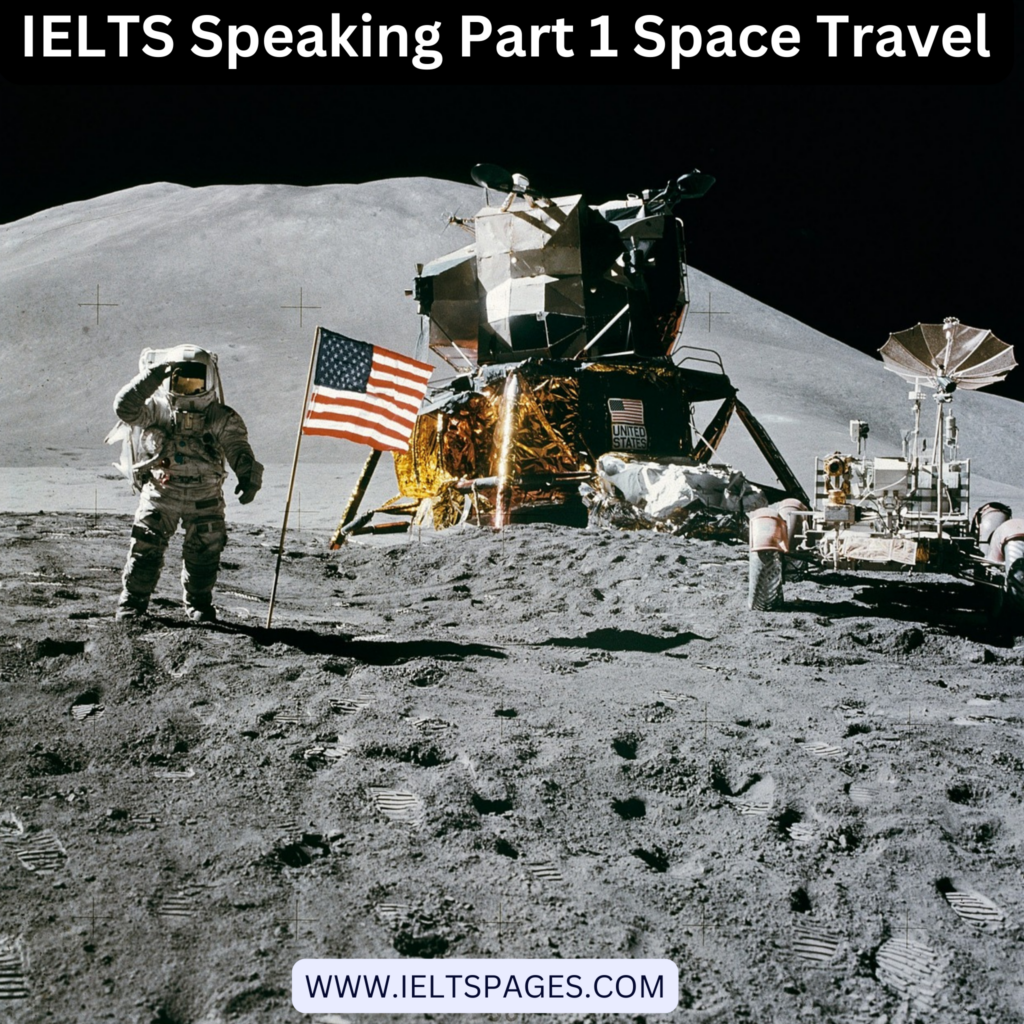
Do you like to travel by air?
Yes, I love to travel by air because I have been to many places and prefer planes. There are some reasons like it’s more convenient and time-saving and we can get it quickly and travel over a short period.
What do you think about travelling to outer space?
Outer space is a good experience for anyone who loves travelling outside. Definitely, yes, I would like to travel if I get an opportunity because we can learn a lot of things from outer space, like how the Earth looks from outer space from space and how our moon and our solar system work, and what the temperature of the sun over there we can like to get information regarding this through space travel.
Who would you like to go with if you are going on space travel?
If I could go out to space, I would prefer my mother because my mother is a science teacher and has a keen interest in outer space activities. She used to teach science to students, so I would go there with my mother.
Is it necessary to see other planets?
Of course, it’s essential to see other planets, and like I said, we can get a lot of information from the other planets, like they recently discovered, like the water level on Mars.
Now they plan to travel over there; apart from that, we can learn how time passes. It’s an excellent way to explore more things, and if a student can learn to explore outer space and other planets, they will do something about this over their study.
What do you think are the benefits of space explanation for humanity?
The benefits we can take from the outer space study are learning about outer space. We can get information like whether it would be life possible in the future over there or not or whether we, the Earth, are now on the verge of destruction, and I think it will help humanity to do something about our Earth, and yes, that’s it.
Do you believe that space travel should be a priority for governments?
Every government should only implement it for some. A specific person, like astronauts, who know about outer space and can bear zero gravity level, and so they only, I think, deserve to go to outer space compared to others.
Can you describe any recent advancements in space technology that have caught your attention?
I heard in Elon Musk’s interview that he said he’s preparing to send people to Mars maybe this year or next year at the start. Apart from that, like the Japanese rocket, it blew up in space before reaching its destination, so these two pieces of space news caught my attention.
How might space travel impact the future of our planet Earth?
Like our scientists, they are like found in I eagerly finding water on other plants, and they will be very close in the future. They will see water on some other plants, and they may travel over there. Mars would be a high priority, as would other plans, too.
How do you think space tourism will evolve in the coming years?
I see the current scenario. Space travel will become a growing industry in the future because more and more people are now like as they are familiar as they are now familiar with outer space. They eagerly want to travel in space so that it will increase in the future.
We need your support today
Independent journalism is more important than ever. Vox is here to explain this unprecedented election cycle and help you understand the larger stakes. We will break down where the candidates stand on major issues, from economic policy to immigration, foreign policy, criminal justice, and abortion. We’ll answer your biggest questions, and we’ll explain what matters — and why. This timely and essential task, however, is expensive to produce.
We rely on readers like you to fund our journalism. Will you support our work and become a Vox Member today?
- Today, Explained podcast
- Two astronauts are stranded in space. This one is jealous.
February?! Until February?!?! Boeing slip leaves astronauts in limbo.
by Sean Rameswaram and Avishay Artsy

Most people are now probably familiar with the story: Two American astronauts were sent to space on an eight-day test mission on a new Boeing spacecraft in June. Now, nearly three months later, NASA announced that they’ll bring the astronauts back on a SpaceX Dragon capsule — which will not arrive until February 2025 for the return flight.
Barry “Butch” Wilmore and Sunita “Suni” Williams, both veteran Navy pilots, rode in the Boeing Starliner capsule’s first crewed flight to the International Space Station on June 5. But problems with helium leaks and thruster failures were subsequently discovered and have kept the astronauts in space conducting tests to determine whether the Starliner could bring them safely back to Earth.
NASA now says that it would be safer for the pair to hitch a ride back to Earth next February with SpaceX’s Crew Dragon , a blow to Starliner maker Boeing, which NASA had tapped a decade ago along with SpaceX to provide reliable transportation to and from the space station.
While the astronauts’ plight has elicited feelings of sympathy and pity, chemist and retired NASA astronaut Cady Coleman admits to feeling something different: jealousy.
Coleman, author of Sharing Space: An Astronaut’s Guide to Mission, Wonder, and Making Change , flew twice on the Space Shuttle and spent nearly six months on the International Space Station. She told Today, Explained host Sean Rameswaram that this is what astronauts dream of: more time in space. Their conversation below has been edited for length and clarity.
—Avishay Artsy , senior producer, Today, Explained
Sean Rameswaram
What’s space like, Cady?
Cady Coleman
I always have to take a breath and think how to say this, but it is like being transported to a different world. And I know I’m definitely still in this one same universe — look down, see Earth — but you really are at the edge, so to speak. And I felt really privileged to be one of the people who is the furthest away, meaning they’re basically the closest to everything else we haven’t seen.
And one of the things you saw when you were in space most pertinent to our conversation today was the International Space Station.
I did, and I lived up there for almost six months. I really loved it up there. But that first sight, I mean, I was so used to doing spacewalking practice in our giant swimming pool where it’s like 40 feet deep, the size of a football field. And then you arrive at this pristine city in space. It was like being in Wonderland. Suni had two missions to the space station already, this is her third. And Butch had one shuttle and then one station, and now he’s up there. So they knew what they were coming to.
It’s a magical place . And I think what’s really meaningful is knowing that everything that you do up there matters. It gets us one step closer to going back to the moon and going to Mars. And I don’t just say that like it’s a trendy thing to say, because I just think it’s true.
Do you know these two astronauts, Butch Wilmore and Suni Williams?
I do. We all know each other. It’s like one big family. I arrived in 1992, Suni and Butch just a little bit later than that. I’m a little closer to Suni than I am to Butch, just because we have a little more in common. But I’ve done a lot of training with Butch in the T-38 airplanes that we fly to learn things. He and Suni are both test pilots, and I am from the Air Force, but a chemist from the Air Force. So I had a lot to learn from each of them in terms of aviation. And Suni just has this really great attitude. Whether it’s organizing a neighborhood event or something in the astronaut office or being in this kind of situation, Suni has this very levelheaded but joyful way of living that is inspirational to me as a friend.
And so when you heard that they weren’t going to come back as early as hoped, what went through your head first?
Certainly some jealousy …
I would imagine many of us are. And at the same time, it’s certainly their time to fly again. They’ve been very patient. So it’s not like, “Oh, this could be mine.” It’s more just a little bit wistful because I really loved working up there and I think it’s a great opportunity. But I also love watching folks that I know are just really invested and wonderful working up there.
I tell people this is NASA at its very best. It is taking the time to collect test data just like they should, even though the media keeps emphasizing that the two people are stranded, when this is just the way learning more about space and your capabilities works.
You have mentioned that there’s a lot to do up there, whereas I imagine most people think they’re probably just losing their minds. What are they doing up there?
There’s a whole list of experiments and maintenance that has to be done. When we go up to space, we take away a huge variable, which is that we are basically weightless, not perfectly, but as close as you need to get to learn a lot. You get to measure things that are hard to measure on the earth. And we learn about things like combustion and about groundwater and erosion. We learn how plants grow, don’t grow. If we’re going to grow corn on Mars, we probably don’t need corn stalks because they’re not going to have to hold themselves up very much. So it’s all these different ways of thinking scientifically. It’s another laboratory. It’s almost like a brand-new microscope, a different way to look at things.
What do Butch and Suni need to do while they’re up there to make sure being in a near-zero gravity situation doesn’t take a toll on their bodies?
Exercise is the biggest answer that we’ve seen. I mean, without exercise, without some kind of countermeasure, astronauts were losing about a percent and a half of their bone mass every month.
What a woman who’s 70 years old and has osteoporosis loses in a year, I would lose in a month if I did nothing. It’s a big deal. We looked at different drugs and different kinds of exercise and exercise machines. They spend about two hours a day exercising. And about half of that is aerobic on a treadmill or a bike, keeping their hearts in shape. And about half of that is lifting weights. And we’re finding that people are coming back with most of their bone mass .
How does an astronaut on the ISS find time to, I don’t know, say, duet with Ian Anderson from Jethro Tull ?
Well, in my case, I think most of the creative things that I did up there were probably done during time I was supposed to be sleeping.
We are a small part of a really big place, and we belong up there. And the feeling I had when I came home was just that I knew I’d go to space. I didn’t understand that once I got there, I’d actually feel just as close to Earth. And so it turns out that home is bigger than we thought.
Most Popular
- America isn’t ready for another war — because it doesn’t have the troops
- Take a mental break with the newest Vox crossword
- Your guide to the Brittany Mahomes-Donald Trump drama, such as it is
- The Trump Arlington National Cemetery controversy, explained
Today, Explained
Understand the world with a daily explainer plus the most compelling stories of the day.
This is the title for the native ad
More in Today, Explained podcast

Black women delegates opened up about the thorniest challenges ahead.

The 1968 Democratic National Convention was chaos. What can that tell us about 2024?

The FDA rejected MDMA-assisted therapy, lengthening an already decades-long journey to medicalize the psychedelic.

Rumors and disinformation have fueled violence across the country.

Just as the US team enters its influencer era, the sport is in trouble.

Ultimate fighting and the 2024 election’s connections, explained

IMAGES
VIDEO
COMMENTS
Former NASA astronauts Leroy Chiao and Scott Parazynski share their tips and advice on what tourists should know before traveling to space.
Everything you need to know about space travel (almost) - BBC Science Focus Magazine.
Students in U.S. high schools can get free digital access to The New York Times until Sept. 1, 2021. Have you ever dreamed of becoming an astronaut — or traveling to outer space?
Popularity in civilian space travel is increasing as several of the world's billionaires have an ongoing friendly competition to see who can get there first.
Space exploration unites the world to inspire the next generation, make ground-breaking discoveries, and create new opportunities. Technologies and missions we develop for human spaceflight have thousands of applications on Earth, boosting the economy, creating new career paths, and advancing everyday technologies all around us.
How to get into space as a tourist, as well as details of the top earth-bound space-based attractions around the world!
Have you ever wanted to travel into space? It's theoretically possible. Here are the various options, and how much it will cost you to go into space.
Not only do you have to think about all the things you'll need, you have to consider the consequences of those things in terms of the wastes they create. Packing for a trip to outer space isn't as simple as packing your bag for a week at camp.
Do you want to travel in the outer space? What would you do if you had that opportunity? Do you think it's necessary to see other planets? When was the latest time you went travelling? Do you like to travel by air?
Topic: Space Travel 1. Do you want to travel in outer space? 2. What would you do if you had the opportunity? 3. Do you think it's necessary to see other planets? 4. When was the last time you went travelling? 5. Do you like to travel by air? 6. Whom would you like to go with if you travel to space?
Do you want to travel in the outer space? What would you do if you had that opportunity? Do you think it's necessary to see other planets? When was the latest time you went travelling? Do you like to travel by air?
Fewer than 600 people have actually been to space. Private companies are going to make space tourism achievable by thousands.
Do you want to go into outer space in the future? Exploring outer space first hand would be a dream come true!The idea of experiencing zero gravity and seeing Earth from a completely different perspective is thrilling.
Do you want to travel in outer space? 1 answer (s) found. Well, outer space is fascinating to me. I enjoy reading stories about it and observing it through binoculars. However, when it comes to actually traveling to outer space or another planet, I think it's very dangerous.
But where "outer space" begins, as you might expect by now, is a matter of opinion and there isn't any clear line to be drawn. For example, Wikipedia on Outer space has this to say: There is no firm boundary where space begins.
Question 1:- Do you want to travel to outer space? Answer - Of course, I want to travel to outer space because I am very ago to know about the stars, universe and planets.
ANSWERS. Have you ever learned about outer space and stars? (Answer 1) Yes, I learned about those things when I was a grader in our science class. That's when I first learned about the solar system, and you know what, this question reminds me of the time when we were so fascinated (interested) by the appearance of the universe when we watched ...
Do you want to go into outer space in the future? Yes, I have a desire to explore outer space. However, I believe that it may not be possible in our lifetime due to various challenges such as the need for oxygen and water. Additionally, I have heard that the cost of space travel is exorbitantly expensive. For now, I would rather focus on traveling on our planet first.
Do you enjoy looking at the stars? Have you ever learned about outer space and stars? Are you interested in films about outer space and stars? Can you see many stars at night where you live? Would you ever like to go into space? What would you do if you had a chance to go there?
Question 1. Do you want to travel in outer space? Answer - Frankly speaking till now, I never think about this, but I'm pretty sure that if I would get the opportunity shortly, then I would definitely like to visit any outer space since I saw in many movies that it is an adventurous task. Question 2.
For IELTS, you may be asked about space in a limited capacity because, honestly, it's a really difficult topic and even native speakers would struggle to speak about it in depth. Some things that occur in this topic are: The value of space travel. The importance of studying space. Life on other planets.
I. Questions Have you ever learned about outer space and stars? Are you interested in films concerning outer space and stars? Do you want to know more about outer space? Do you want to go into outer space in the future?
Outer space is a good experience for anyone who loves travelling outside. Definitely, yes, I would like to travel if I get an opportunity because we can learn a lot of things from outer space, like how the Earth looks from outer space from space and how our moon and our solar system work, and what the temperature of the sun over there we can like to get information regarding this through space ...
When we go up to space, we take away a huge variable, which is that we are basically weightless, not perfectly, but as close as you need to get to learn a lot. You get to measure things that are ...